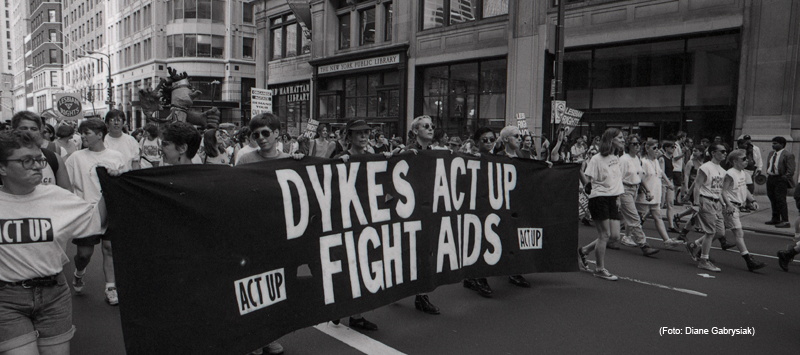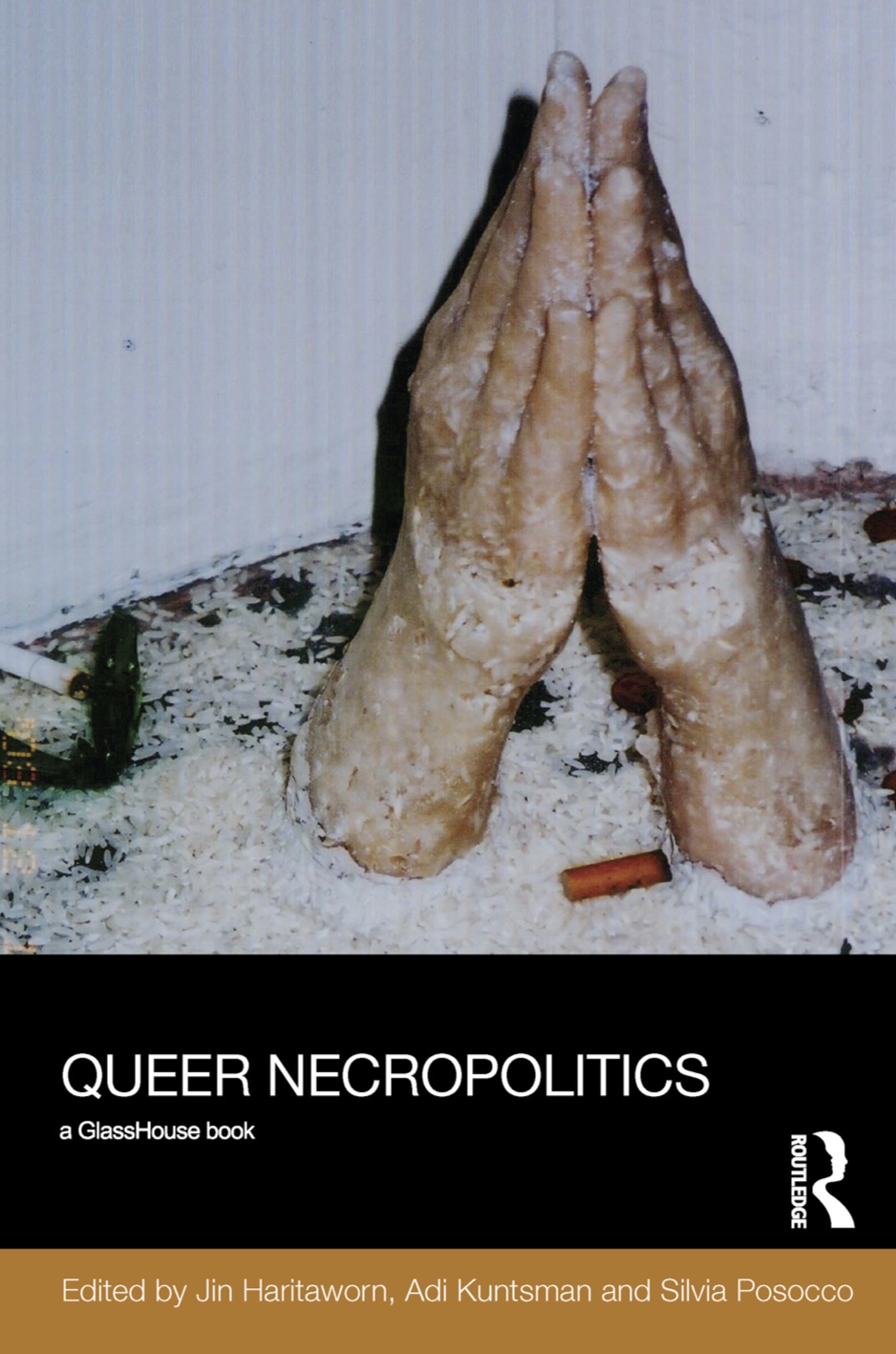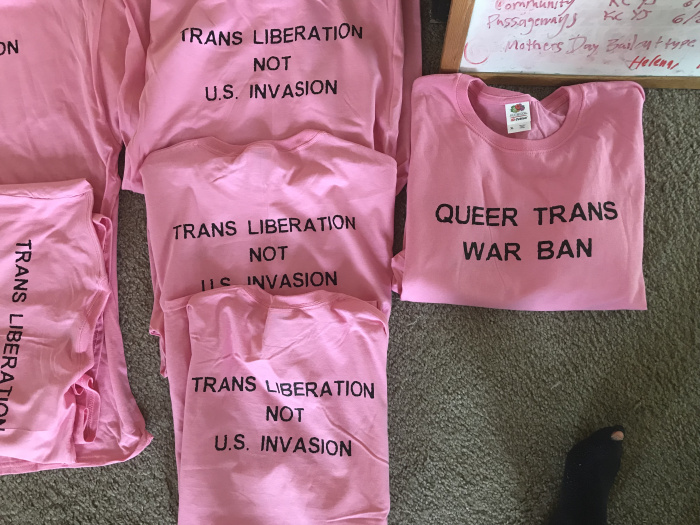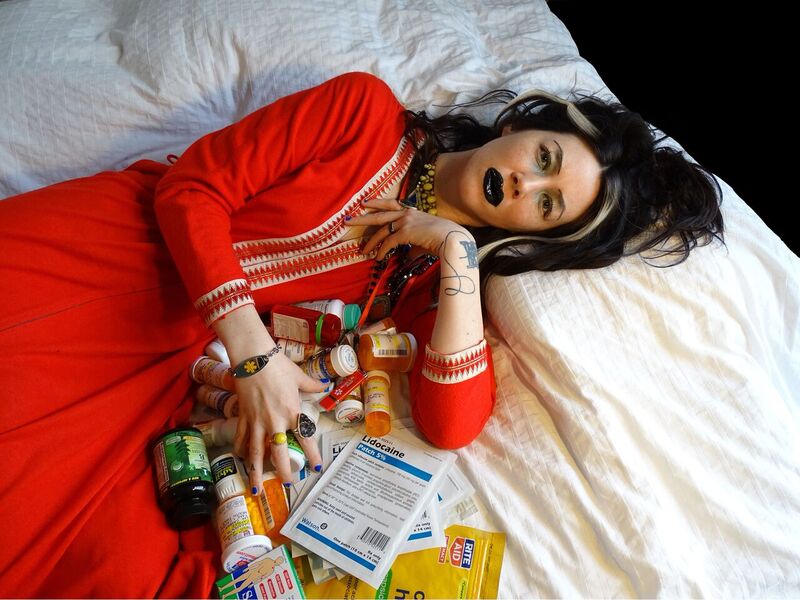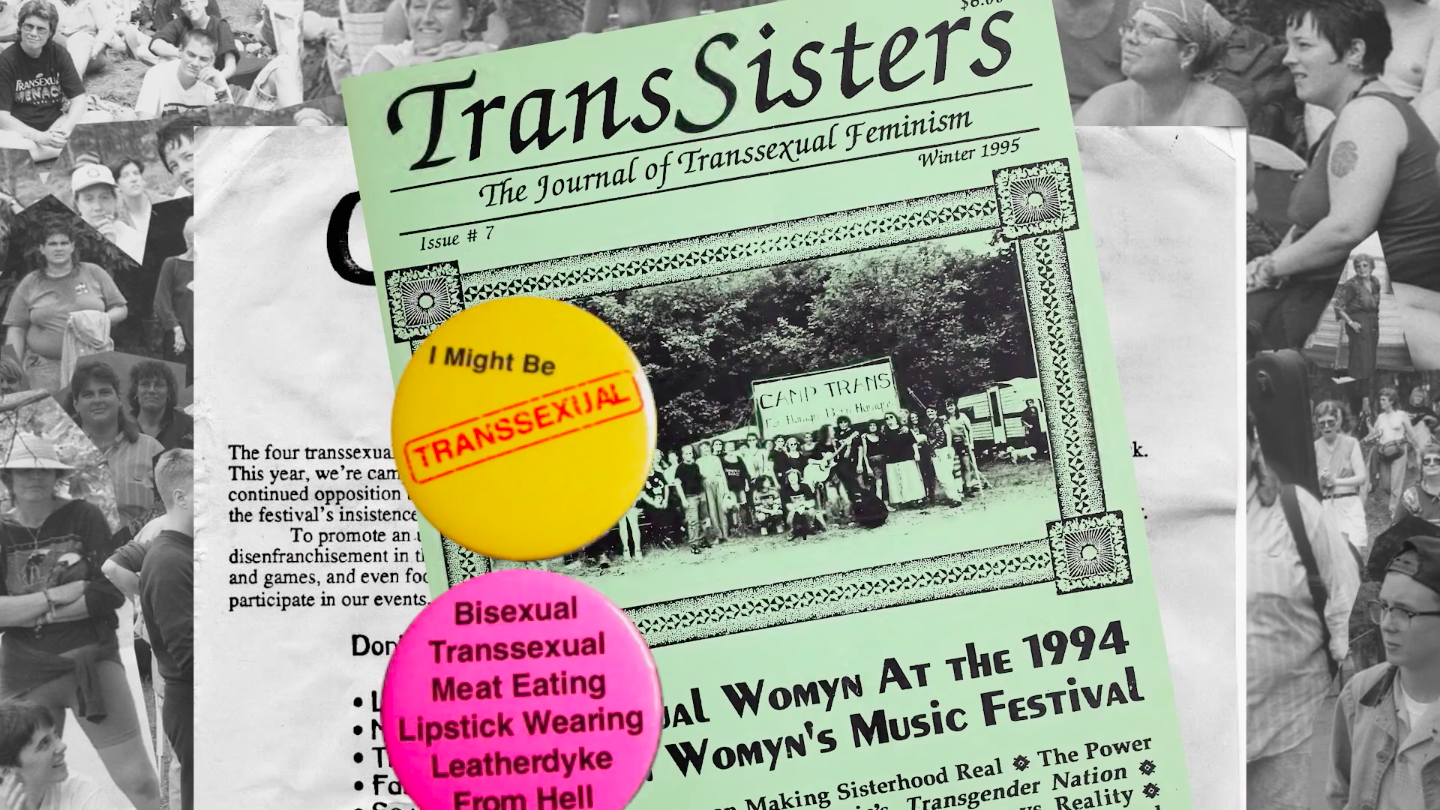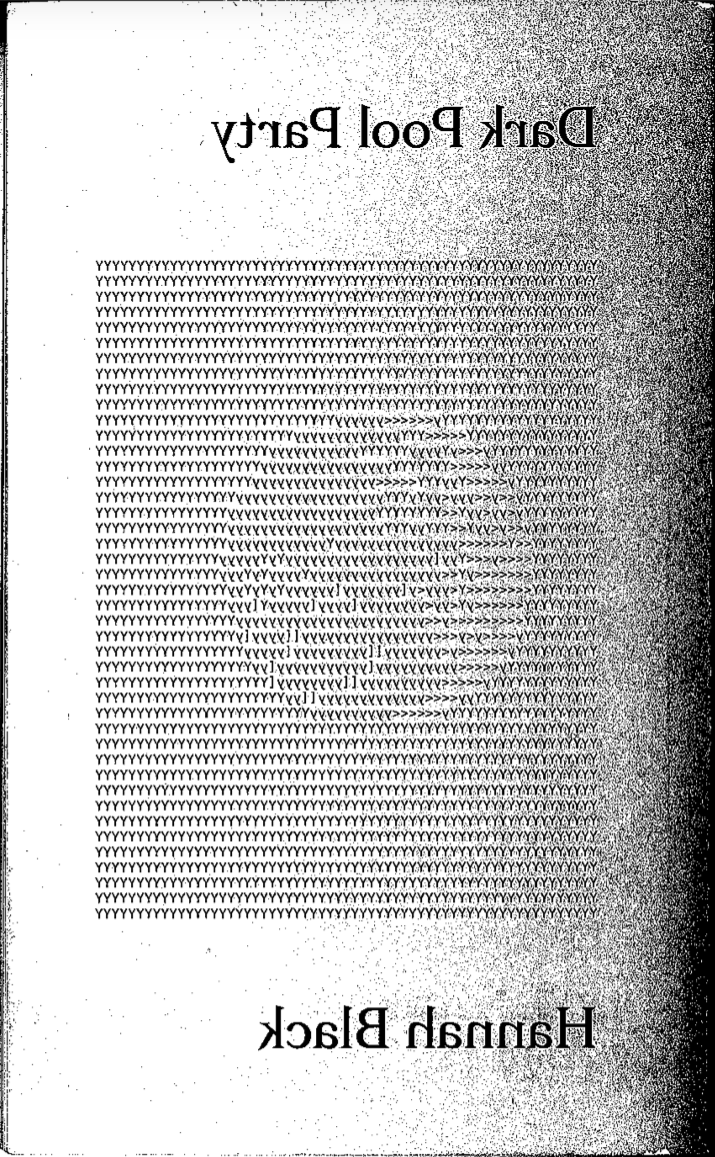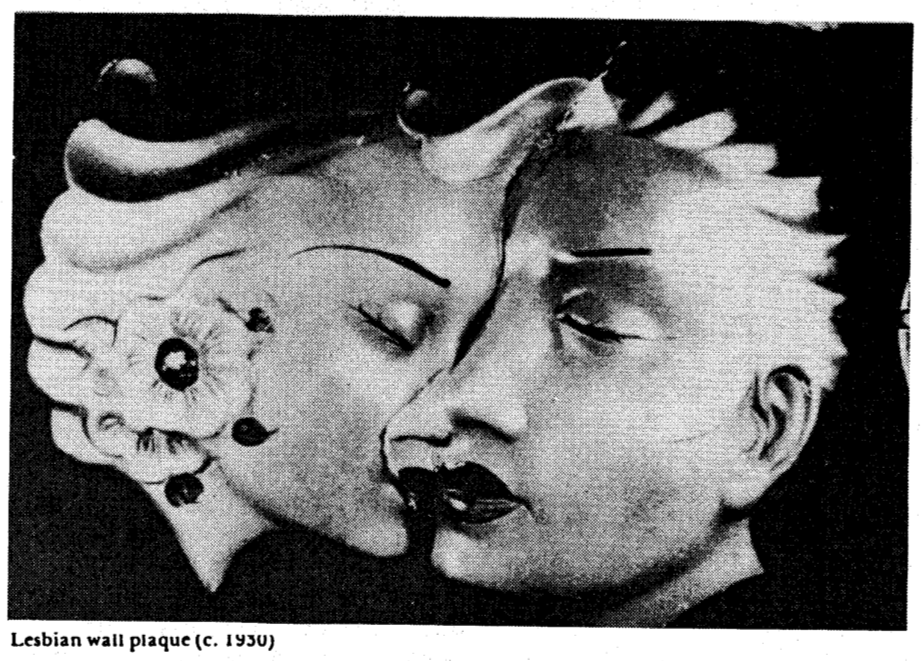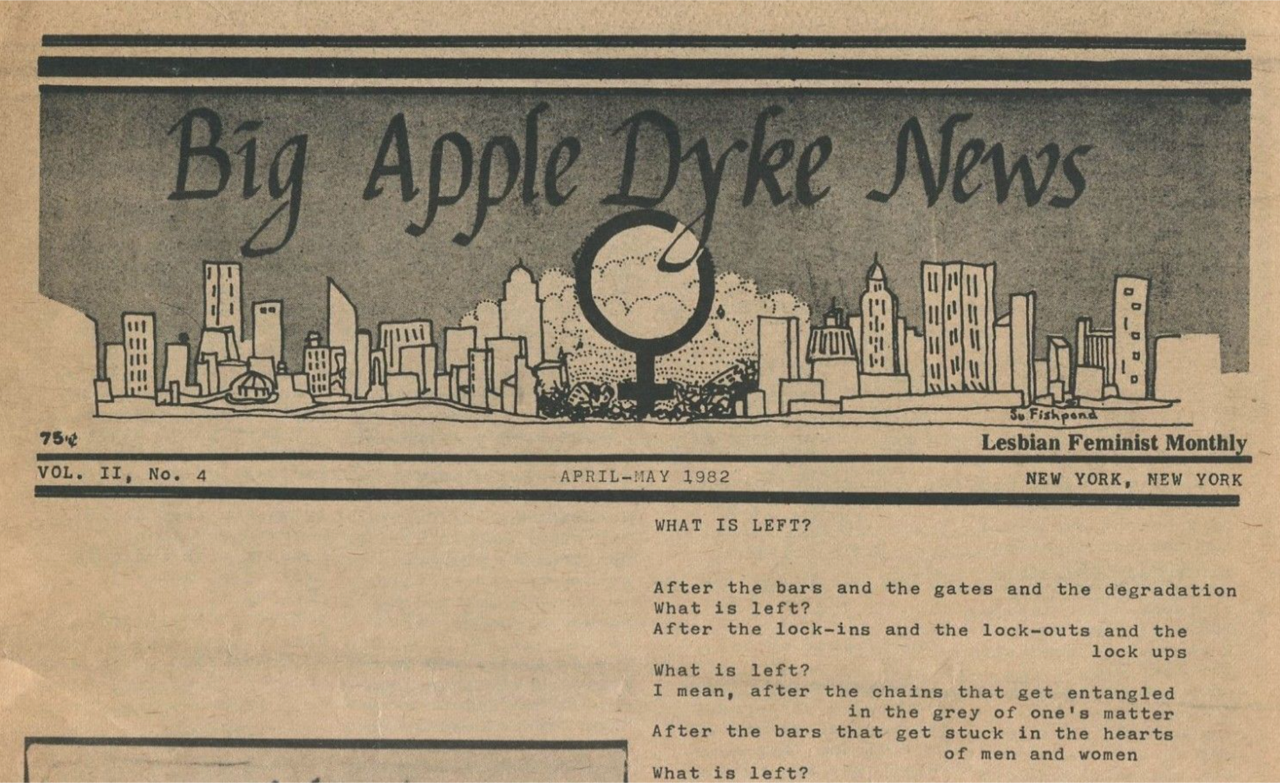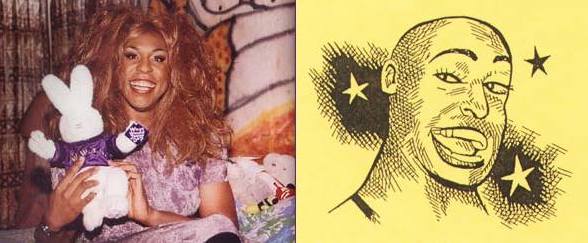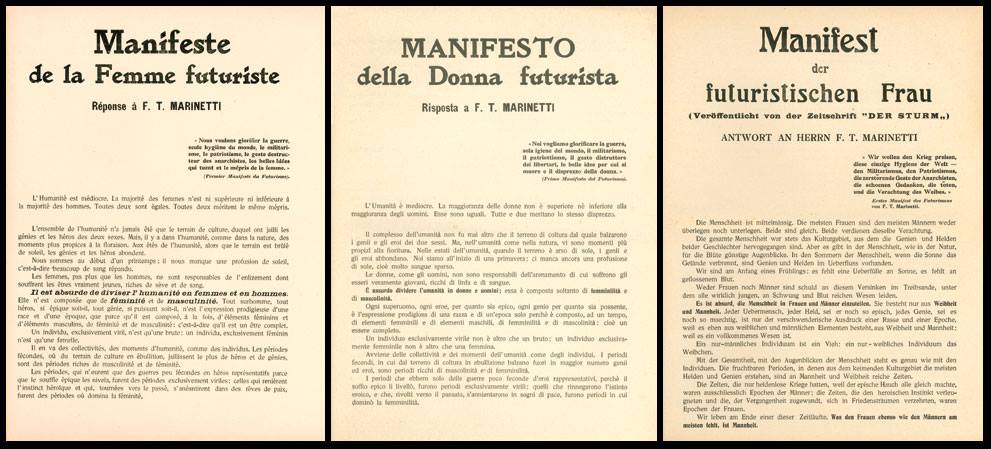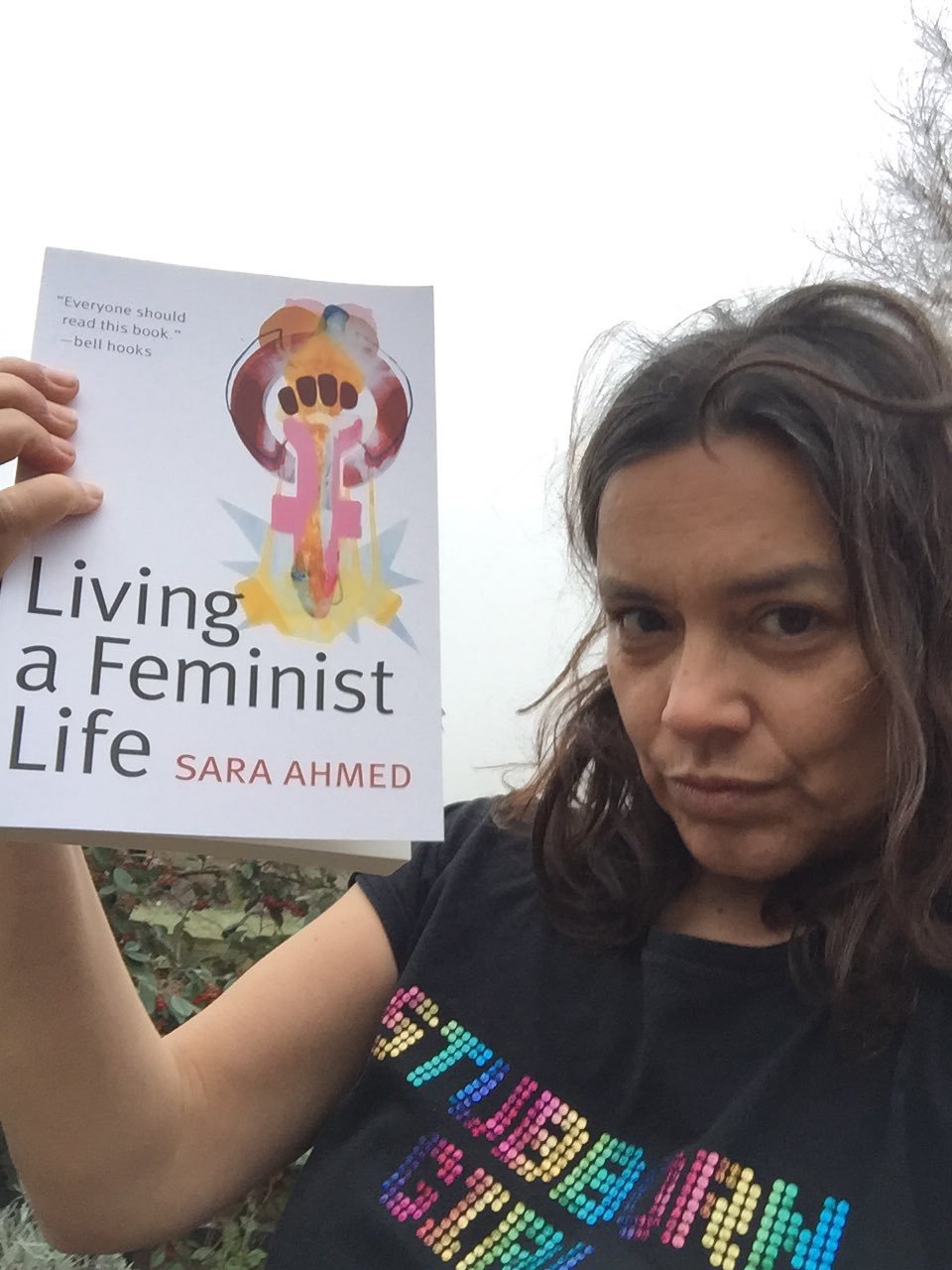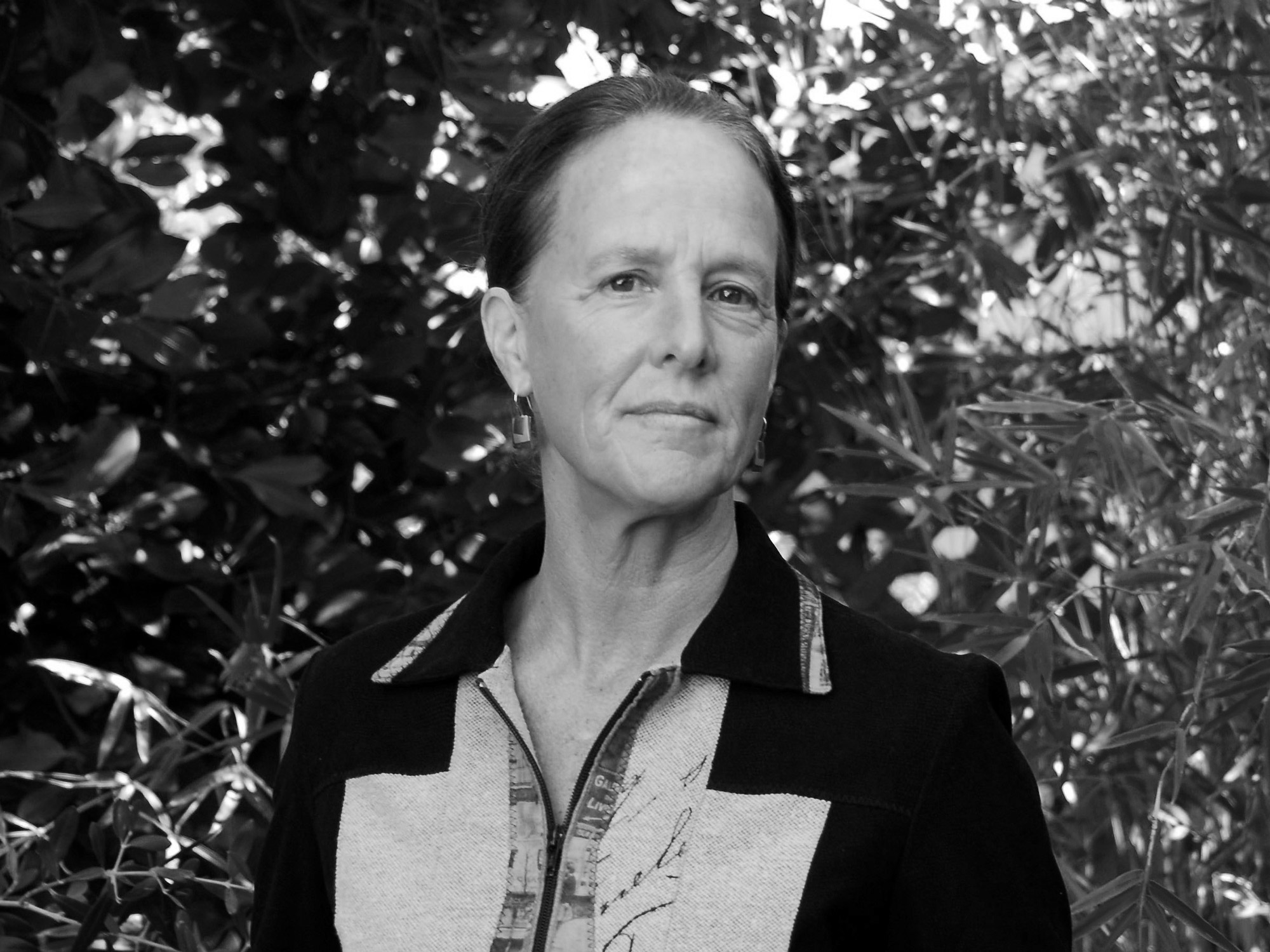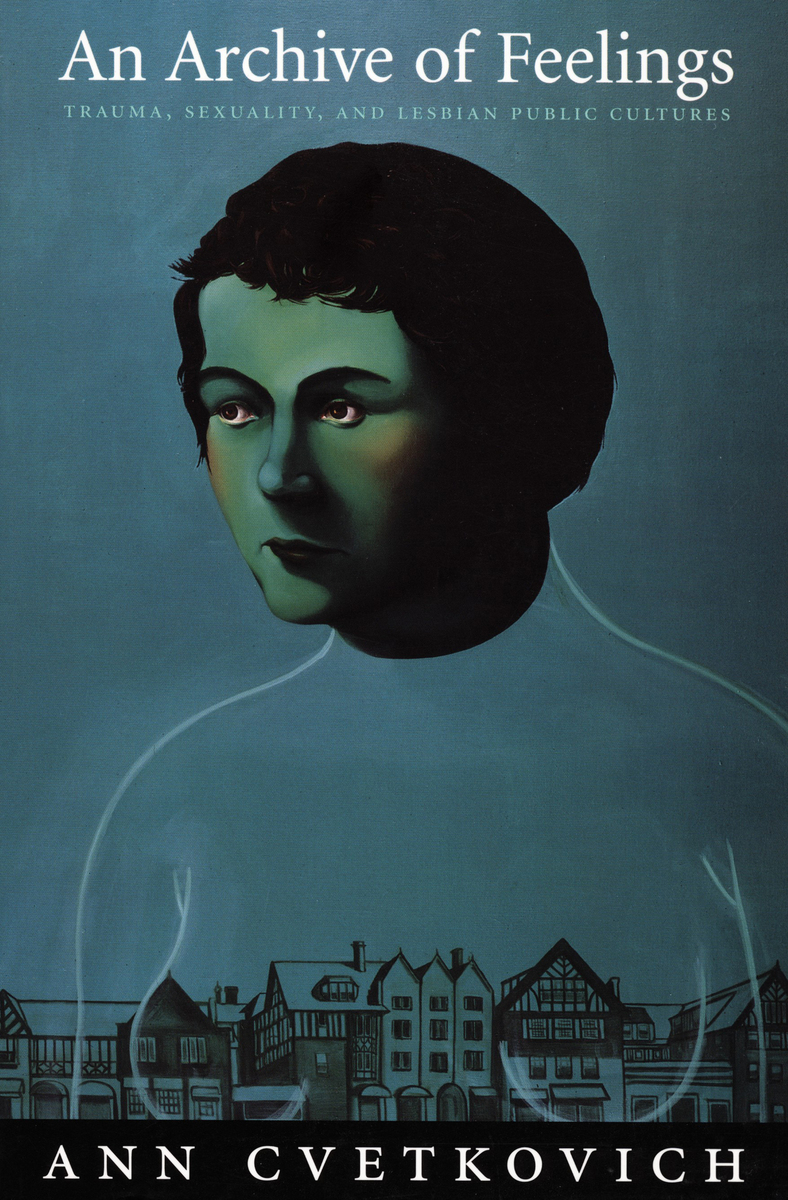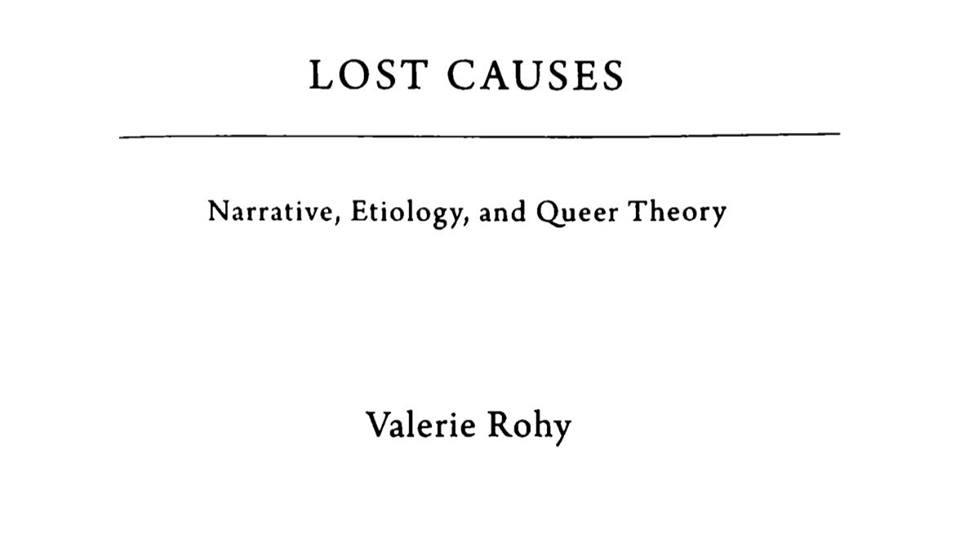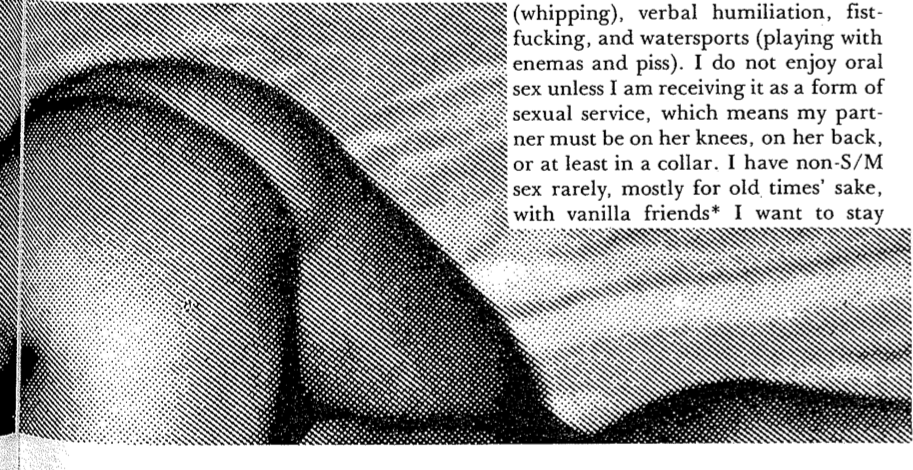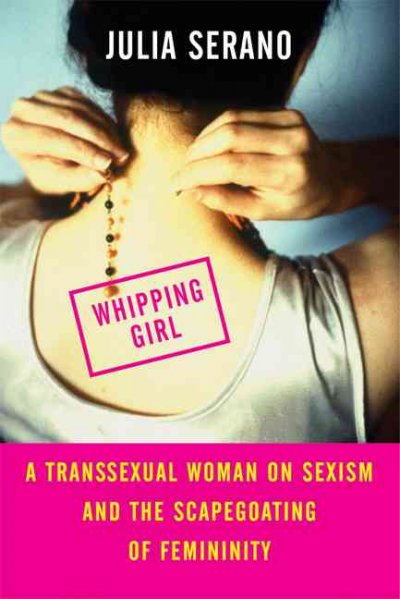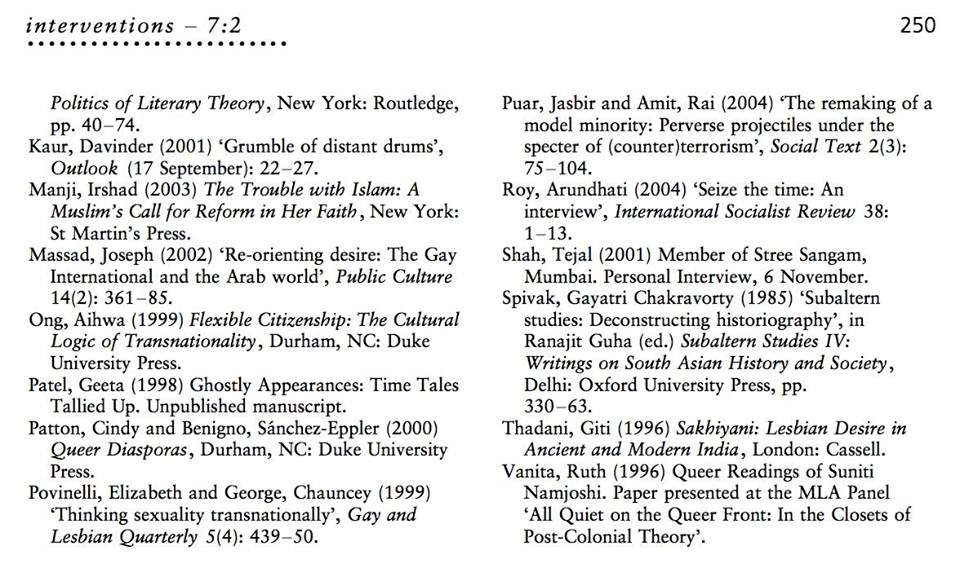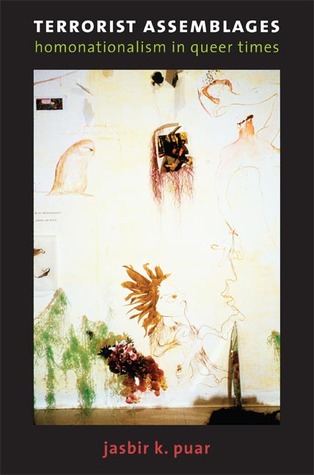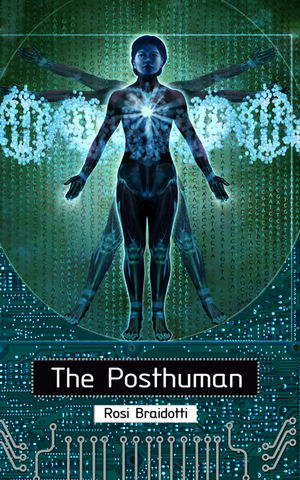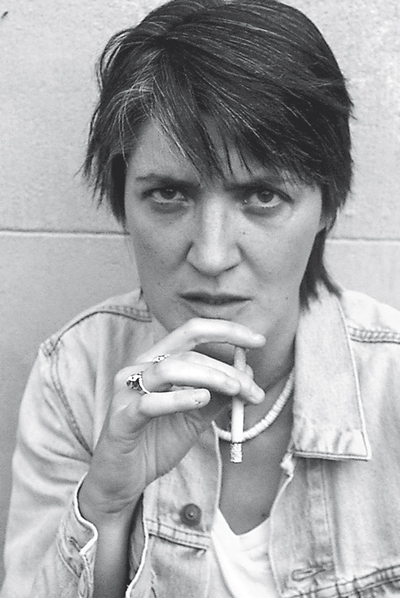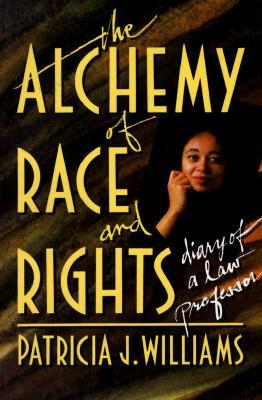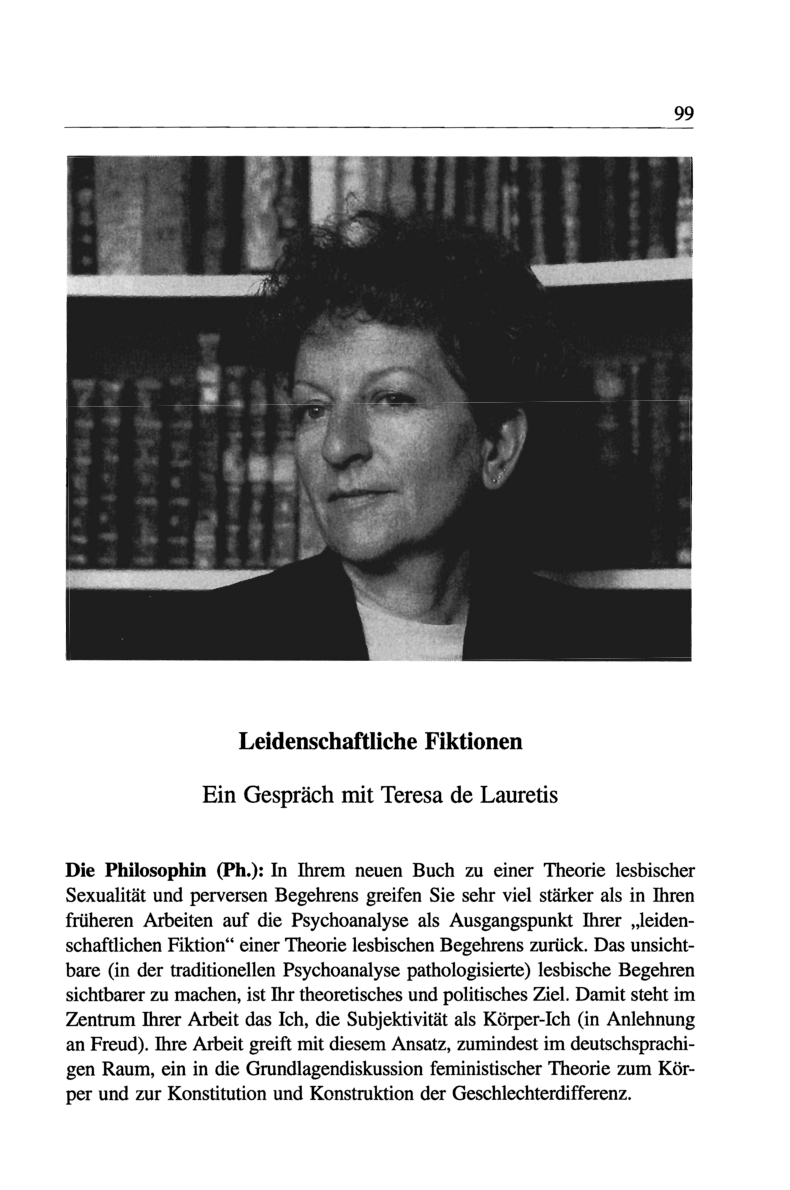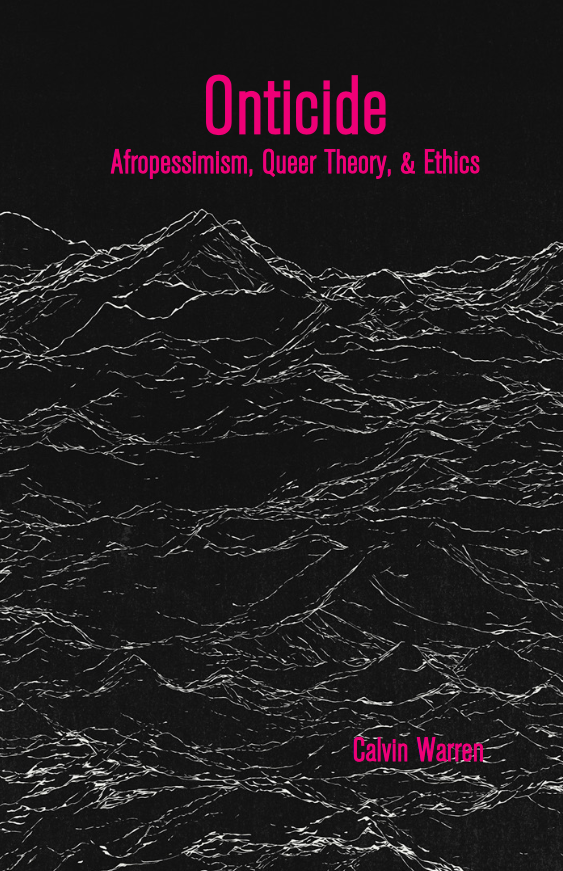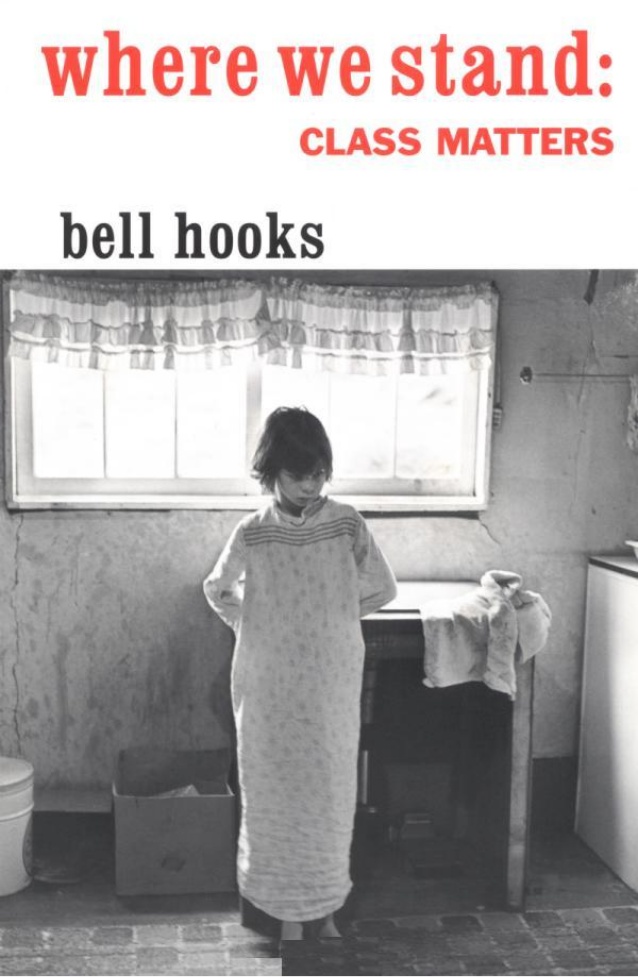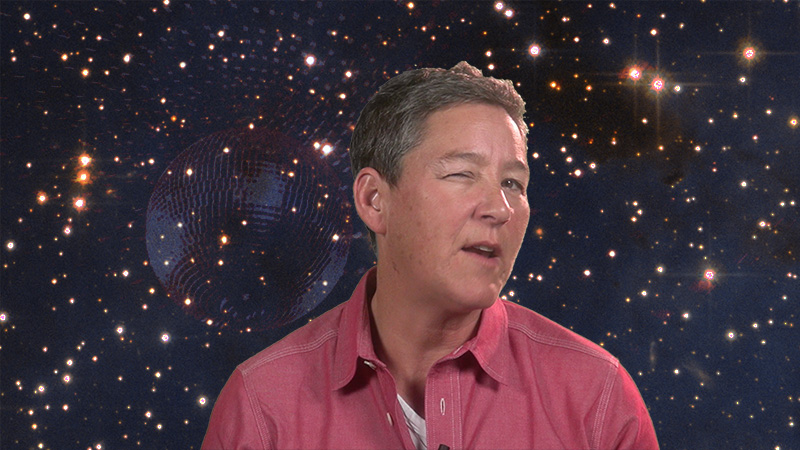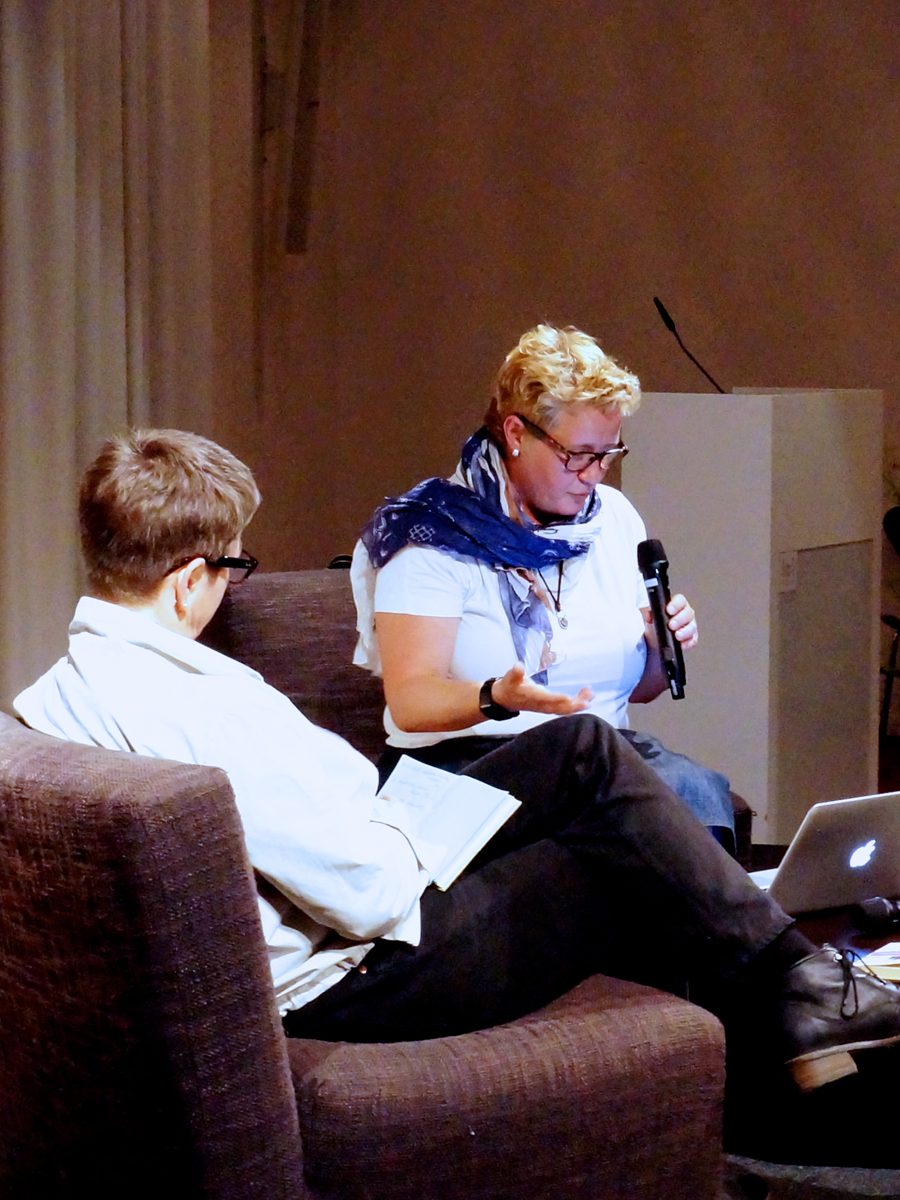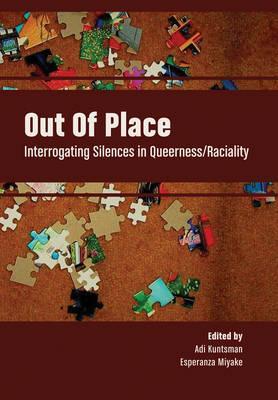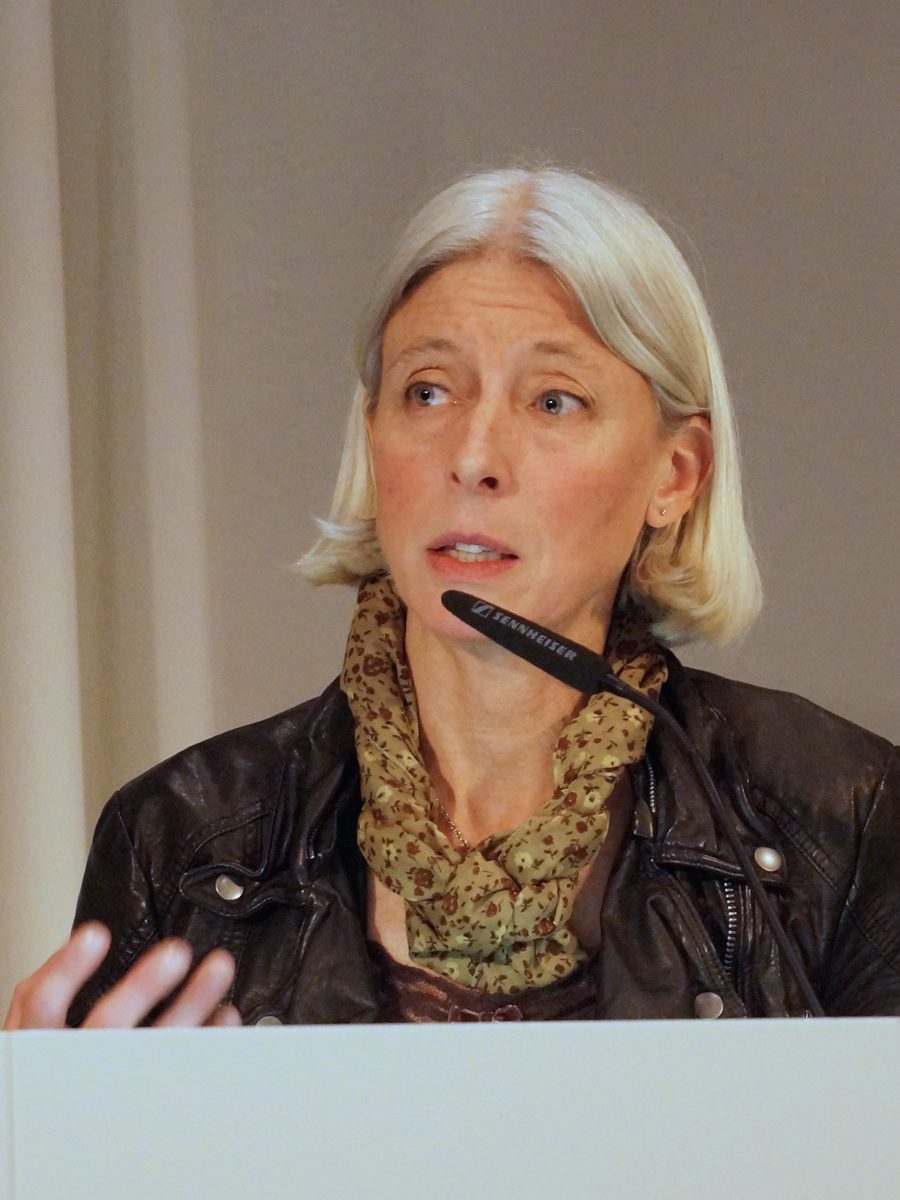Real Talk Queer Theory Reading Group
New York City
2021
-
SOON Legacy Russell Digital Dualism And The Glitch Feminism Manifesto (2012) Elsewhere, After the Flood: Glitch Feminism and the Genesis of Glitch Body Politic (2013) Ain’t I a Womxn?: What Glitch Feminism Can Teach Us Now (2021)
Download We are celebrating QTRG’s six year anniversary this week! Our very first meeting was February 24, 2015. Thanks to everyone who has been part of QTRG over the past six years! <3 *SENDING FUNDS* This week, white queers in the group, we are sending $$$ to Jerome Jones’ Emergency Safety & Housing Fund. Jerome is a Black Non-binary migrant who has been building networks of safety, security and escape for themselves and all Black, LGBTQIA+, indigenous, Migrant, Disabled folkx and marginalized folkx in community. If you are unable to make your reparations payment this week, contact QTRG privately and we’ll make it together. GoFundMe Cashapp: $r0meyr0me Venmo: @Jerome-Jones-22 Image description: A photo of Russell’s “Glitch Feminism” book opened to the page with Mark Aguhar’s “These Are the Axes” (2012) text piece. The text is set in a rectangle with a black border and reads (each on its own line, in all caps): “These are the axes: 1 Bodies are inherently valid 2 Remember death 3 Be ugly 4 Know beauty 5 It is complicated 6 Empathy 7 Choice 8 Reconstruct, reify 9 Respect, negotiate.” The neighboring page has “00 – INTRO” on it and the rest is cut off.
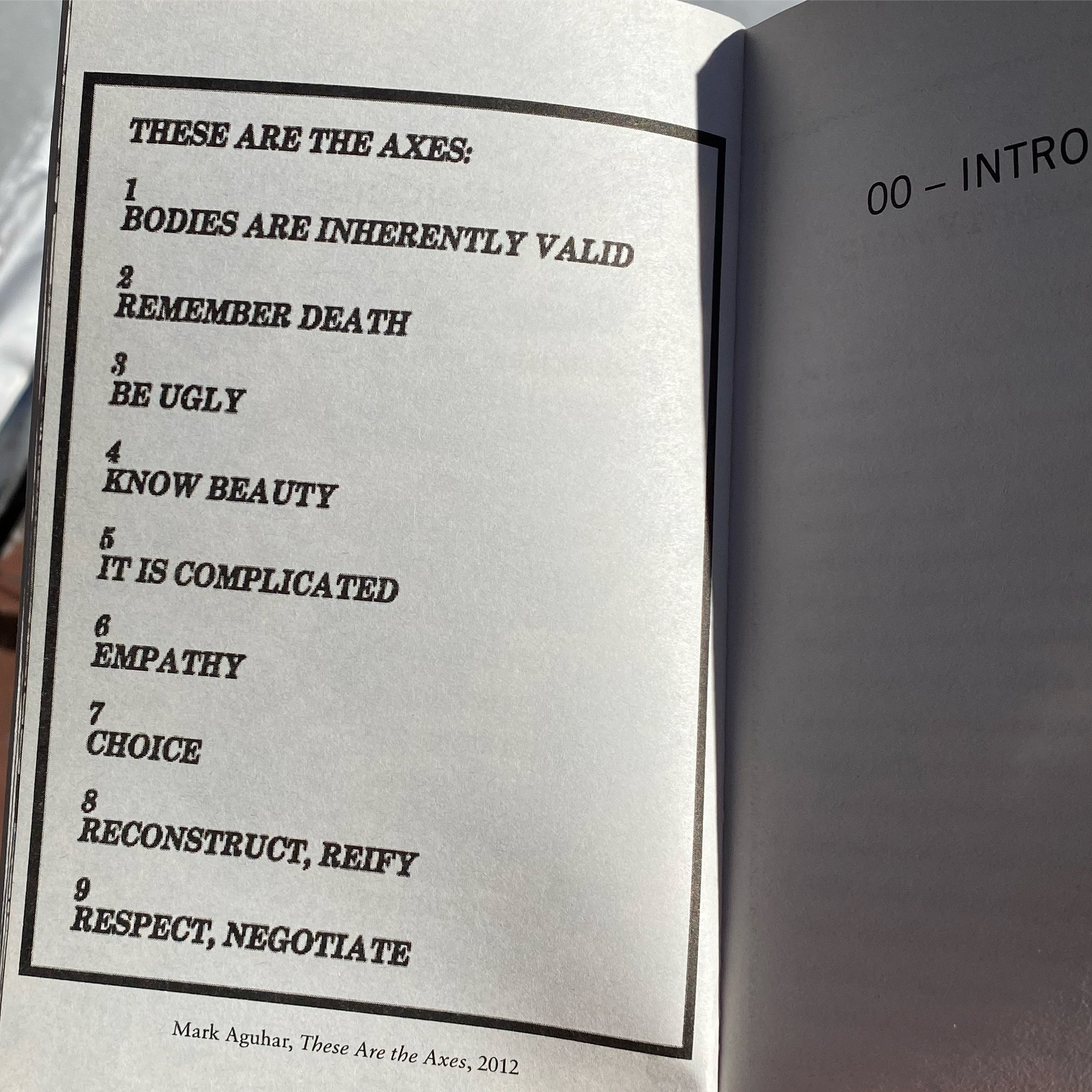
-
February 16, 2021 Sadé Mica, Posturin (2018) + With me Mam in Malham (2019) Leilah Weinraub, SHAKEDOWN (2018) In online exhibition LEAN (2021) curated by Legacy Russell
Download curator’s text Watch videos This exhibition LEAN brings together seven artists—Justin Allen, Jen Everett, Devin Kenny, Kalup Linzy, Rene Mati , Sadé Mica, and Leilah Weinraub—who, through movement, sound, and film, collectively congregate and confer toward lean as a Black vernacular and queer poetic proposition. Across these seven artists and their work shown here as part of Performa’s Radical Broadcast, lean is an intimacy, collaboration, intergenerational conviviality. The exhibition will stream on Performa’s website until February 28, 2021. Showtimes for Sadé Mica: Daily 2PM – 3PM, 11PM – 12AM, 8AM – 9AM ET Showtimes for Leilah Weinraub: Daily 3PM – 6PM, 12AM – 3AM ET Sadé Mica (b. 1995, New Moston, Greater Manchester, England; Lives and works in Manchester, England) [they/them] is a multimedia artist and musician whose work engages textiles, film, sound, and performance in an exploration of how their movement is policed by the environment and how the queer and Black body can be both freed and restricted simultaneously within the landscape of the British countryside. As an ongoing part of their practice, Mica travels to bucolic locations on their own, setting up a tripod and performing to the camera, subtle scenes set to intervene within a pastoral frame. In Mica’s video work “With me Mam in Malham” (2019) the artist films themself with their mother in the historic English village of Malham, a popular trekking destination. In a collaboration across kin, Mica and their mother mimic one another in gesture and form, striking and holding positions improvised and choreographed in response to the site. As they bend back, lean forward, and crouch to the ground, each becomes an extension of the lush verdure that surrounds them, a confluence between organic forms that transmits and transforms the energy of the natural landscape. In their video work “Posturin’” (2018) Mica poses as if having their picture taken, standing in their studio space, arms crossed and engaging the gaze of the camera directly. The voice overlaid is Mica themself, a lyric poem said in whisper. Here the artist reflects on the act of chest binding, the compression of breast tissue with a clothing item known as a binder intended to give the appearance of a flat chest. Used by non-binary or trans-identified people, chest binders are meant to be body-a rming and empowering. Mica, wearing a binder themselves, navigates a vulnerable internal monologue, reflecting on the shaping of a non-binary selfhood and what radical refusals can be enacted in the presence of breasts, versus the absence of them. The artist muses, “There’s calculation in the movements / Can’t be one step ahead when the weight is even more / To bind is to restrict . . . to not, is to—resist? Forgive, let femme exist.” Leilah Weinraub (b. 1979, Los Angeles, California; Lives and works Los Angeles, California) [she/her] is an artist, film director, and CEO and co-founder of Hood by Air, the New York-based fashion collective known for luxury streetwear. As a filmmaker, Weinraub has documented such unacknowledged tastemakers, particularly those belonging to queer, autonomous communities of color whose creative output is often plundered by mass culture and whose sto- ries are rarely told on their own terms. “SHAKEDOWN” (2018) is a feature-length documentary film that Weinraub began shooting in 2002 at the age of twenty- three. “SHAKEDOWN” premiered at the 2018 Berlinale and subsequently became the first non-pornographic film to be released on Pornhub. The film draws its name from Shakedown, a Los Angeles-based lesbian strip club, catering specifically to Black lesbians. Weinraub began her work at Shakedown as a house photographer but when faced with the limitations of still imagery transitioned into moving image. Over the course of the six years that followed, Weinraub shot 400 hours of footage, intimately following the lives of a handful of regular dancers, whom Weinraub in the film’s credits cites as “The Shakedown Angels”—Dallas, Egypt, Foxy, Blaze, Sunshine, Jamaika, and the club’s “mother” Miss Mahogany, a performer of 33 years—to name just a few. Weinraub’s portrait of Shakedown as a generative safespace of creative exploration reveals an empowered and radical architecture, a space for and by Black women aimed to hold and house queer intimacies and kinships in new shapes and forms. At Shakedown, the dancers don avatars of themselves, a range on the stage seized and possible that gives wings to Black womanhood as gorgeous, complex, and expansive. Weinraub presents a necessary intervention and expansion of Black feminism, refusing the confines of “respectability politics” and countering the gaze, erotic, and misogyny of a straight, white imagination, flipping the script on questions of power, economy, self- determination, and control. As Dallas reminds those in the room before the beat drops: “If you’re straight, you don’t need to be in the front.” *SENDING FUNDS* This week, white queers in the group, we are sending $$$ to Cylan Barker’s school fund. If you are unable to make your reparations payment this week, contact QTRG privately and we’ll make it together. GoFundMe Cashapp: $CylanB Image description: A color video still from Sadé Mica’s work “Posturin” (2018). From the press release: “Mica poses as if having their picture taken, standing in their studio space, arms crossed and engaging the gaze of the camera directly. The voice overlaid is Mica themself, a lyric poem said in whisper. Here the artist reflects on the act of chest binding, the compression of breast tissue with a clothing item known as a binder intended to give the appearance of a flat chest.” A square piece of beige fabric hangs behind them on a white wall.
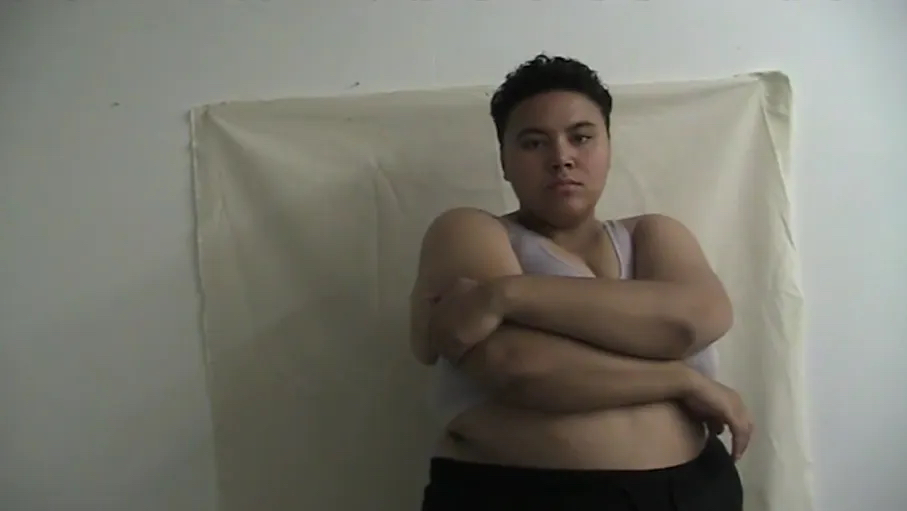
-
February 9, 2021 Sandy Stone The ‘Empire’ Strikes Back: A Posttranssexual Manifesto (1987)
Download *SENDING FUNDS* This week, white queers in the group, we are sending $$$ to Breanna Taylor’s fund for living expenses in NY. If you are unable to make your reparations payment this week, contact QTRG privately and we’ll make it together. GoFundMe Paypal Cashapp: $BreDioni Venmo: @Breanna-Taylor-6 Image description: A fuzzy b/w photo of Sandy Stone at Olivia Records where she worked as their sound engineer from 1974-1978, recording and mixing all of Olivia’s music during that time. Stone is seated at a mixing board, her hand on one of the dials, looking at the camera, kind of smiling. She’s wearing a t-shirt and her hair is long. During this time, Stone was subjected to transphobic attacks from some in the mainstream trans-exclusionary lesbian community, like Janice Raymond, who tried to oust Stone out of the collective and wrote The Transsexual Empire as an attack on Stone. Olivia Records responded by publicly defending Stone in feminist publications at the time, but eventually Stone left and went on to study at UC Santa Cruz, where she met Donna Haraway and wrote The Empire Strikes back: A Posttranssexual Manifesto.
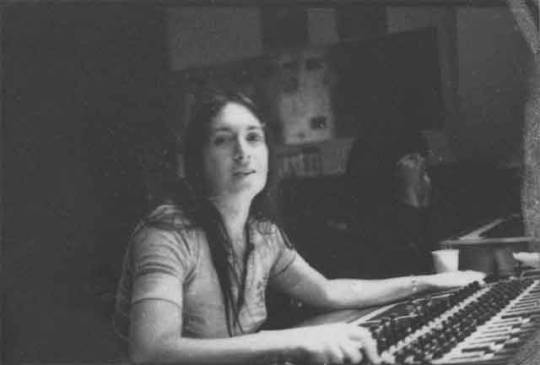
-
February 2, 2021 Donna Haraway A Cyborg Manifesto (1985)
Download “The cyborg is resolutely committed to partiality, irony, intimacy, and perversity. It is oppositional, utopian, and completely without innocence.” *SENDING FUNDS* This week, white queers in the group, we are sending $$$ to Jhabri Eshé Hughes’ Hormone Replacement Therapy Fund. You can find his work here: eshealldayhues24.com. If you are unable to make your reparations payment this week, contact QTRG privately and we’ll make it together. GoFundMe Image description: A black cover with the following text, centered and in white: A Cyborg Manifesto (in curly/moments of cursive typeface) / SCIENCE, TECHNOLOGY, AND SOCIALIST-FEMINISM IN THE LATE TWENTIETH CENTURY (in all caps). There’s a cloud of light or dust maybe on the lower left side of the image, exiting the frame.
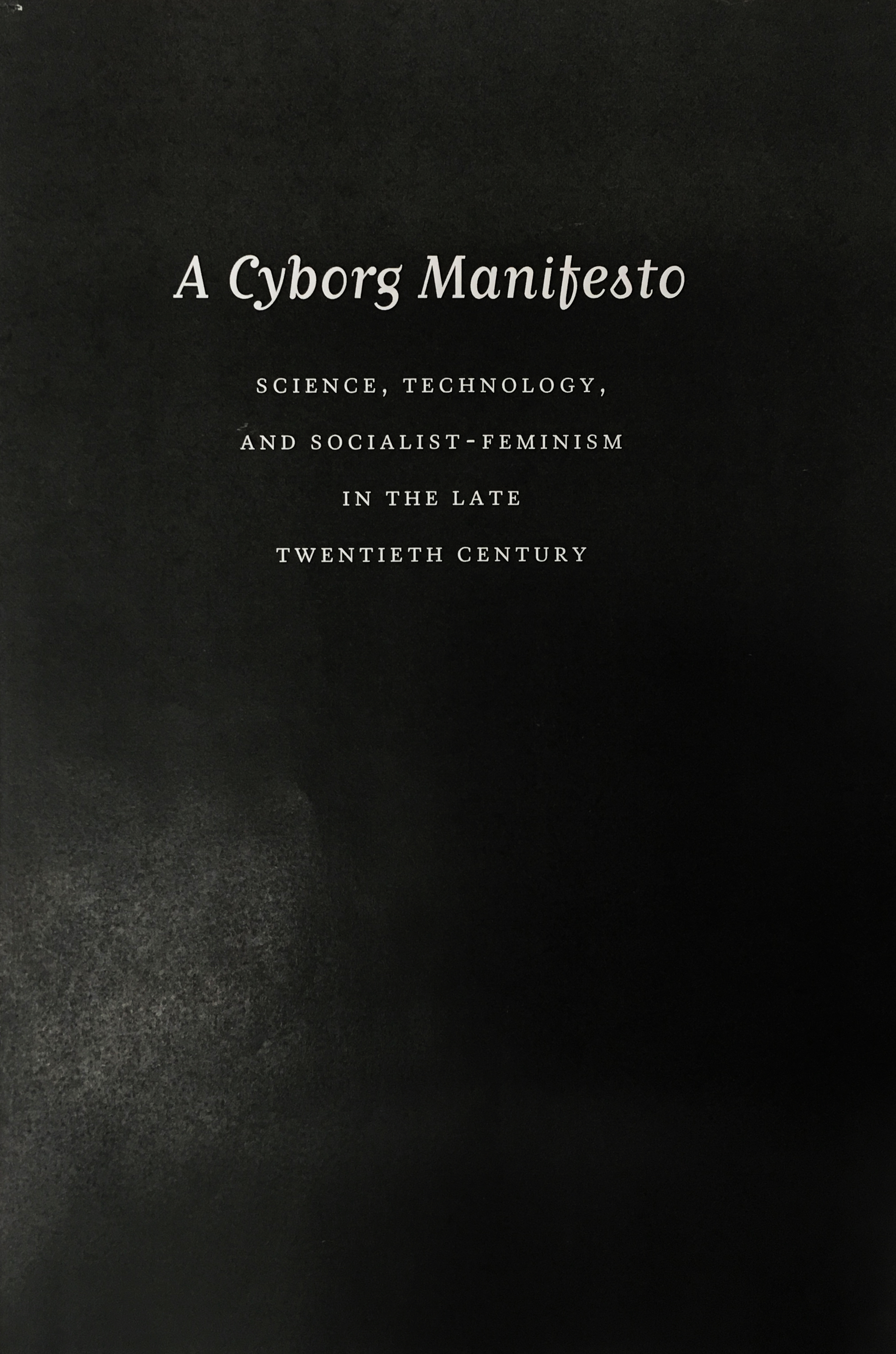
-
January 26, 2021 Justin Chin Bite Hard (1997) + Chris A. Eng Apprehending the “Angry Ethnic Fag”: The Queer (Non)Sense of Shame in Justin Chin’s “Currency” and “Lick My Butt” (2020)
Download Chin / Link Download Eng Abstract: This article postulates the “angry ethnic fag” as a figure of silenced queer of color dissent. Building on the work of artist Justin Chin, it explores how shame elucidates value economies that apprehend specific acts of indignity as having the currency to forward LGBTQ politics while rendering queer of color demands nonsensical. Efforts to recuperate shame often replicate consumption practices that feed on the racial other to nourish an unmarked queer body (politic). Wallowing in the rim of abjection, Chin’s oeuvre centers the queer Asian/American to consider that which circulates around but is not necessarily in the bottom. His essay “Currency” and poem “Lick My Butt” theorize the (peri-) bottom as an ambivalent positioning that taints celebratory claims about the subversive potentiality of bottomhood. Reanimating shame and the erotic through a poetics of sweet pain, Chin’s works show how “eating ass” opens up radical alternative relationalities for queer politics. *SENDING FUNDS* This week, white queers in the group, we are sending $$$ to Sol de la Ciudad’s Transition Fund. If you are unable to make your reparations payment this week, contact QTRG privately and we’ll make it together. GoFundMe Image description: The image is the cover of Justin Chin’s book Bite Hard. It is a cropped image of a face in a lime green mask, smooth and glossy, lips with red lipstick, and teeth showing through a grin. The teeth bite down on a white rectangular piece of paper, like a printed label, with a smiley face on it and the words “Bite hard.” Justin Chin’s name is printed in red at the bottom left corner.
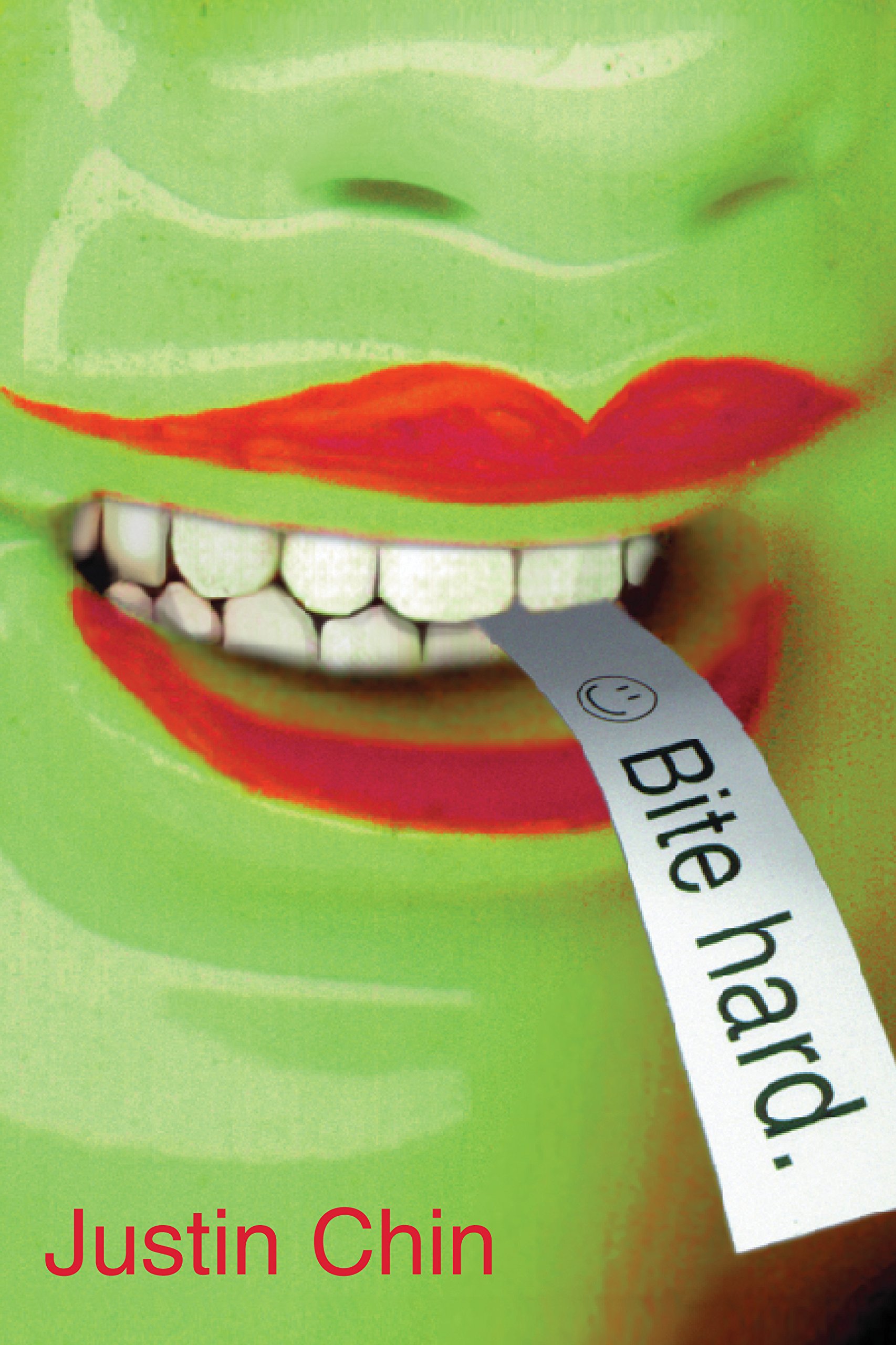
-
January 19, 2021 Elvia Wilk This Compost: Erotics of Rot (2020)
Link Download “Mushrooms sprout from the bathtub grout; disintegrating apples overflow from the trash can. Insects circle. The decomposition is lively and sensorially overwhelming.” *SENDING FUNDS* This week, white queers in the group, we are sending $$$ to La’shaunae Steward’s secure housing and moving fund. If you are unable to make your reparations payment this week, contact QTRG privately and we’ll make it together. GoFundMe Image description: A detail from an illuminated manuscript. There’s a corner of text visible and a person bending over, bare ass, standing on the text box, in red knee-high boots. The top half of their body disappears into a hole. There’s a decorative blue leafy stem coming out of the ass, embellishing the page with other intricate drawings of flora in green, gold, pink, and blue.
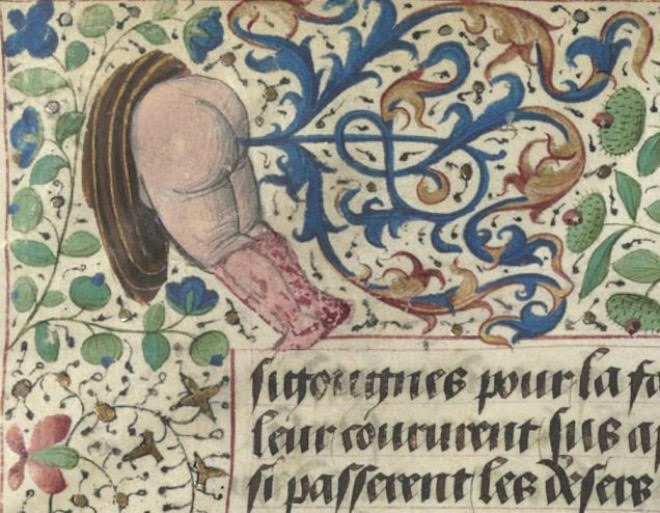
-
January 12, 2021 Renee Gladman Calamities (2016)
Download Renee Gladman is a writer and artist preoccupied with lines, crossings, thresholds, geographies, and syntaxes as they play out in the interstices of poetry and prose. *SENDING FUNDS* This week, white queers in the group, we are sending $$$ to Martin Hell’s Top Surgery & University Fund. If you are unable to make your reparations payment this week, contact QTRG privately and we’ll make it together. GoFundMe PayPal: robotron22@gmail.com Venmo: @Nadroj-Nitram Image description: A scanned signed cover page from Calamities. The letters “CALAMIT” from the title are in black printed handwriting in all caps, large across two lines. The rest of the word is cropped out of the image. There’s a drawing by Gladman at the top in a multi-color pencil between the A, L, and other A. Above the I and T there’s a note in the same rainbow pencil: “About to leave; about to arrive — (Gladman’s signature) Berlin 2019.”
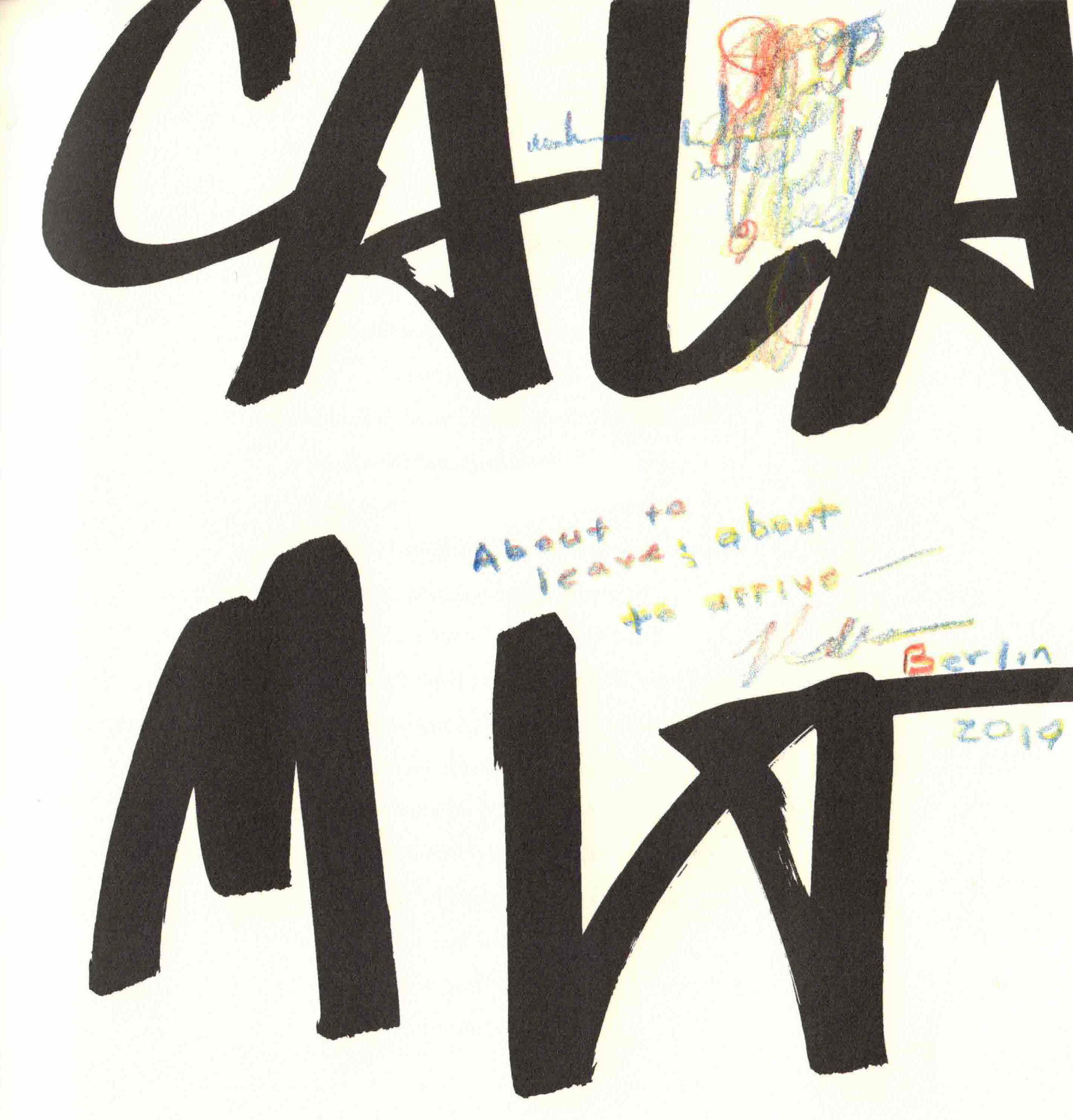
2020
-
December 29, 2020 Larry Mitchell Illustrations by Ned Asta The Faggots & Their Friends Between Revolutions (1977)
Download Read any/all of this book for our last meeting of the year, and the preface by Tourmaline and Morgan Bassichis’ introduction if you have the new edition! Mark some pages and sections to read aloud together. Bring your own work to share too, as well as drinks and food to carry us out of this year and into the next. About: The Faggots and Their Friends Between Revolutions is a beloved queer utopian text written by Larry Mitchell with lush illustrations by Ned Asta, published by Calamus Press in 1977. Part-fable, part-manifesto, the book takes place in Ramrod, an empire in decline, and introduces us to the communities of the faggots, the women, the queens, the queer men, and the women who love women who are surviving the ways and world of men. Cherished by many over the four decades since its publication, The Faggots and Their Friends Between Revolutions offers a trenchant critique of capitalism, assimilation, and patriarchy that is deeply relevant today. This new edition features essays from performance artist Morgan Bassichis, who adapted the book to music with TM Davy in 2017 for a performance at the New Museum, and activist filmmaker Tourmaline. *SENDING FUNDS* This week, white queers in the group, we are sending $$$ to Muse’s Housing Stability and Moving Fund. If you are unable to make your reparations payment this week, contact QTRG privately and we’ll make it together. GoFundMe Image description: A photo of a page in the book with a column of text running down the middle and drawings of two people on either side, framing the text, their arms stretched across the page holding hands. They are looking at each other and organic lines swirl around their bodies and decorate the page. The text reads: WOMEN WISDOM / The strong women told the faggots that the more you share, the less you need. At first the faggots thought the strong women were being either obtuse or utopian. But as they began to share their clothes and their secrets and their magic potions and their spaces and their incantations and their animals and their books and their visions and their food, they learned, slowly, that the more they shared with each other, the more there was that could be shared and the less any one faggot needed. / THE MORE THAT GOES AROUND THE MORE YOU GET BACK.
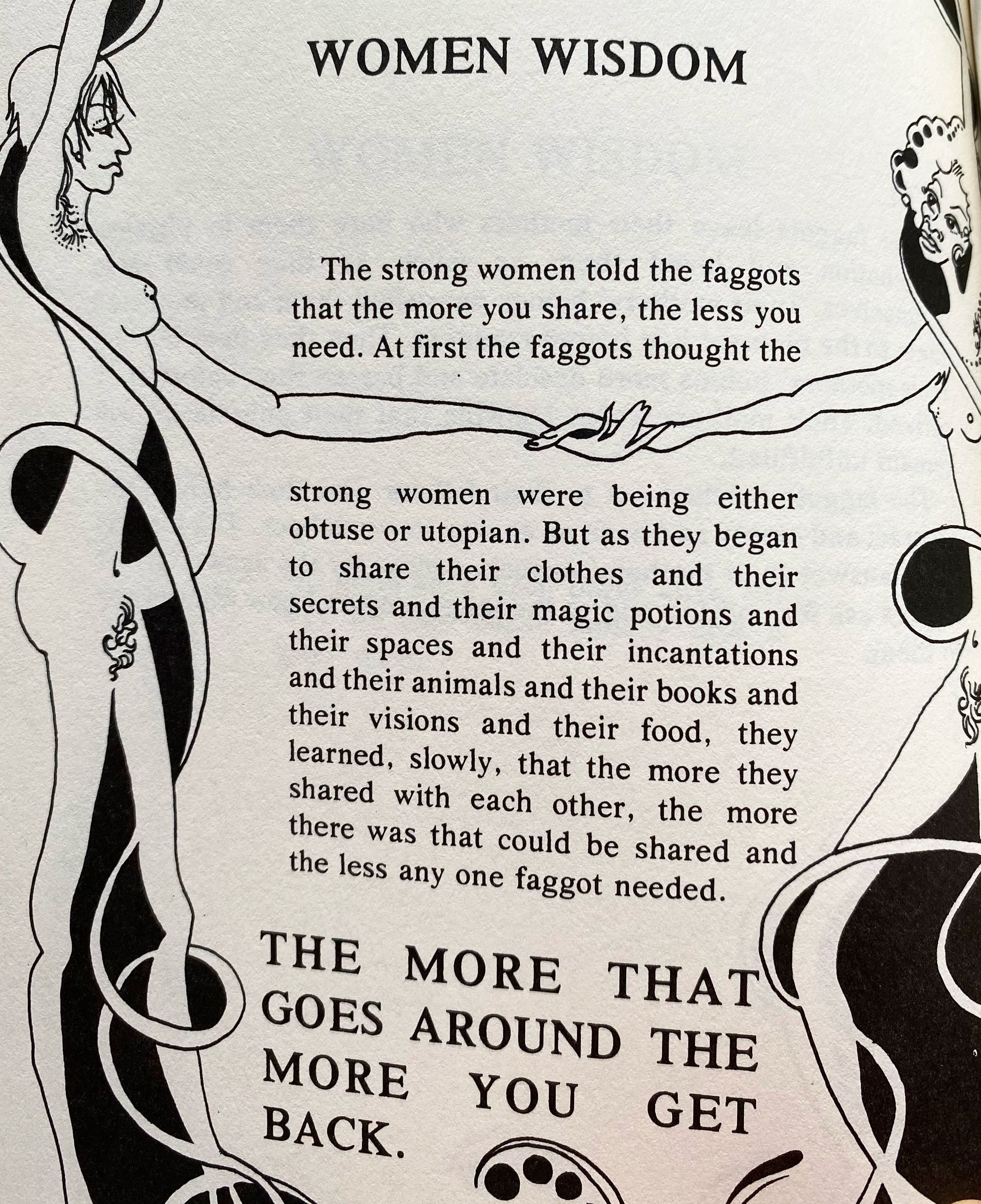
-
December 22, 2020 Mel Y. Chen Toxic Animacies, Inanimate Affections (2011)
Download Abstract: This essay suggests that thinking, and feeling, with toxicity invites a recounting of the affectivity and relationality—indeed the bonds—of queerness as it is presently theorized. Approaching toxicity in three different modes, I first consider how vulnerability, safety, immunity, threat, and toxicity itself are sexually and racially instantiated in the recent panic about lead content in Chinese-manufactured toys exported to the United States. This analysis, while seeming at first to hover somewhat outside queerness, is completed in the next section, where I interweave biopolitical considerations of immunity into an account of the peculiar intimacies and alienations of heavy metal poisoning, rendered in the first person. The essay ends by suggesting that the queering and racializing of material other than human amounts to a kind of animacy. Animacy is built on the recognition that abstract concepts, inanimate objects, and things in between can be queered and racialized without human bodies present, quite beyond questions of personification. Theorizing this animacy offers an alternative, or a complement, to existing biopolitical and recent queer-theoretical debates about life and death, while the idea of toxicity proposes an extant queer bond, one more prevalent today than is perhaps given credit. Such a toxic queer bond might complicate utopian imagining, as well as address how and where subject-object dispositions might be attributed to the relational queer figure. *SENDING FUNDS* This week, white queers in the group, we are sending $$$ to D Goodridge’s urgent mutual aid request for safe and secure living. If you are unable to make your reparations payment this week, contact QTRG privately and we’ll make it together. GoFundMe Venmo: @oshunsambience CashApp: $dgood1 Image description: A video still from A.K. Burns’ “Touch Parade (squeeze-2-pop)” (2011). The frame shows a torso in a white tank top on the other side of a plastic bubble with large hands wrapped around pressing tight, holding the bubble against their torso, causing their shirt to wrinkle. The bubble is reflecting a couple of lights in the room and some windows with blue light.
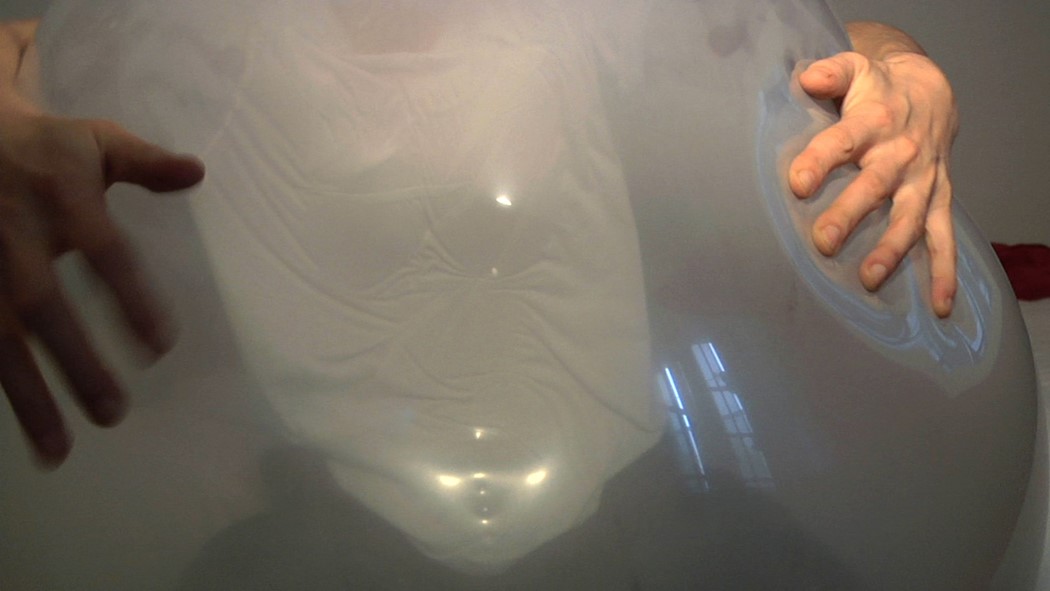
-
December 15, 2020 Susan Stryker Dungeon Intimacies: The Poetics of Transsexual Sadomasochism (2008)
Download *SENDING FUNDS* This week, white queers in the group, we are sending $$$ to Easy Activism: Fundraising for Black Mental Health. Their goal is to raise $50K to provide over 200 Black people with one month of free individualized therapy. They use the funds to pay the BIPOC therapists who heal the community while also experiencing shared trauma. If you are unable to make your reparations payment this week, contact QTRG privately and we’ll make it together. Link for tax deductible payment Venmo: @easyactivism CashApp: $easyactivism PayPal: easyactivism Image description: A b/w photo from an old On Our Backs edition. The image is cropped to show the leg and the leather, pointed and heeled, black boot of one person, propped up on an embroidered box and tasseled white cushion. The top of the boot is being licked by another person with short hair, who is on their knees and wearing a leather vest.
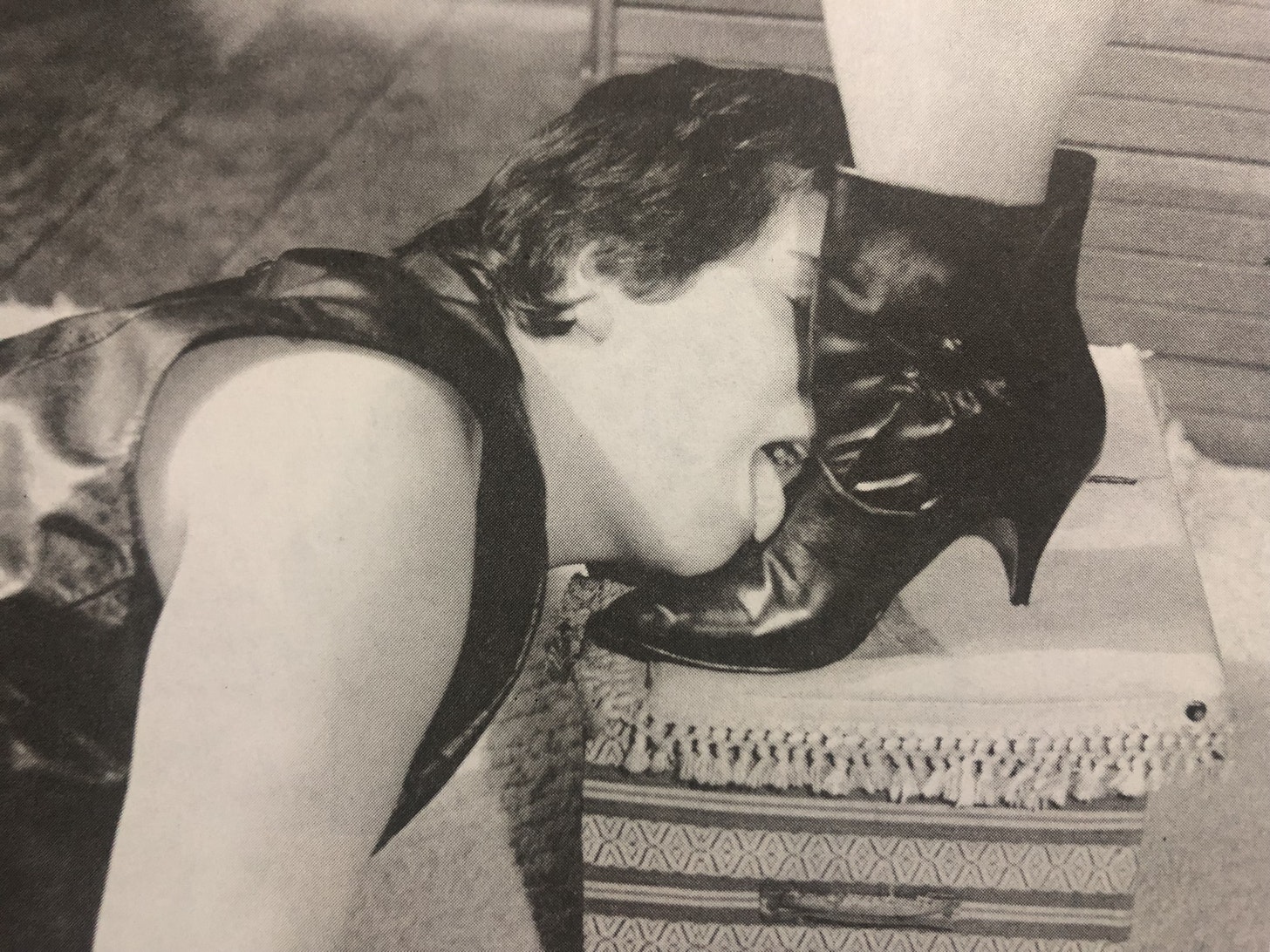
-
December 8, 2020 Eva Hayward Spider city sex (2010)
Download Abstract: In her essay ‘‘Dungeon Intimacies’’ (2005) Susan Stryker offers ‘‘auto-ethnography’’ as a methodology for theorizing embodiment and politics. She invites us to see how corporeality situates more generalizable knowledges. Following Stryker, this essay explores male-to-female transsexual transitioning in an urban setting, San Francisco’s Tenderloin, through bodily experience. These accounts might appear as drifts in personal recollection, but they are meant to suggest, however speculatively, and without aiming toward universalizing, the sensuous transaction between body and environment. Apprehending the interplay of sensation and place, I suggest, requires an attention to streets, buildings, and sidewalks, but also other non-humans. Guided by figural and literal spiders and the effects of hormone replacement therapy in the form of horse urine (Premarin), this essay proffers that transsexuality is relational in terms of social, economic, and political milieus as well as spatial, affective, and speciated registers. *SENDING FUNDS* This week, white queers in the group, we are sending $$$ to The Free Black Women’s Library to help fund dreams for a reading room, bookmobile, and staff librarian/archivist. If you are unable to make your reparations payment this week, contact QTRG privately and we’ll make it together. GoFundMe Image description: The image is Nina Katchadourian’s “Mended Spiderweb #8 (Fish Patch)” (1998). In the photo, there’s a broken spider web mended together with red sewing thread. The spider web is lightly visible against a darker backdrop that is out of focus (windows of a house) and the red sewing thread stands out in the shape of a fish. There is a lime green pine needle hanging off the spider web in the left corner of the image.
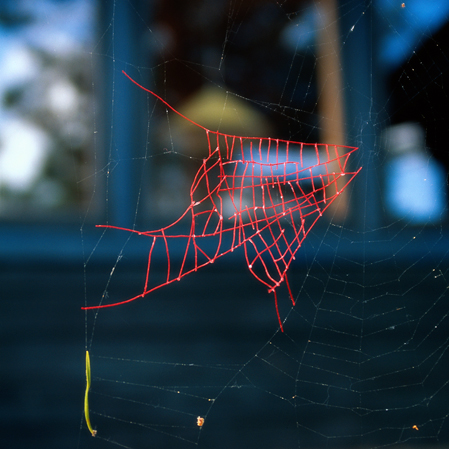
-
December 1, 2020 Luce Irigaray The “Mechanics” of Fluids (1974/1985)
Download From This Sex Which Is Not One. *SENDING FUNDS* This week, white queers in the group, we are sending $$$ to Eva Reyes’ Light of Ours performance for candle donations. Reyes writes: “This upcoming work invites you to collectively mourn the loss of black lives, time, as well as a sense of normalcy through the gathering and lighting of ritual candles.” If you are unable to make your reparations payment this week, contact QTRG privately and we’ll make it together. GoFundMe Image description: The image is the cover of Luce Irigaray’s This Sex Which Is Not One. The title and author are in all caps white typeface, set on a purple rectangle on a white background. There are two small yellow squares centered above and below the purple rectangle.
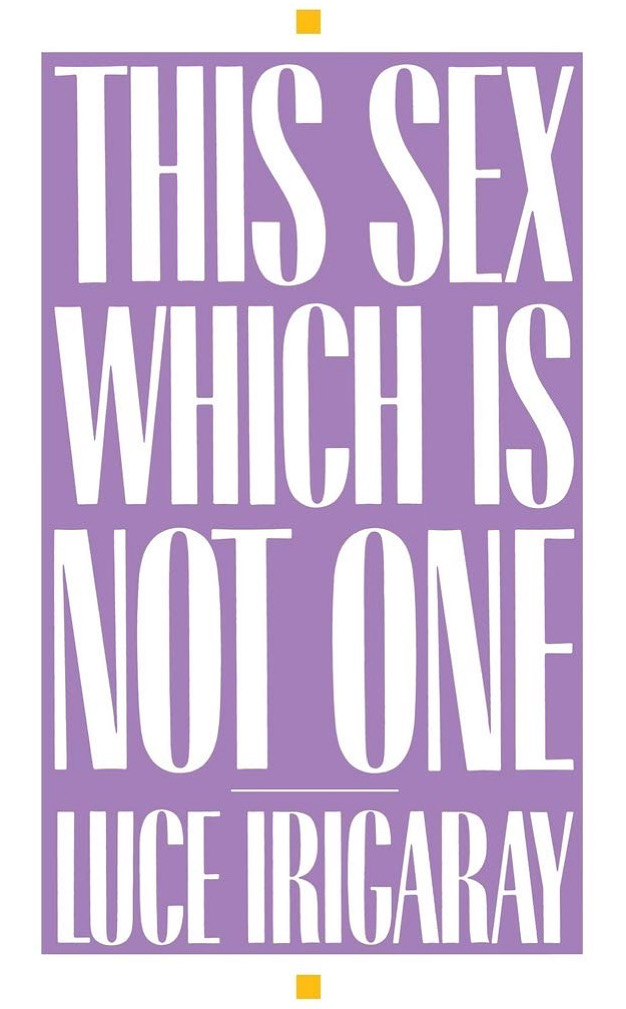
-
November 24, 2020 Tim Dean The Art of Piss (2015)
Download *SENDING FUNDS* This week, white queers in the group, we are sending $$$ to Amber K’s fund to cover medical costs for a year. Amber K is a nonbinary, disabled and chronically ill femme. If you are unable to make your reparations payment this week, contact QTRG privately and we’ll make it together. GoFundMe Image description: A color photograph of the entrance of Mineshaft, a members-only, cis-male gay leather bar and sex club located at 835 Washington Street in the Meatpacking District in NYC. The photograph is taken from across the street, so there’s a cobblestone street in the foreground, then a layer of dirty snow, then the sidewalk where the sun line ends and the shadow from the building’s overhang starts. The building is painted black and there’s a long white arrow painted on the wall, pointing to a red door (the entrance). “PRIVATE CLUB” and “835” are painted along the arrow. The black paint on the building around the entrance is worn and chipped. There’s some tagging graffiti on the red door and a bit at the right edge of the image.
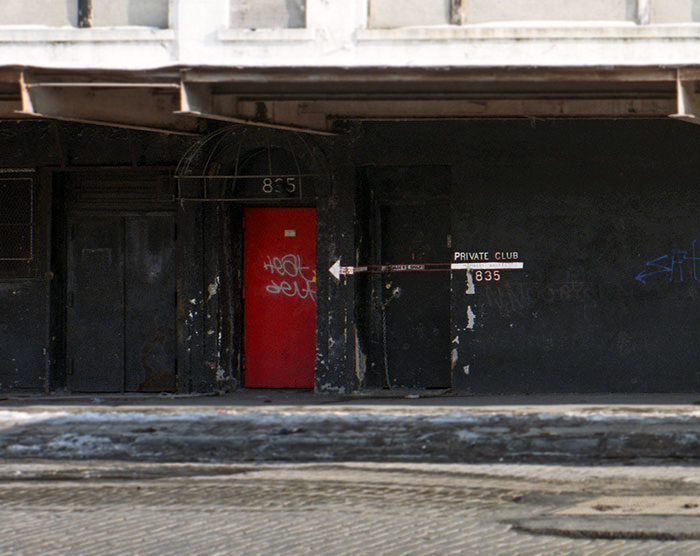
-
November 17, 2020 Kathy Acker Great Expectations (1981) Memory (One Kind of Time) (1986)
Download 1 / Link 1 Download 2 / Link 2 *SENDING FUNDS* This week, white queers in the group, we are sending $$$ to a Black Non-binary Pregnant Artist/Aunty/Farmer/Herbalist/Permaculturist/Sex Worker calling for urgent financial support. If you are unable to make your reparations payment this week, contact QTRG privately and we’ll make it together (your info will remain anonymous). Fundly Venmo: afrohobbitmama CashApp: $hunnywitmoney Image description: A b/w photograph of Kathy Acker sitting on a motorcycle. Her hands are on the handlebars, she’s looking at the camera, wearing a leather jacket with a leopard print scarf around the collar. Photo by Kathy Brew, taken in San Francisco in 1991.
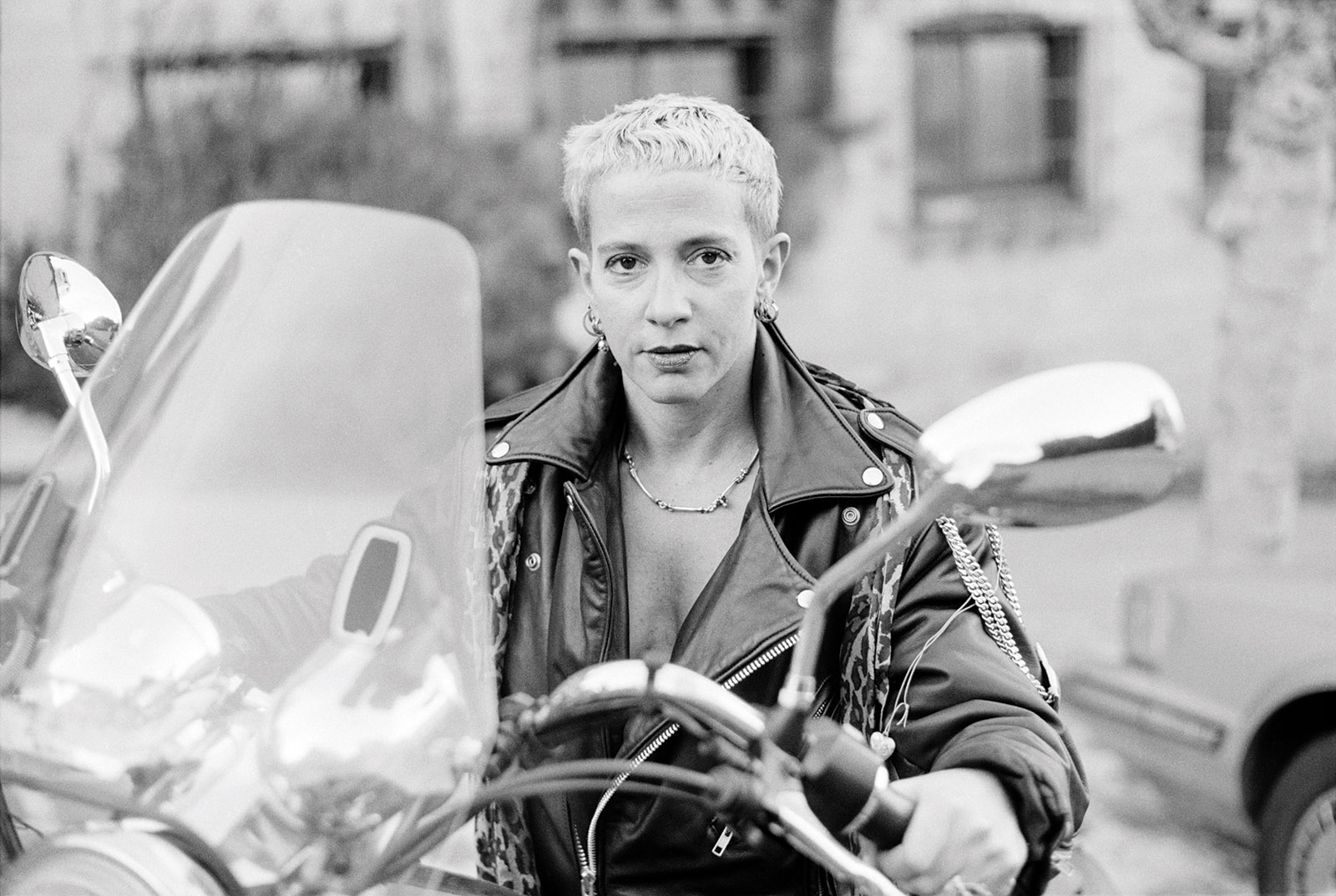
-
November 10, 2020 Harmony Holiday An Artist’s Guide to Herbs: Black Seed (2018) An Artist’s Guide to Herbs: Wild Lettuce (2020)
Download 1 / Link 1 Download 2 / Link 2 About: Continuing from last week’s reading of excerpts from Harmony Holiday’s Wild Lettuce… “With Nigella Sativa, we arrive at midnight together, to the intimacy that can come from mass hysteria.” *SENDING FUNDS* This week, white queers in the group, we are sending $$$ to Tyler Holmes’ dental care fund. If you are unable to make your reparations payment this week, contact QTRG privately and we’ll make it together (your info will remain anonymous). GoFundMe Their music on Bandcamp Image description: A photo of a blooming Nigella sativa flower against a black background, with studio lighting shining from the upper right corner, a lens flare circling the flower. The petals are light purple and there’s a crown of light green threadlike leaves that look like fennel fronds growing upward around the petals. The middle, seed-bearing part of the flower is also lime green, with erect, curvy, tentacle-like sprouts.
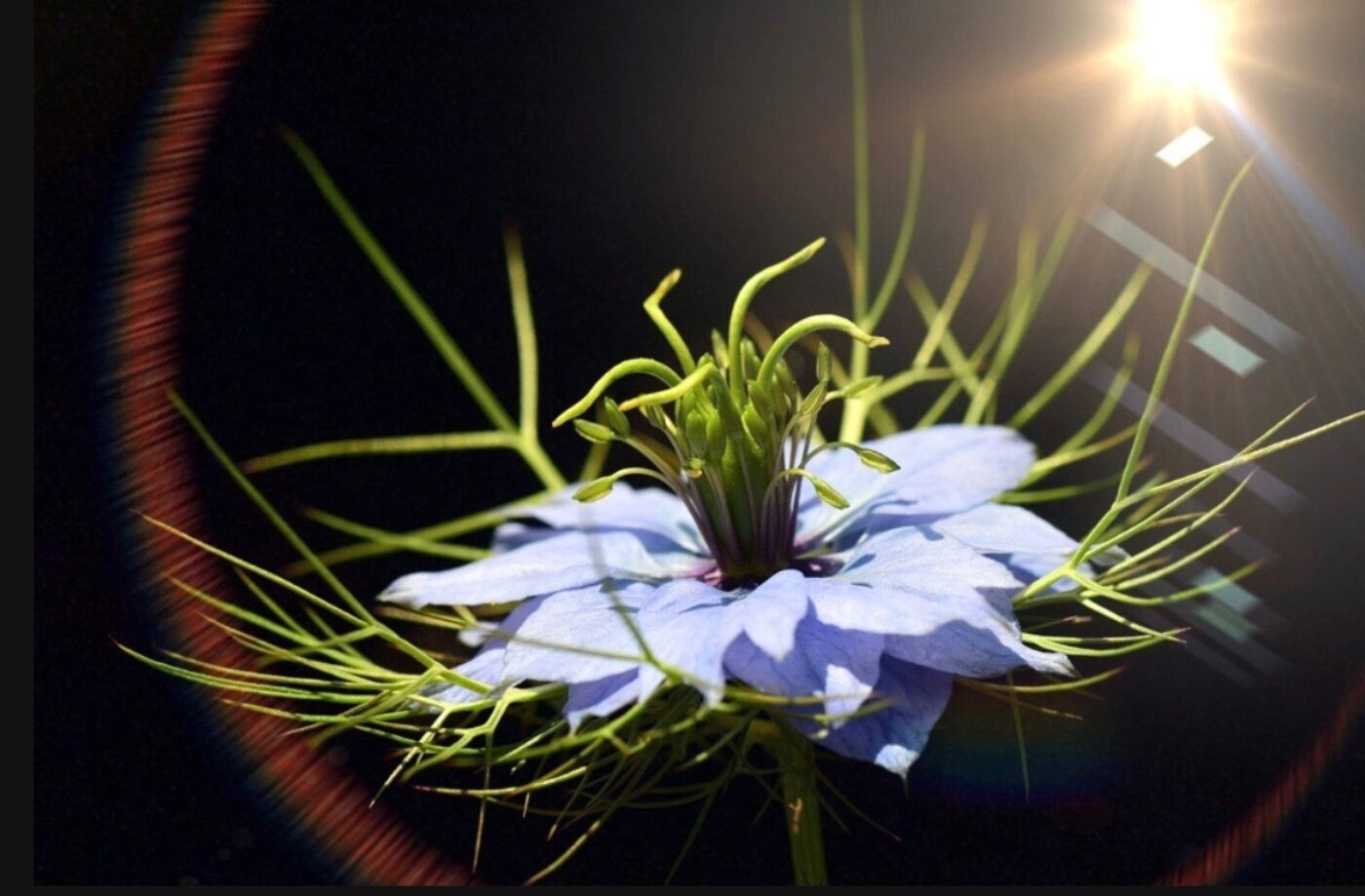
-
November 3, 2020 Election Night / A Day Without Art
About: This Tuesday, on election night, we’ll be getting together to read aloud, listen to sounds, drink and spend time together for a few hours or however long we want. Bring something to share, to read, or to put in the chat for someone else to read. Or just come to listen and talk. The sound or text can be your own, or someone else’s. I’ll be reading some meditations from Clay AD’s ‘Metabolize, If Able’. There’s also a play in the works, set in a diner and starring little its. We’ll be doing intros around 7pm ET but feel free to drop in whenever throughout the evening. Inspired by the call for mourning and action by Visual AIDS’ Day Without Art, we’ll have a night with(out) art. *SENDING FUNDS* This week, white queers in the group, we are sending $$$ to Oreoluwa A to secure affirming space, gender-affirming care, their documenting and archival work, and their overall existence. If you are unable to make your reparations payment this week, contact QTRG privately and we’ll make it together (your info will remain anonymous). Venmo: @OREAA CashApp: $OLUWAOO PayPal GoFundMe Image description: A b/w photocopied page from the zine Infected Faggot Perspectives, Issue 12 (1992). There’s a white vertical rectangle with torn edges set on a black background with the following review typewritten: “A DAY WITHOUT ART / (Robert Woods) / Dec. 1st, A Tribute to Artists Who had Performed at Highways and Died of AIDS. / It was a moving presentation with an outstanding film by David Wojnarowicz (Activist/Artist). The heart to soul unveiling by (songwriter) Phranc, to her longtime friend Craig Lee was very honest and unpretentious. My only disappointment was that (Performance Artist, Founder of Fuck) Cliff Diller was advertised for the Salute and never Acknowledged! (What happened boys?) A Good Show Overall.” More about Day Without Art from Visual AIDS: In 1989, in response to the worsening AIDS crisis and coinciding with the World Health Organization’s second annual World AIDS Day on December 1, Visual AIDS organized the first Day Without Art. A committee of art workers (curators, writers, and art professionals) sent out a call for “mourning and action in response to the AIDS crisis” that would celebrate the lives and achievements of lost colleagues and friends; encourage caring for all people with AIDS; educating diverse publics about HIV infection; and finding a cure.
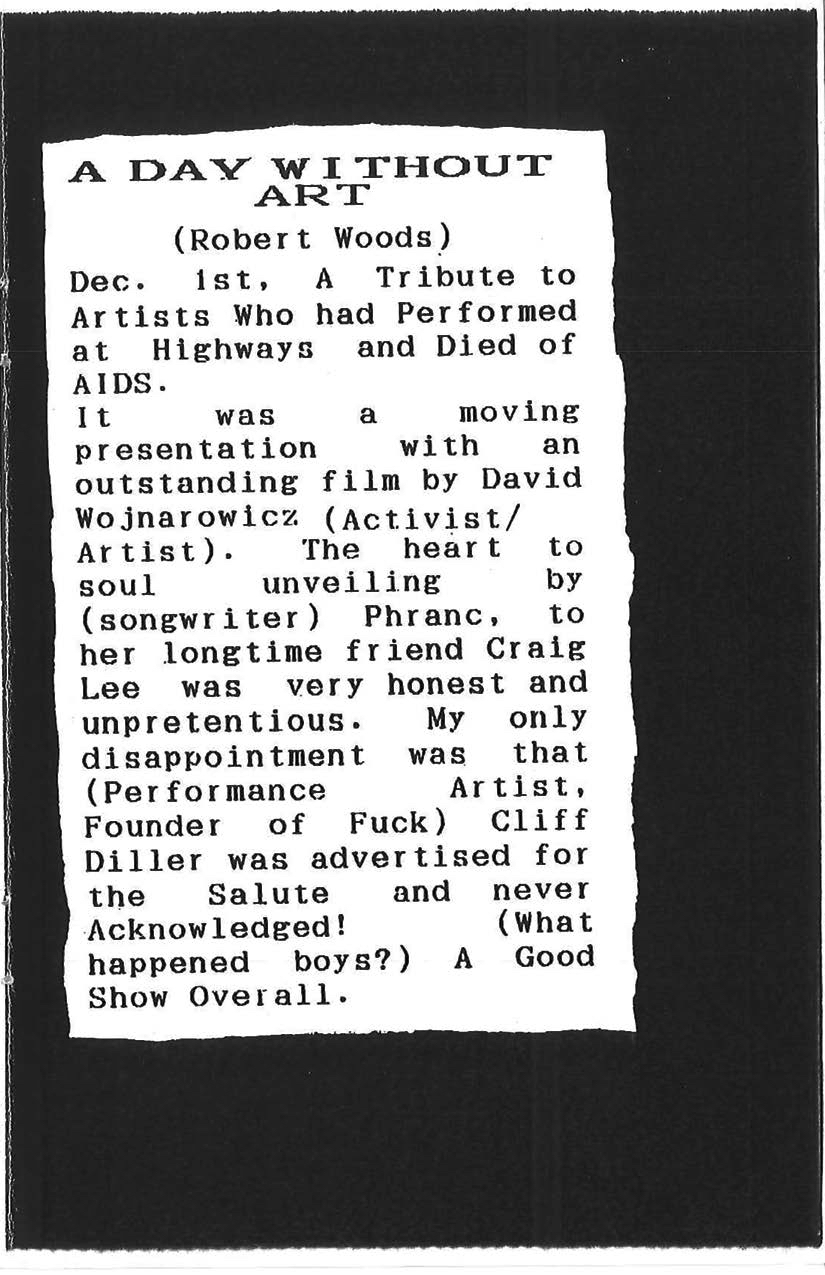
-
October 27, 2020 Kalaniopua Young Home-Free and Nothing (…)-Less: A Queer Cosmology of Aloha ‘Āina (2019)
Download About: Kalaniopua Young is a radical māhūwahine scholar-activist of color, a trans woman survivor of cis-sexist heteropatriarchy and racial gender violence, and a former community organizer with Puʻuhonua o Waiʻanae and United Territories of Pacific Islanders Alliance. She is a recent doctoral graduate of the Department of Anthropology at the University of Washington. Her dissertation, “Constellations of Rebellion: Home, Makeshift Economies and Queer Indigeneity,” is a critical ethnography that centers emergent connections between the dissonance of home, Queer Indigeneity, and tent cities across and within settler states. Giving focus to ‘Ōiwi ethnographic epistemology and ontology, the work conjures innovative practices, principles, and priorities that reconfigure questions about people, time, space, place, social belonging, community health, environmental justice, and spiritual well-being. *SENDING FUNDS* This week, white queers in the group, we are sending $$$ to The Queer Black Therapy Fund in Germany. If you are unable to make your reparations payment this week, contact QTRG privately and we’ll make it together (your info will remain anonymous). GoFundMe Image description: A video still of Kalaniopua Young as part of an interview series Kamamaluula News did at Mauna Kea in September 2019 asking: ‘How does being a Kiai impact your daily life?’ and ‘Why are you a Mauna Kea Kiai?’ (a guardian of the Mauna Kea mountain). Young is wearing a blue and white pinstripe shirt with roses on it, a grey scarf wrapped around her head, her long hair coming out the side, and a teal netback cap worn backwards/off to the side. She is sitting in a camping chair looking into the camera, her arm propped up on the back of the chair. Behind her there are a couple of cars and tents, a flag, a few people walking, a mountain, and a blue sky.
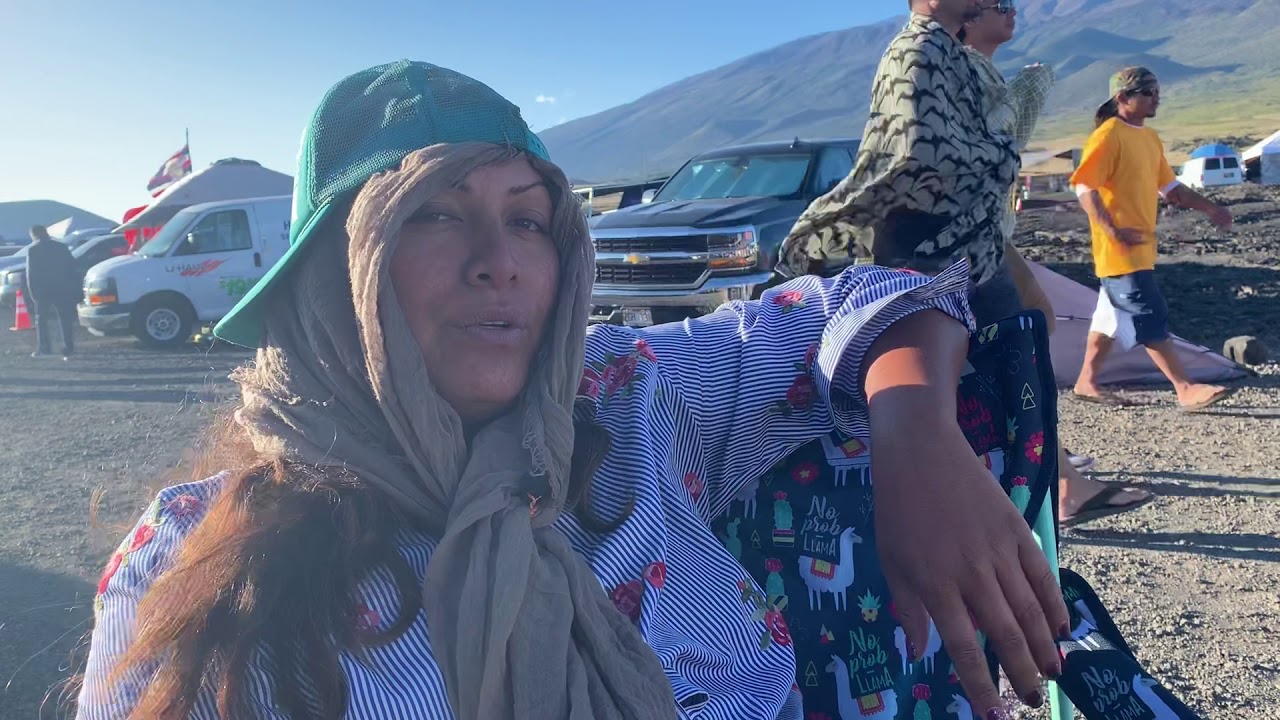
-
October 20, 2020 ONLINE FIELD TRIP Queer/Feminist/Indigenous Approaches to Climate Crisis: From the Caribbean to the Pacific A conversation with Noelani Goodyear-Ka‘ōpua & Angelique V. Nixon, moderated by Dean Itsuji Saranillio @ NYU Center for the Study of Gender & Sexuality
6-7pm ET Register for the event here Recording on YouTube with closed captions About: This panel places in conversation scholar/activists situated in the Caribbean and the Pacific to highlight the interrconnections between these two regions through a queer, feminist, and Indigenous studies lens. From the ongoing fight against the settler state in Hawai’i, to the struggle against an extractivist, tourism-centric model of development in the Caribbean, the panel foregrounds how queer/feminist/Indigenous scholars, activists, and artists make connections between the politics of food, land, water, and sovereignty, and offer a vision for a more livable, mutually dependent future. *SENDING FUNDS* This week, white queers in the group, we are sending $$$ to Stephanie Martinez Griffin again. In their words: “Hi fam, I’m Stephanie, a Black Indigenous queer non-binary chronically-ill bb from New Mexico, currently living on Lenapehoking lands (so-called Brooklyn). I’m a certified reiki practitioner (level 2), organizer, artist and herbalist in-training… I’m raising funds to create the holistic space of my dreams. This will include a farmhouse for living, land for growing organic food & medicinal plants + seed keeping, and a welcoming, safe studio space to treat clients in… Why though? Reparations are past due; Reclaiming my people’s traditions of land stewardship; Creating generational wealth; Achieving autonomy; Sanctuary; Purpose; Joy!” If you are unable to make your reparations payment this week, contact QTRG privately and we’ll make it together (your info will remain anonymous). GoFundMe Venmo: stephaniegriffin Image description: A photo of demonstrators/protectors gathering to block the road at the base of Hawaiʻi’s tallest mountain, Maunakea, on July 15, 2019, to stop the construction of the Thirty Meter Telescope on sacred land. There are several people standing in the road holding a banner that reads “Road closed due to desecration.” More people behind are holding signs that state “We are here to protect Maunakea” with a drawing of the Maunakea volcano on it. The Hawaiʻian flag is flown upside-down symbolizing a nation in distress. There are mountains in the background and the lighting looks like dusk or dawn. Photo from Puʻuhonua o Puʻuhuluhulu.

-
October 13, 2020 Hentyle Yapp To Punk, Yield, and Flail: Julie Tolentino’s Etiolations and the Strong Performative Impulse (2018)
Download *SENDING FUNDS* This week, white queers in the group, we are sending $$$ to Activation Residency to help meet their $4,000 Farming Futurity goal by this Sunday evening (Oct 11). So send your funds in advance of Tuesday! If you are unable to make your reparations payment this week, contact QTRG privately and we’ll make it together (your info will remain anonymous). Invest + receive a tax break link PayPal Venmo: Activation CashApp: $ActivationResidency Image description: A b/w flyer for Clit Club, a queer and pro-sex lesbian floating nightclub in NYC founded by Tolentino and Jocelyn Taylor, which was operational from 1990–2002. A dirty white packaging in the shape of a soap bar has the following text, typeset like a label on the package: DJ TONIC. 100% PURE ENERGY… SHE FLOATS! / CLIT CLUB / Every Friday / 432 West 14th St / for more info call: 529-3300 / DANCING, SWEATING / GETTING DIRTY… / THE FINER THINGS IN LIFE / Just Your Size.
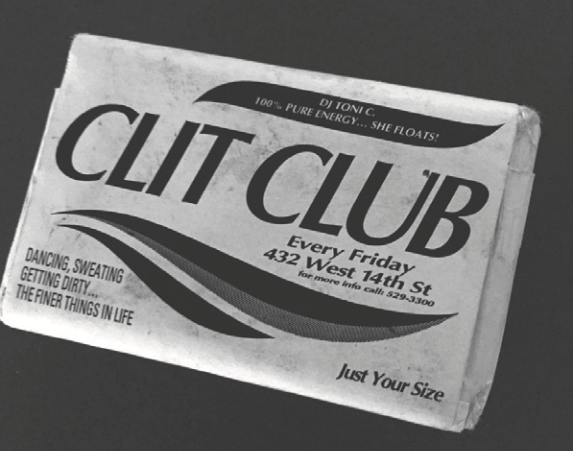
-
October 6, 2020 JJJJJerome Ellis, Saidiya Hartman, and Erica Hunt Discussion of event Looking for Language in the Ruins + Saidiya Hartman Interview: on insurgent histories and the abolitionist imaginary (2020)
Event recording (1hr 48min) Download interview *SENDING FUNDS* This week, white queers in the group, we are sending $$$ to Egypt Dior’s Healing & Survival Fund. If you are unable to make your reparations payment this week, contact QTRG privately and we’ll make it together (your info will remain anonymous). GoFundMe PayPal Venmo: @egypt-dior-2 CashApp: $egyptdior Image description: A still from JJJJJerome Ellis’ video screened during the event Looking for Language in the Ruins. The image shows a pine tree forest with a saxophone affixed to a tree in the foreground. The camera is angled up at the saxophone and in the video the saxophone is swaying freely in the air, its strap hooked to one of the tree’s branches. The sky is blue and patches of sun filter through the trees.
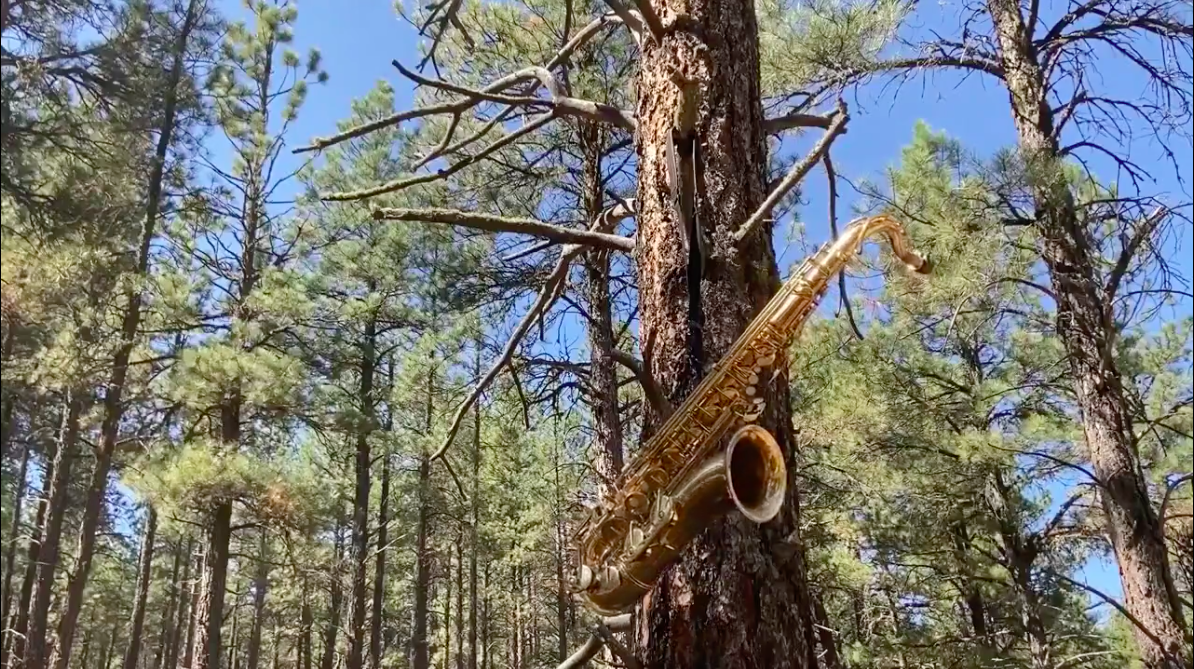
-
September 29, 2020 ONLINE FIELD TRIP JJJJJerome Ellis, Saidiya Hartman, and Erica Hunt Looking for Language in the Ruins Performance, Readings, Conversation, and Q&A @ The Center for African American Poetry and Poetics
6pm ET Register for the event here About: Composer, poet, and performer JJJJJerome Ellis’ work explores blackness, dysfluency, and music as “forces structured by, and that rearrange, time.” Conventional notions of time and time-limits, says Ellis, “assume that people have relatively equal access to time through their speech.” Saidiya Hartman’s innovative cultural histories investigate the precarity of black life as she tells the stories of the “unknown, the dispossessed, the disposable.” Using a mode she invented called, “critical fabulation,” Hartman creates the space for a new kind of knowing. Erica Hunt’s poetry and prose make starkly present “the polarization of the world,” and how the quotidian language, the language of the state and the media shrink our imaginations. What can save us? Hunt’s case, writing on the edge of language, or from the corner of the eye, provides an urgent other knowing from the cracks in America’s broken rhetoric. JJJJJerome Ellis is a stuttering, Afro-Caribbean composer, performer, and writer. His current practice explores blackness, music, and disabled speech as forces of refusal and healing. Ellis’ work has been heard at the Poetry Project at St. Mark’s Church, Sotheby’s, Soho Red, and on NPR’s This American Life. He’s a 2019 MacDowell Colony Fellow, a writer-in-residence at Lincoln Center Theater, and a 2015 Fulbright Fellow. Jerome collaborates with James Harrison Monaco as James & Jerome. Their recent work explores themes of border crossing and translation through music-driven narratives. They have received commissions from the Metropolitan Museum of Art and Ars Nova. Saidiya Hartman is the author of Scenes of Subjection: Terror, Slavery, and Self-Making in Nineteenth-Century America (Oxford, 1997); Lose Your Mother: A Journey Along the Atlantic Slave Route (Farrar, Straus & Giroux, 2007) and Wayward Lives, Beautiful Experiments (Norton, 2019), which received the National Book Critics Circle Award for Criticism, the Mary Nickliss Prize for U.S. Women’s and Gender History from the Organization of American Historians, and the Judy Grahn Prize for Lesbian Nonfiction. She is currently at work on a new book project, N Folio: An Essay on Narrative and the Archive. She was awarded a MacArthur Fellowship in 2019, and has been a Guggenheim Fellow, a Cullman Fellow at the New York Public Library, a Fulbright Scholar in Ghana, a Whitney Oates Fellow at Princeton University, and a Critical Inquiry Visiting Professor at the University of Chicago. She received her B.A. from Wesleyan University and her Ph.D. from Yale. She is Professor of English and Comparative Literature and Gender Studies at Columbia University. Erica Hunt is a poet, essayist, and author of six collections of poetry, the latest being Veronica: A Suite in X Parts from selva oscura press. Jump the Clock: New and Selected Poems is forthcoming from Nightboat Books in 2020. She works at the forefront of experimental poetry and poetics, critical race theory, and feminist aesthetics. Other publications include: Arcade, with artist Alison Saar, Piece Logic, and Local History. She is co-editor with Dawn Lundy Martin of Letters to the Future: Black Women/Radical Writing (Kore Press, 2018). Her essays include the widely-circulated and influential text, “Notes for an Oppositional Poetics” (The Politics of Poetic Form, ed. Charles Bernstein) and “Parabolay” (boundary 2). Hunt has also worked as a housing organizer, radio producer, and program officer for a social justice campaign. For many years, she was Executive Director of The Twenty-First Century Foundation which supports organizations addressing root causes of social injustice impacting the Black community. She is currently the Bonderman Visiting Professor in Literary Arts at Brown University. The Center for African American Poetry and Poetics’ (CAAPP) week-long Black Study Intensive, “Collective Protest & Rebellion,” features poet/essayist/novelist Dionne Brand, filmmaker Charles Burnett, filmmaker Julie Dash, poet/performer/composer JJJJJerome Ellis, poet Aracelis Girmay, scholar Emily Greenwood, writer/cultural historian Saidiya Hartman, poet/scholar Erica Hunt, interdisciplinary theater artist Daniel Alexander Jones, photographer Zun Lee, poet/scholar Harryette Mullen, and poet Lyrae Van Clief-Stefanon as a way to think in creativity toward collective agency and social change. With urgency, we look toward the 2020/2021 academic year as an opportunity to, in Fred Moten’s sense of the word, “study” together, what he sometimes calls talking and walking around with other people, working, dancing, suffering, some irreducible convergence of all three, held under the name of speculative practice. This week we come together to engage in black study in community during this time of upheaval and repair. It is here where we seek innovative discovery in the act of creating as productive of new knowledges that help change the world. We hope you’ll join us for the entire week! *SENDING FUNDS* This week, white queers in the group, we are sending $$$ to B. Anele’s Blue Rose Project, a radical-formational-contemporary art gallery in Houston, TX. If you are unable to make your reparations payment this week, contact QTRG privately and we’ll make it together (your info will remain anonymous). GoFundMe Image description: A horizontal rectangular flyer for the event with the following text placed around the edges: The Center for African American Poetry and Poetics presents; Collective Protest & Rebellion; A Black Study Intensive; and 09.29.20. The background is dark brown with maroon X shape patterns. Portraits of the three participants in circular frames are in the lower left quadrant of the flyer. Their names in white to dark orange gradient are placed diagonally across the flyer: Erica Hunt, JJJJJerome Ellis, Saidiya Hartman.
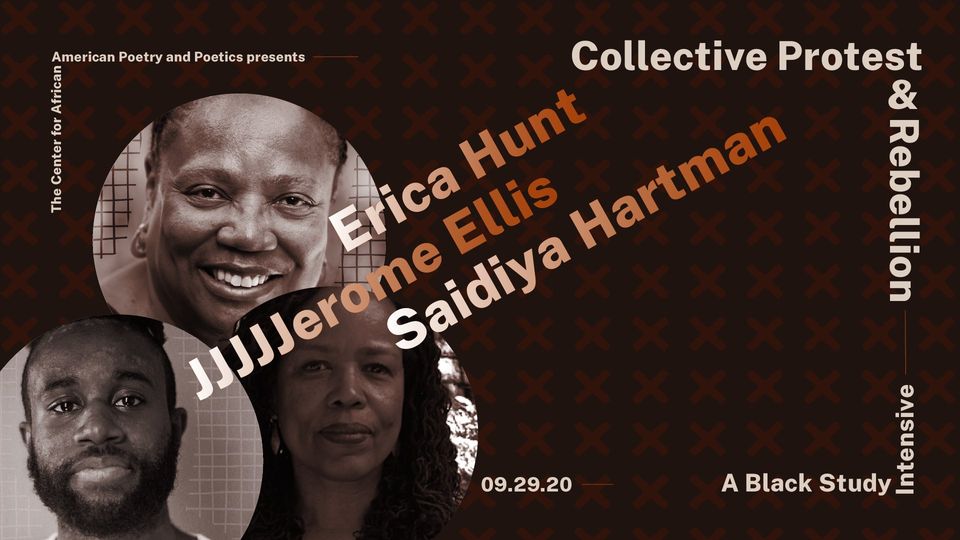
-
September 22, 2020 bell hooks Theory as Liberatory Practice (1991)
Download *SENDING FUNDS* This week, white queers in the group, we are sending $$$ to Kaliq Alexander’s Top Surgery Fundraiser. If you are unable to make your reparations payment this week, contact QTRG privately and we’ll make it together (your info will remain anonymous). GoFundMe Image description: A b/w photograph of bell hooks speaking at “Cross Talk: A Multicultural Feminist Symposium” held at the New Museum in 1993. bell hooks is seated, wearing glasses, looking off to the side while she speaks into the mic, gesturing with her hands. There’s a paper with her name on it in front of the mic and a pitcher and glass of water next to that. This panel was moderated by Jacqui Alexander and included panelists Kathleen Chiu, Lisa Jones, Coco Fusco, bell hooks, Carmelita Tropicana, and Jaen Zane.
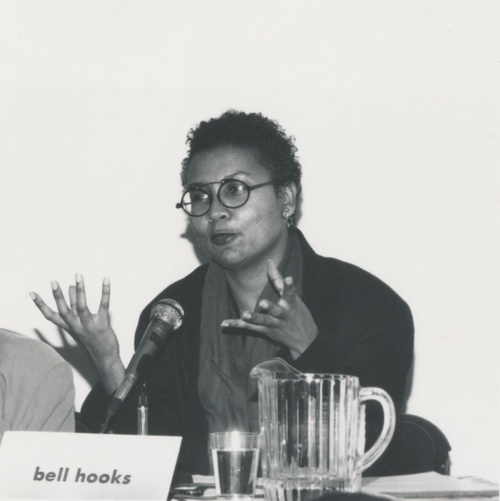
-
September 15, 2020 Douglas Crimp Mourning and Militancy (1989)
Download Note! We are now meeting on Tuesday evenings at 7pm ET! *SENDING FUNDS* This week, white queers in the group, we are sending $$$ to Alexsis Simmons’ Safe Housing Fund. If you are unable to make your reparations payment this week, contact QTRG privately and we’ll make it together (your info will remain anonymous). GoFundMe CashApp: $AlexsisSimmons Venmo: Alexsis-Simmons PayPal: lexiesimmons2@gmail.com Image description: An aerial color photograph of the NAMES Project AIDS Memorial Quilt. About fifteen grids of quilts are visible and there are people walking along the rows between each grid. About the project from Wikipedia: “The NAMES Project officially started in 1987 in San Francisco by Cleve Jones, Mike Smith, and volunteers Joseph Durant, Jack Caster, Gert McMullin, Ron Cordova, Larkin Mayo, Steve Kirchner, and Gary Yuschalk. At that time many people who died of AIDS-related causes did not receive funerals, due to both the social stigma of AIDS felt by surviving family members and the outright refusal by many funeral homes and cemeteries to handle the deceased’s remains. Lacking a memorial service or grave site, The Quilt was often the only opportunity survivors had to remember and celebrate their loved ones’ lives. The first showing of The Quilt was 1987 on the National Mall in Washington, DC.”
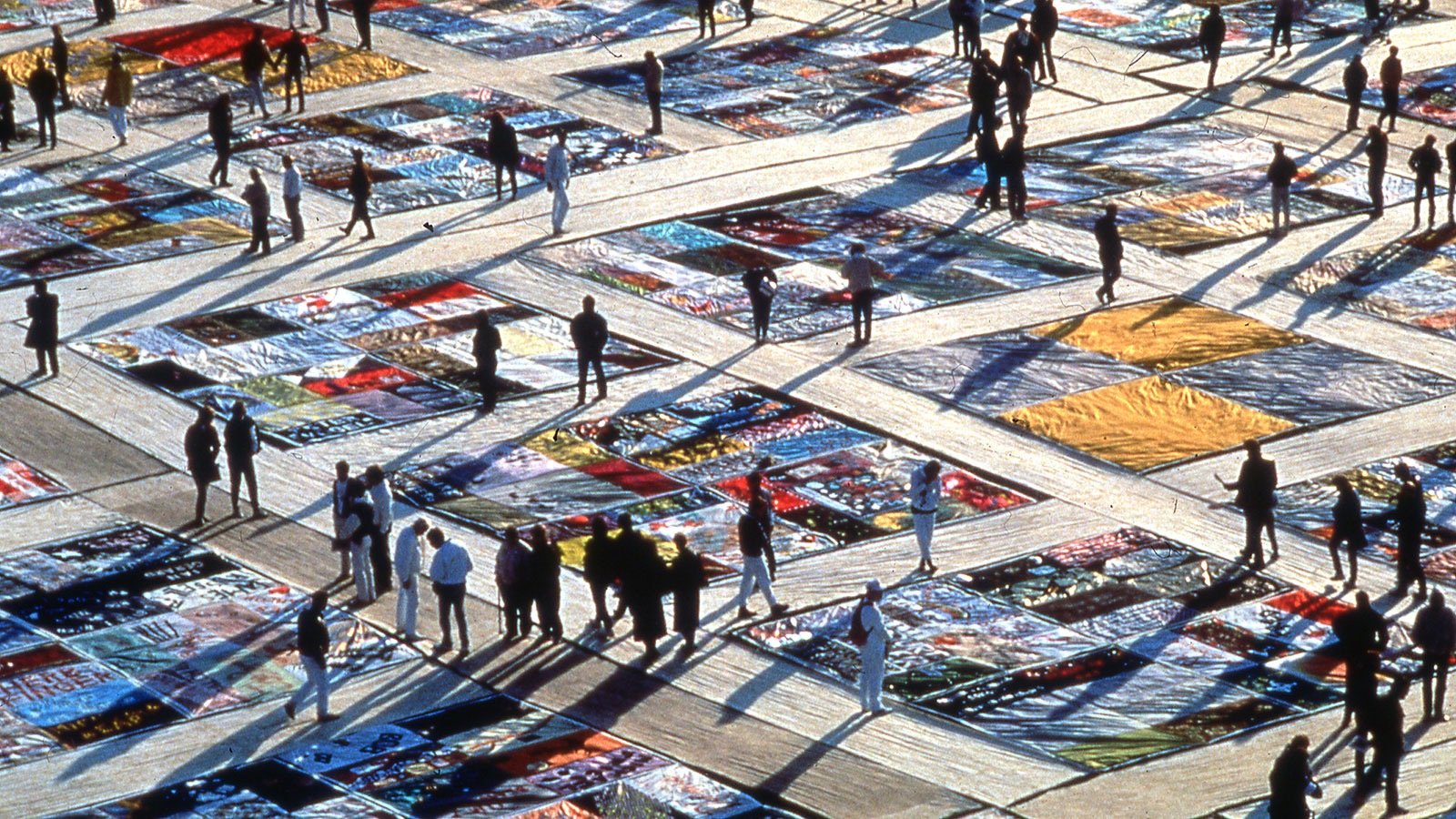
-
September 9, 2020 Park McArthur & Constantina Zavitsanos Other forms of conviviality: The best and least of which is our daily care and the host of which is our collaborative work (2013)
Download About: In this collaboratively written essay, artists Park McArthur and Constantina Zavitsanos take a queer materialist feminist approach to the entanglement of dependency and reproductive labor, disability, intimacy, and the impossibility of exchanging incommensurables. The text merges the authors’ experiences receiving and providing one another care with their artistic practices, and includes instructive performance scores for past, rather than future, events. *SENDING FUNDS* This week, white queers in the group, we are sending $$$ to Saije’s Transition Fund. Saije is a beacon in the Black trans community of the Hudson Valley, NY. If you are unable to make your reparations payment this week, contact QTRG privately and we’ll make it together (your info will remain anonymous). GoFundMe Venmo: @transjustice CashApp: $Jaindilla Image description: A still from Park McArthur’s video It’s Sorta Like a Big Hug (2012). One person lies across the video frame on a bed, smiling, with their hands held together over their chest. Another person sits at the edge of the frame with their legs arched across the legs of the person lying down, leaning against a white wall. There’s several patterns in the image, a black-and-white checkered fabric on the bed, snowflake patterned pants worn by the smiling person with their hands crossed, and a striped shirt worn by other person. From the What Can a Body Do? exhibition website (curated by Amanda Cachia): In It’s Sorta Like a Big Hug (2012) McArthur had a friend record one of her experiences of being cared for by a collective of friends in her New York City neighborhood. The collective included a group of ten people that McArthur linked together in order to orchestrate and facilitate her bedtime routine each night of the week. McArthur says that processes of unraveling and restabilizing occur as each person in the collective makes themselves vulnerable to one another in the “eventness” of working to deliver each body safely from platform to platform, surface to surface.
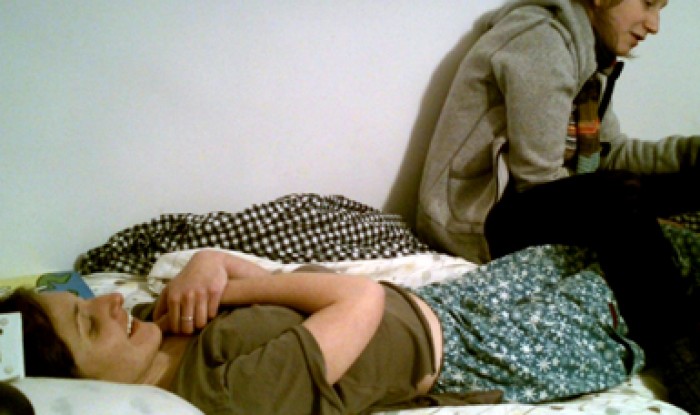
-
September 2, 2020 Pavithra Prasad In a Minor Key: Queer Kinship in Times of Grief (2020) + Intimacy in Isolation (2020) Photographs by Texas Isaiah Text by Akwaeke Emezi
Download 1 Download 2 *SENDING FUNDS* This week, white queers in the group, we are sending $$$ to Vita Kurland’s grad school fund for a dual degree master’s program at NYU and Long Island University in Costume Studies and Library and Information Sciences. In Vita’s words: “Fashion as a form of protest is a cornerstone of my work. My artistic and curatorial practice collects, indexes, and preserves garments and adornments that serve as records of Black Histories. I aim to create frameworks where art, design, and various forms of cultural production are understood as tools of resistance and empowerment.” If you are unable to make your reparations payment this week, contact QTRG privately and we’ll make it together (your info will remain anonymous). GoFundMe Image description: A photograph of Pavithra Prasad in a white shiny long-sleeve shirt, holding a glass bowl up to her mouth with two hands (a few rings on her fingers). The light source is a golden spotlight from above, which makes it look like she could be on a stage. The background is black, except for a golden moon directly behind her.
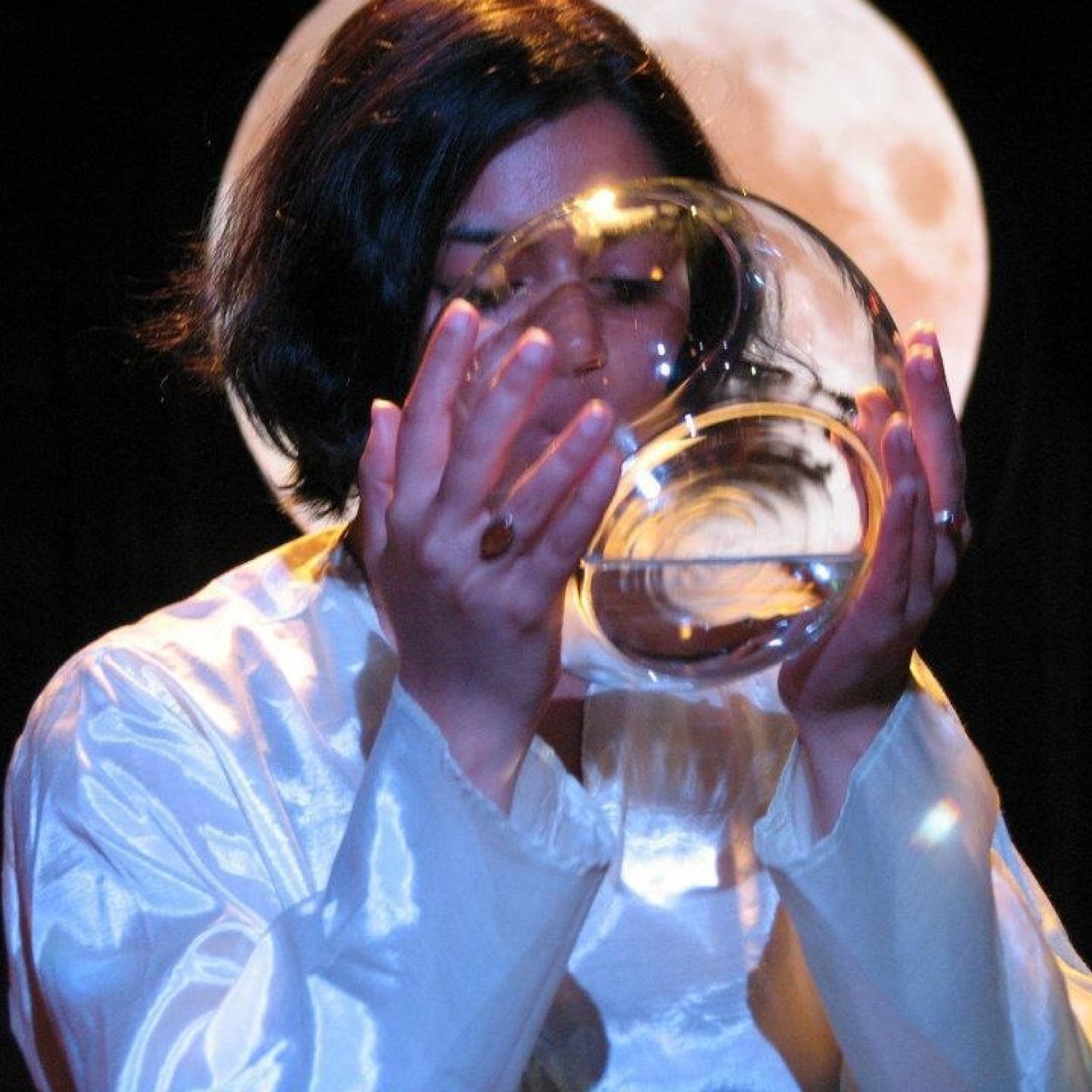
-
August 26, 2020 Dionne Brand An ‘Ars Poetica’ from the Blue Clerk (2017) On narrative, reckoning and the calculus of living and dying (2020)
Download 1 Download 2 About: Ars Poetica (2017) is taken in part from the longer work, The Blue Clerk: An Ars Poetica (2018). The work is a conversation, a discursive poetic, between the Author and the Clerk about that which is withheld and that which is written. *SENDING FUNDS* This week, white queers in the group, we are sending $$$ to Muse Dodd aka MUSE(O)FIRE @museofire, who is a New Media Artist, Independent Curator and DJ/Producer. They are looking for Patreon subscribers (white people at $25/mo) and are raising funds to help with their car payment and insurance [in their words: “a new (used) Subaru (the d*ke Gods are smiling)”!]. If you are unable to make your reparations payment this week, contact QTRG privately and we’ll make it together (your info will remain anonymous). Venmo/CashApp: museofire Patreon Image description: A photo of Dionne Brand seated on a boat, inside, with wood paneling and a window where the water is visible behind her. She is looking off to the side and there’s some sun coming in through the opening in the roof.
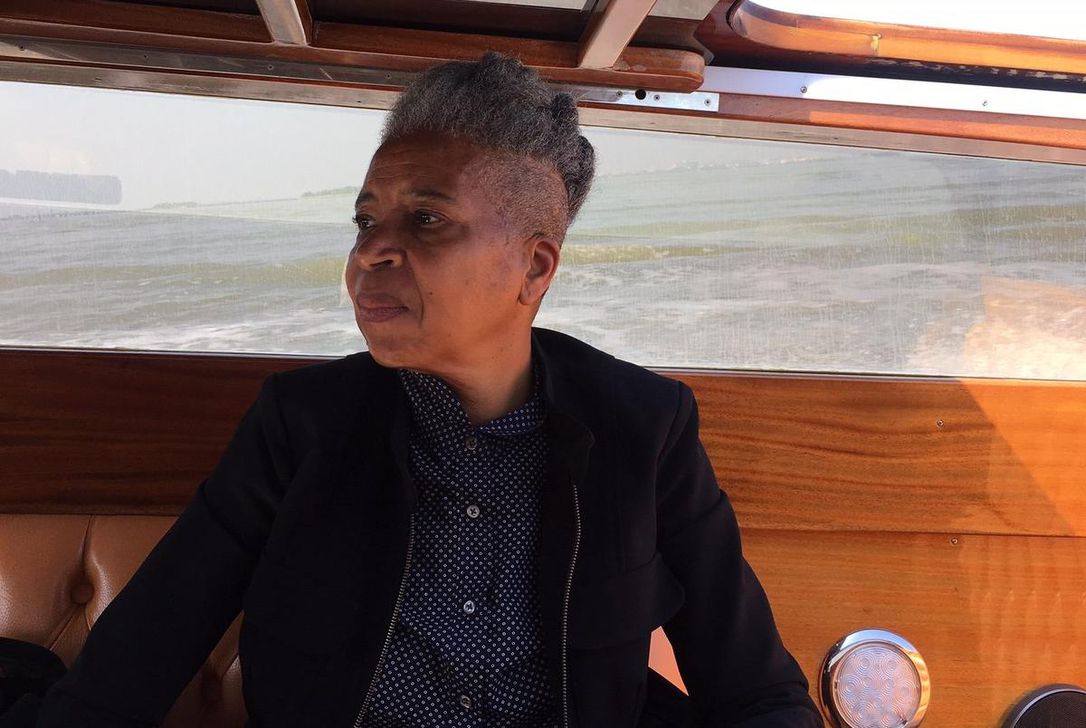
-
August 19, 2020 Melissa K. Nelson Getting Dirty: The Eco-Eroticism of Women in Indigenous Oral Literatures (2017)
Download From Critically Sovereign: Indigenous Gender, Sexuality, and Feminist Studies (Joanne Barker, editor) (2017) *SENDING FUNDS* This week, white queers in the group, we are sending $$$ to Stephanie Martinez Griffin. In their words: “Hi fam, I’m Stephanie, a Black Indigenous queer non-binary chronically-ill bb from New Mexico, currently living on Lenapehoking lands (so-called Brooklyn). I’m a certified reiki practitioner (level 2), organizer, artist and herbalist in-training… I’m raising funds to create the holistic space of my dreams. This will include a farmhouse for living, land for growing organic food & medicinal plants + seed keeping, and a welcoming, safe studio space to treat clients in… Why though? Reparations are past due; Reclaiming my people’s traditions of land stewardship; Creating generational wealth; Achieving autonomy; Sanctuary; Purpose; Joy!” If you are unable to make your reparations payment this week, contact QTRG privately and we’ll make it together (your info will remain anonymous). GoFundMe Venmo: stephaniegriffin Image description: A photo of wet dark brown dirt, kind of shiny from the reflection of sun in the water soaking the dirt. There are various indentations in the surface of the mud: shallow holes, cracks, little waterways. There’s a branch and some scattered leaves in the bottom right corner of the image.
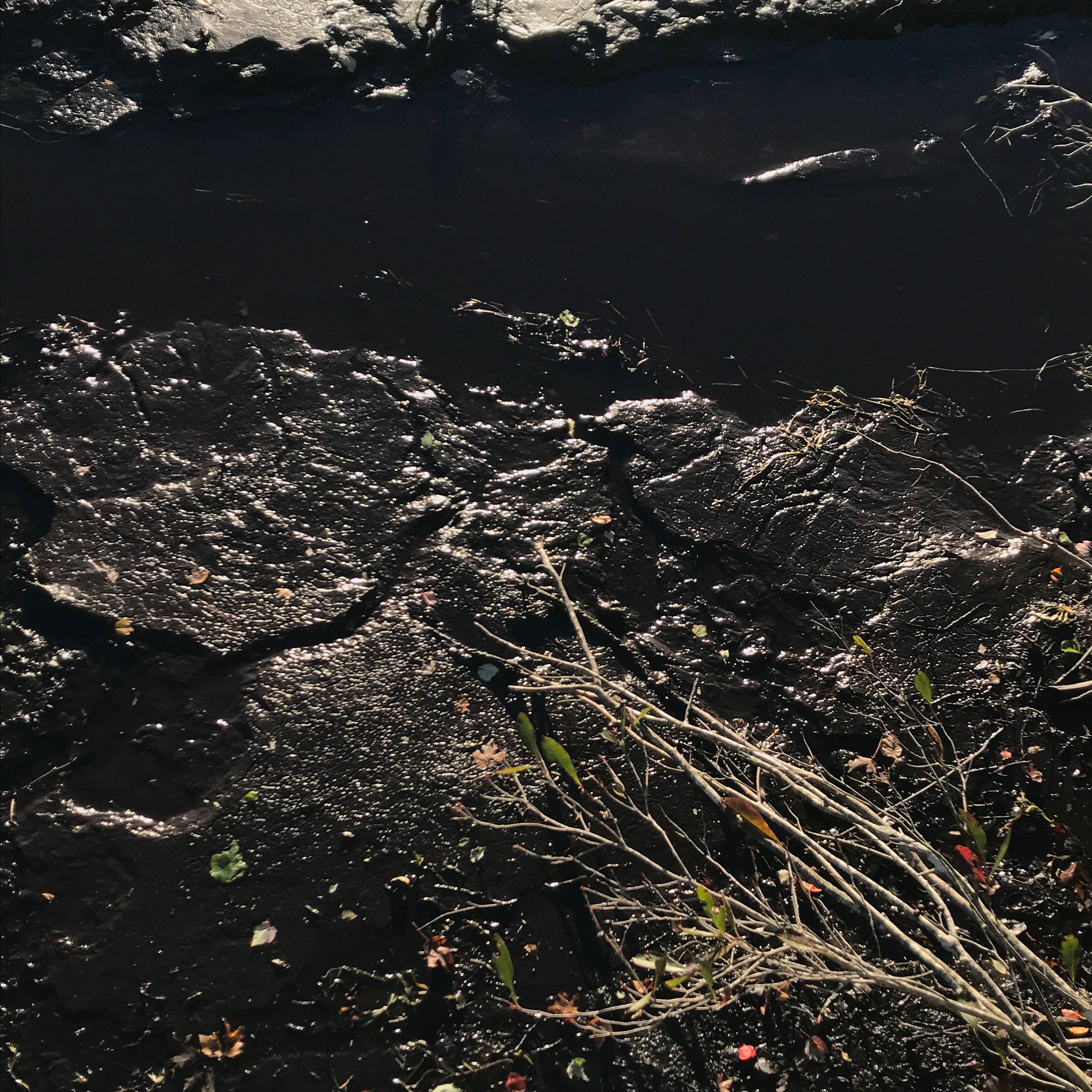
-
August 12, 2020 Mel Baggs In My Language (2007) Being an Unperson (2006) Up in the Clouds and Down in the Valley: My Richness and Yours (2010)
Watch In My Language (8:36) Watch Being an Unperson (8:47) Download Up in the Clouds and Down in the Valley: My Richness and Yours About (all in Mel Baggs’ words): In My Language “The first part is in my ‘native language,’ and then the second part provides a translation, or at least an explanation. This is not a look-at-the-autie gawking freakshow as much as it is a statement about what gets considered thought, intelligence, personhood, language, and communication, and what does not.” Being an Unperson “The words here are from a presentation I gave to staff who work for people with developmental disabilities. It’s about the dehumanization inherent in the system they worked in, the results of which they were likely to encounter in the people they worked for. It’s drawn from my experiences and the experiences of other self-advocates I have known in the system. The experiences of dehumanization are universal enough that most of them apply far beyond the target audience.” Up in the Clouds and Down in the Valley: My Richness and Yours “Like counters, stairs, and drinking fountains, language was built mostly by non-autistic people, with the obvious results, and my biggest frustration is this: the most important things about the way I perceive and interact with the world around me can only be expressed in terms that describe them as the absence of something important. The absence of speech. The absence of language. The absence of thought. The absence of movement. The absence of comprehension. The absence of feeling. The absence of perception.” *SENDING FUNDS* This week, white queers in the group, we are sending $$$ to the Black Healers Fund organized by the NYC POC Healing Circle. The NYC POC Healing Circle has been convening and organizing since 2015. They are a circle of BIPOC (Black, Indigenous and/or People of Color) healing practitioners with a home-base in New York City, who provide healing offerings through direct services, ceremonies, events, trainings, and gatherings. In recognition of the mental, emotional, physical, and spiritual toll that liberatory struggle can take on Black communities always, and especially amidst the current international uprising against anti-Black police violence, the NYC POC Healing circle has launched the Black Healers Fund, which 1) Provides free services to Black clients from NYC POC Healing Circle trained practitioners and community affiliates. These services include reiki/energy healing, meditation, and mental health/peer emotional support. 2) Provides financial support to Black healing practitioners; mental health practitioners; peer supporters; energy workers; body workers; doulas; herbalists; and crisis response workers so they can be fully compensated for services they are providing for their communities at no cost. If you are unable to make your reparations payment this week, contact QTRG privately and we’ll make it together (your info will remain anonymous). Website GoFundMe Venmo: nycpochealingcircle Paypal: nycpochealingcircle@gmail.com Image description: A photograph of Mel Baggs and their cat. Baggs is in the center of the image, behind their cat, so only their shoulders and head are visible. Their hair covers their eyes and they are facing the same direction as their cat, off to the side. The grey and white cat looks in that direction and has yellowish eyes. The background is an interior space, with cream wall color and a window, with a white roll-down shade slightly lowered. It’s dark outside the window.
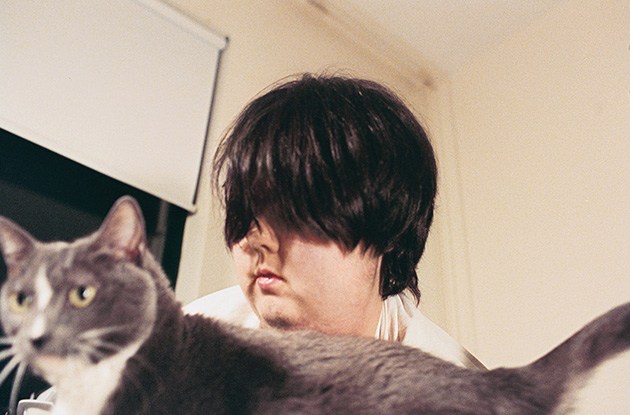
-
August 5, 2020 Fred Moten & Stefano Harney The Undercommons: Fugitive Planning & Black Study (2013) Chapter 7: The General Antagonism: An Interview with Stevphen Shukaitis
Download Note: This book is open access. The entire book can be downloaded above, but we are focusing on Chapter 7 (p. 103-159). Read what you can, but both the beginning (about study) and the end (about debt and reparations) are important if you can finish it! About: In this series of essays Fred Moten and Stefano Harney draw on the theory and practice of the Black radical tradition as it supports, inspires, and extends contemporary social and political thought and aesthetic critique. Today the general wealth of social life finds itself confronted by mutations in the mechanisms of control, from the proliferation of capitalist logistics through governance by credit and management of pedagogy. Working from and within the social poesis of life in the undercommons Moten and Harney develop and expand an array of concepts: study, debt, surround, planning, and the shipped. On the fugitive path of an historical and global Blackness, the essays in this volume unsettle and invite the reader to the self-organised ensembles of social life that are launched every day and every night amid the general antagonism of the undercommons. *SENDING FUNDS* This week, white queers in the group, we are sending $$$ to Playground Coffee Shop’s Take One, Leave One Free Library. The library takes example from other book exchanges and biblio-curatorial work such as the trading hub of The Free Black Women’s Library (which QTRG also encourages you to support via their Patreon). Playground has established their free library to extrapolate the curatorial process of their bookstore, Playground Annex, which only stocks Black, Brown, POC, Indigenous, and LGBTQI+ authors. Help them stock it with your tenderly loved books, as well as financial contributions! If you are unable to make your reparations payment this week, contact QTRG privately and we’ll make it together (your info will remain anonymous). Venmo: PlaygroundYouth Paypal: youth@playgroundcoffeeshop.com Any inquiries: youth@playgroundcoffeeshop.com Image description: The photo is The Undercommons book outside on the green grass (which has some clovers and little white flowers in it). The sun is patchy, but lights the cover. The cover image is ambiguous, but it’s a b&w photo and it looks like it could be a close-up image of leather upholstery with spills dripping down it. The title and the authors’ names are also on the cover, in a simple centered design, in white. In the bottom right corner of the image there’s the edge of a jean shirt collar, also on the grass.
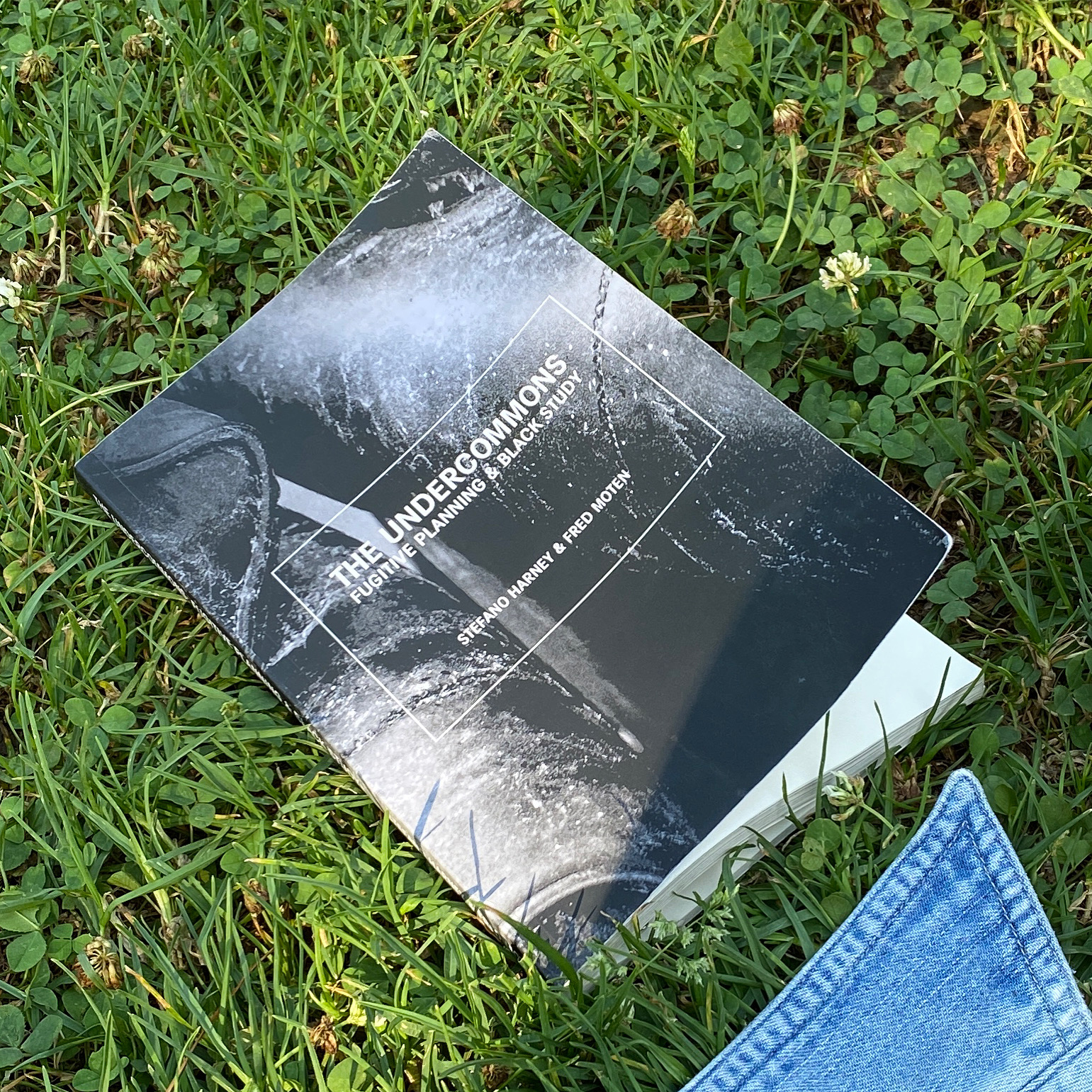
-
July 29, 2020 Samuel R. Delany Aye, and Gomorrah… (1966)
Download About: The narrative of this science fiction short story involves a world where astronauts, known as Spacers, are neutered before puberty. Aside from making them sterile, the neutering also prevents puberty from occurring and results in androgynous adults whose birth-sex is unclear to others. Spacers are fetishized by a subculture of “frelks”, those attracted by the Spacers’ unattainability and unarousability. The mischief-loving Spacers exploit this for amusement and money — and possibly out of loneliness and a desire to recapture their lost sexuality. *SENDING FUNDS* This week, white queers in the group, we are sending $$$ to Black Excellence Collective’s Black Trans Lives Matter Youth Fund. In 2015 Joshua Allen and CeCe McDonald came together to form the Black Excellence Collective, a grassroots organizing collective for and by Black trans/queer youth to organize for collective liberation using art, direct action & political education. Young people, particularly young Black trans/queer people have been some of the world’s most valuable contributors to movements for racial and gender justice across human history. Unfortunately, for far too long their work has gone under-resourced and overlooked. Let’s help them reach their 290K goal — it’s very close! If you are unable to make your reparations payment this week, contact QTRG privately and we’ll make it together (your info will remain anonymous). GoFundMe Instagram: @blackxcollective Image description: A photograph of Samuel Delany, taken in 2019 by Tom Kneller, with art direction from Spencer Singer. Delany is looking at the camera, with one arm holding on to a branch behind him and the other arm at his side. He’s wearing a purple shirt with Hawaiian plumerias on it, tucked into his pants, and a dark leather belt with a silver rectangular buckle. He’s wearing wide tan suspenders. The short sleeves of his shirt are rolled up, showing a tattoo (looks like it could be a serpent) on his upper arm. His white beard goes down to the collar of his shirt, which is half unbuttoned. There’s green foliage behind him.
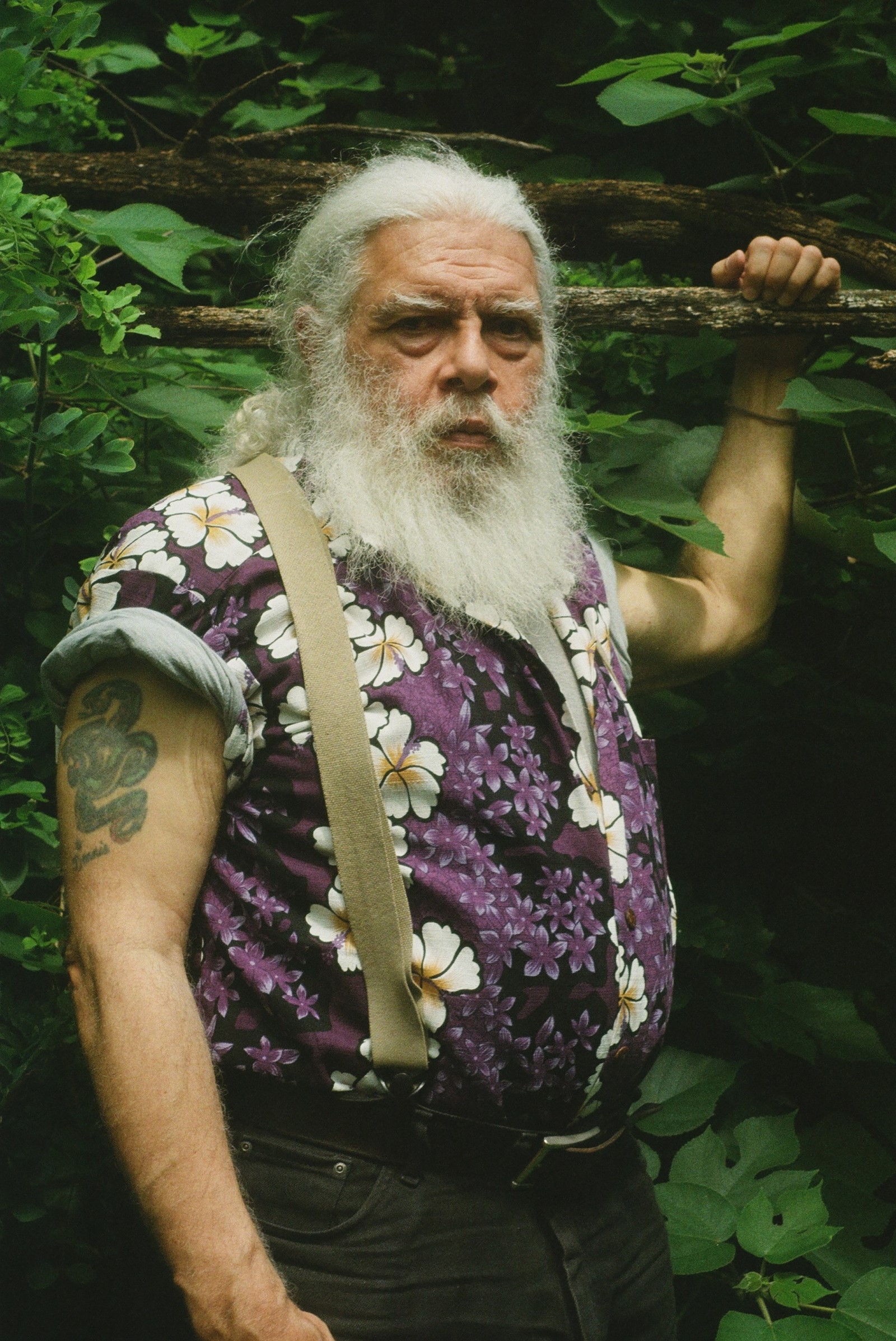
-
July 22, 2020 Juana María Rodríguez Queer Sociality and Other Sexual Fantasies (2011)
Download About: Through a consideration of the ephemeral archives of queer racialized feminine subjects, this essay considers how current debates in queer theory on the relationship between sociality and the sexual are transformed by the specifics of race, gender, location, and embodiment. In the process, it asks us to face unruly sexual fantasies of violence, abjection, and servitude that likewise trouble our psyche and sexual lives. *SENDING FUNDS* This week, white queers in the group, we are sending $$$ to Deep Waters Community Pool, which is a reparations fund based out of Brooklyn, NY, currently redistributing funds to Black community pool members living in the New York City area. The pool is currently closed for new submissions, but is always accepting reparations. If you are unable to make your reparations payment this week, contact QTRG privately and we’ll make it together (your info will remain anonymous). Instagram: @deepwaters.pool Venmo/CashApp: deepwaterspool PayPal Image description: A photo of Xandra Ibarra’s artwork “Mexi Strap-On Harnesses” (2015) — Hand Tooled Leather, Rubber, D-rings, 9.5” x 16”. Xandra Ibarra, who sometimes works under the alias of La Chica Boom, is an Oakland-based performance artist from the US/Mexico border of El Paso/Juarez. Ibarra works across performance, video, and sculpture to explore abjection and joy and the borders between proper and improper racial, gender, and queer subject. The image is of three custom-made leather strap-ons, reminiscent of gun holsters with decorative embellishment, with the words La Chica Boom, Cucarachica, and XXX engraved on the straps, respectively. The three strap-ons are nested in each other on the diagonal, against a white background, each made from a different color leather (light tan, orange, and light brown).
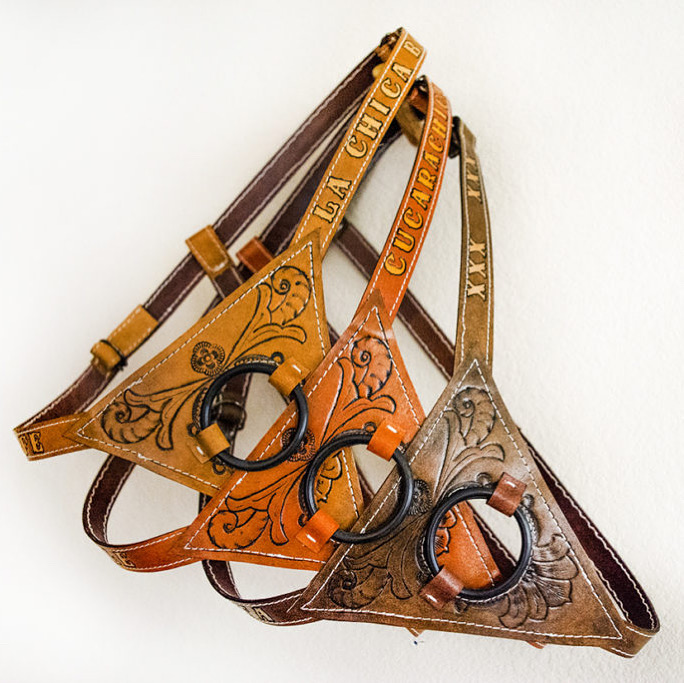
-
July 15, 2020 Therí Alyce Pickens Black Madness :: Mad Blackness (2019) Conversation 1: Making Black Madness
Download About: In Black Madness :: Mad Blackness Therí Alyce Pickens rethinks the relationship between Blackness and disability, unsettling the common theorization that they are mutually constitutive. Pickens shows how Black speculative and science fiction authors such as Octavia Butler, Nalo Hopkinson, and Tananarive Due craft new worlds that reimagine the intersection of Blackness and madness. These creative writer-theorists formulate new parameters for thinking through Blackness and madness. Pickens considers Butler’s Fledgling as an archive of Black madness that demonstrates how race and ability shape subjectivity while constructing the building blocks for antiracist and anti-ableist futures. She examines how Hopkinson’s Midnight Robber theorizes mad Blackness and how Due’s African Immortals series contests dominant definitions of the human. The theorizations of race and disability that emerge from these works, Pickens demonstrates, challenge the paradigms of subjectivity that white supremacy and ableism enforce, thereby pointing to the potential for new forms of radical politics. *SENDING FUNDS* This week, white queers in the group, we are sending $$$ and supplies to Herbal Mutual Aid Network for Black People, which is a grassroots organization providing free plant-based care for Black People seeking support due to the ongoing crisis of racial violence and injustice. If you are unable to make your reparations payment this week, contact QTRG privately and we’ll make it together (your info will remain anonymous). Website Current asks Venmo: @chat_noir_ For Black people and Black-led organizations: sign up to get your free care box via Instagram @hman.love Image description: A photo of the book Black Madness :: Mad Blackness against a red/brown metal background, with some scratches and shimmery flakes in silver. The cover of the book is white with the title at the top, and the author’s name at the bottom, printed in black and orange. The cover art is Lorna Simpson’s ‘Enumerated’ (2016), which is ink and screenprint on claybord. The artwork features hundreds of images of nails clustered in groups of five, resembling tally marks scratched on to walls to mark the passage of time. There is a concentration of black ink running down the middle of the artwork.
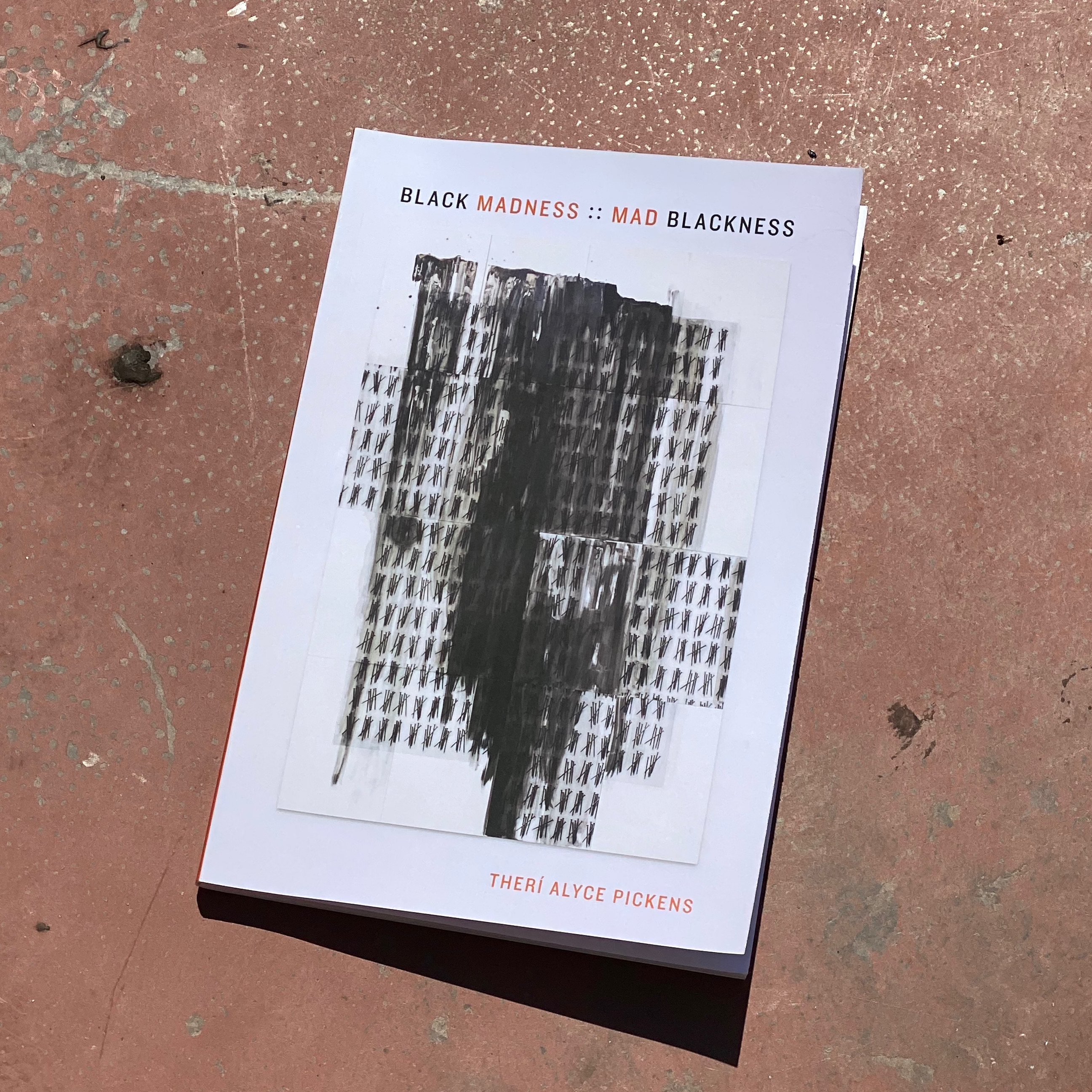
-
July 8, 2020 Mel Y. Chen Masked States and the “Screen” Between Security and Disability (2012)
Download *SENDING FUNDS* This week, white queers in the group, we are sending $$$ to Black Trans Femmes in the Arts. The mission of the BTFA Collective is to connect the community of Black trans women and non-binary femmes in the arts & to build power among ourselves. If you are unable to make your reparations payment this week, contact QTRG privately and we’ll make it together (your info will remain anonymous). Website Support link Venmo: @payjordynjay CashApp: $btfacollective Image description: A video still from Meriem Bennani and Orian Barki’s 2 Lizards, Episode 6 (2020) on IGTV. In the scene, two friends meet on the sidewalk in a New York neighborhood. The sky is blue, there are bright green trees in the background, and cars parked on the street. The two friends are separated by the width of the sidewalk, a suggested 6 feet. On the left, there is a CGI (computer-generated imagery) lizard, grey/brown in color, standing upright, wearing a black mask, looking across the sidewalk at their friend, a spotted cat (also CGI, colors are grey and white with black spots). They are wearing a red bandana as a face covering and holding a brown paper bag. The closed caption text at the bottom reads: Honestly even with a mask on I feel like my body is being policed.
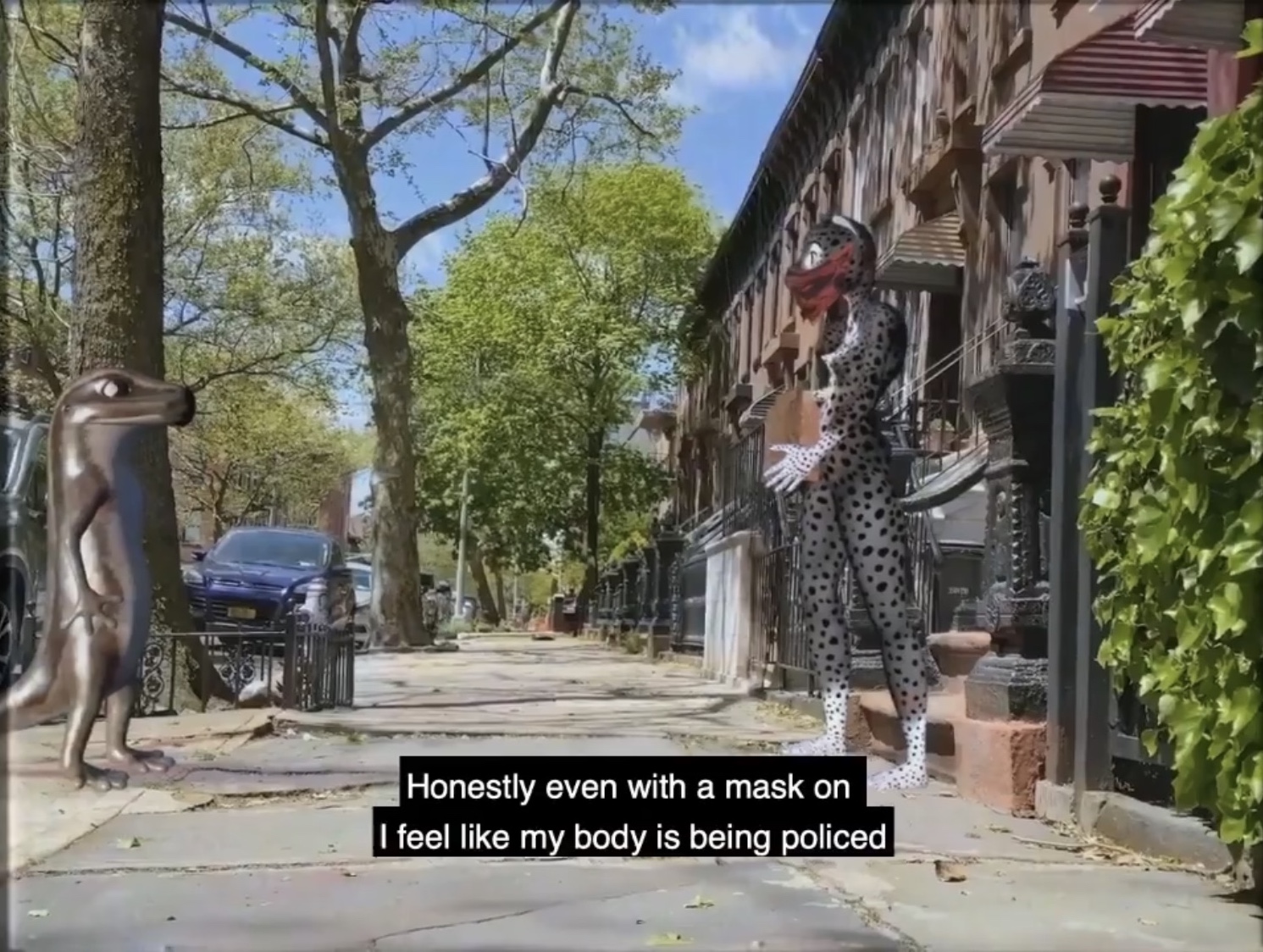
-
July 1, 2020 Toni Cade Bambara Realizing the Dream of a Black University (1969) With Introduction (2017) by Makeba Lavan and Conor Tomás Reed + June Jordan Life Studies (1966–1976) With Introduction (2017) by Conor Tomás Reed and Talia Shalev Both from Lost and Found, Series 7, Center for the Humanities, Graduate Center of the City University of New York
Download 1 Download 2 From the Lost and Found series: While Toni Cade Bambara is mostly known for her short stories, novels, and landmark 1970 anthology The Black Woman, “Realizing the Dream of a Black University,” & Other Writings explores lesser-known aspects of her work and revives her far-reaching pedagogical legacy. Through memoirs and texts drawn from City College of New York’s radical 1960s educational experiments, we learn how Bambara dedicated her life to embedding and expanding Black and Third World studies in academic institutions, community settings, and the larger collective consciousness while imbuing these efforts with her own unique form of infectious activism and unflinching clarity. Though many aspects of June Jordan’s unique and dynamic forms of work and activism have been well documented, “Life Studies,” traces a through line of her creative interventions to form a fuller portrait of her complex and interrelated engagements. Through essays and policy reports from her days as a housing activist, speeches, her work with children, and texts from her time at City College of New York, this project adds new layers to Jordan’s legacy, showing how she created “living room” to enact a broad array of “life studies” that had great effect on many people in very different institutional, communal, and public settings. *SENDING FUNDS* This week, white queers in the group, we are sending $$$ to The Free Black Women’s Library, which is an interactive Black Feminist mobile trading library and interactive biblio installation that features a collection of 2000 books written by Black women. The library is committed to centering and celebrating the voices of Black Women in literature. This mobile library pops up monthly in unique and radical spaces throughout Brooklyn, NYC and has also been to Detroit, Chicago, Philadelphia and Baltimore. If you are unable to make your reparations payment this week, contact QTRG privately and we’ll make it together (your info will remain anonymous). Website: linktr.ee/thefreeblackwomenslibrary Patreon (from $2+ per month): www.patreon.com/TFBWL Book donations can be mailed here (you can order from Playground Annex or Cafe con Libros in Brooklyn): OlaRonke The Free Black Woman’s Library 1072 Bedford Avenue, #39 Brooklyn, NY 11216 USA Image description: A photograph of a postcard with a b/w image of Toni Cade Bambara on it, against a silver background. In the photo, Toni Cade Bambara is looking at the camera, wearing a striped vest, with her arm resting on a table, her fingers interlaced, and a few rows of books are out of focus in the background. The postcard image is stamped with a blue circular logo in the bottom right-hand corner, with the text: LOST AND FOUND. THE CUNY POETICS DOCUMENT INITIATIVE.
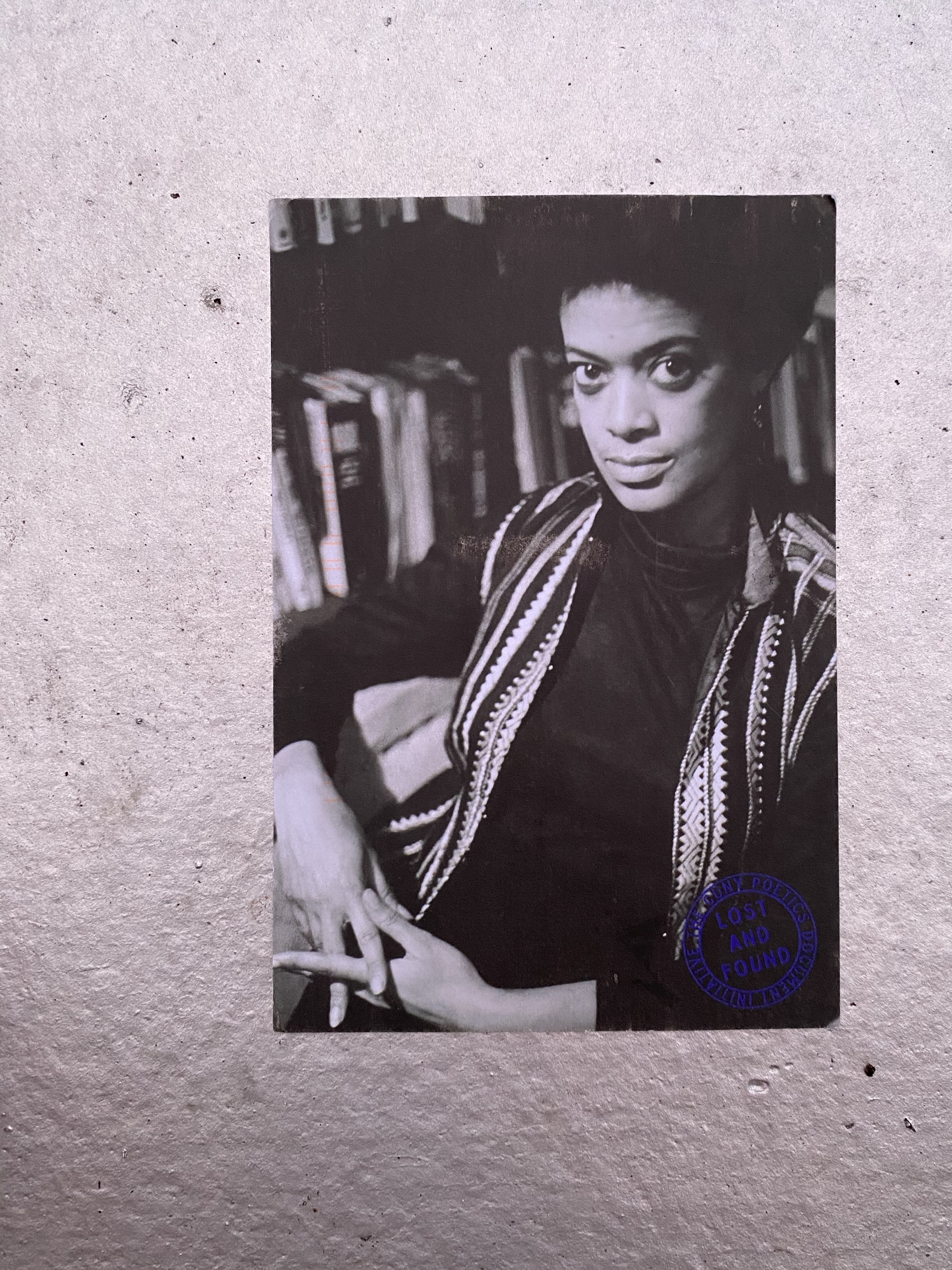
-
June 24, 2020 Alexis Pauline Gumbs m/other ourselves: a Black queer feminist genealogy for radical mothering From Revolutionary Mothering: Love on the Front Lines (2016) + Nadine Naber, Souzan Naser and Johnaé Strong Radical Mothering for Abolitionist Futures Post-COVID-19 (2020)
Download 1 Download 2 *SENDING FUNDS* This week, white queers in the group, we are sending $$$ to The Heavenly Angel Project, supporting Black trans women in NYC through the COVID-19 crisis. If you are unable to make your reparations payment this week, contact QTRG privately and we’ll make it together (your info will remain anonymous). More info: linktr.ee/mizzjune CashApp: $HeavenlyAngelFund PayPal: paypal.me/heavenlyangelfund Image description: A photograph of M. Jacqui Alexander and Alexis Pauline Gumbs in a sunlit room, each sitting on their own floor cushion, leaning against a beige cabinet with different objects and candles on top of it. M. Jacqui Alexander is gazing up and to the right, dressed in all white, with a blue notepad on her lap, and her legs stretched out in front of her. Alexis Pauline Gumbs is looking at the camera, smiling, with one arm across her chest, touching her shoulder.
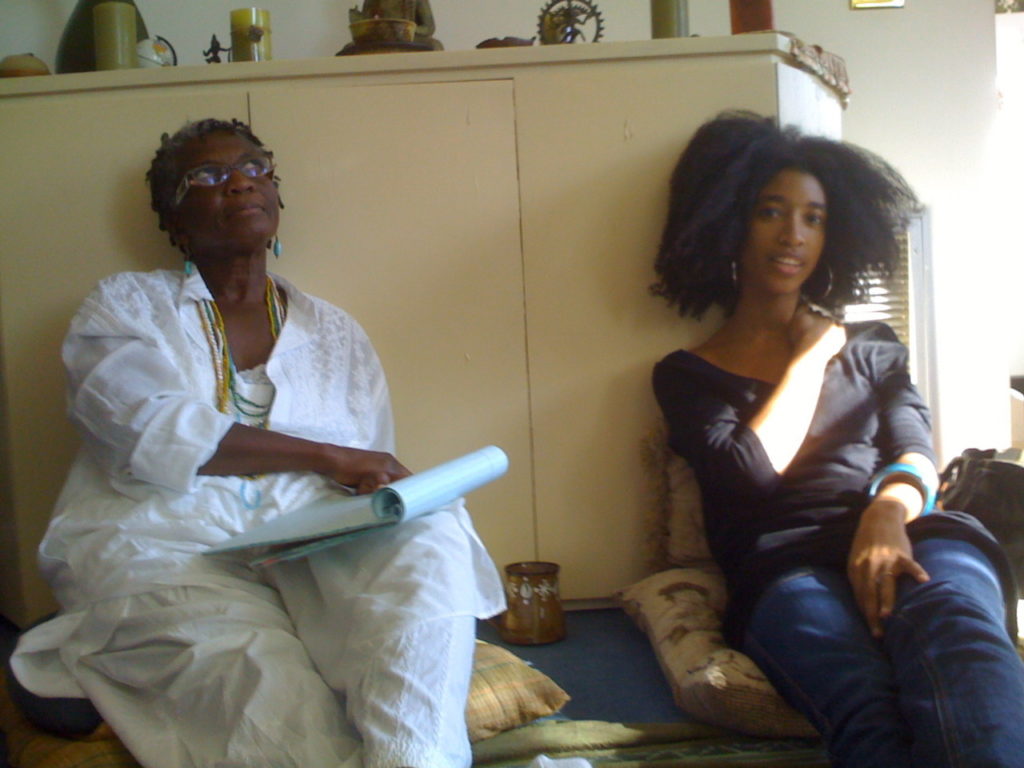
-
June 17, 2020 Jay Donahue and Miss Major Griffin-Gracy Making it Happen, Mama: A Conversation with Miss Major (2011) From Captive Genders: Trans Embodiment and the Prison Industrial Complex + Foreword by CeCe McDonald from the Expanded Second Edition (2015)
Download QTRG is back next week. Thinking of you all. Please reach out if you need anything — someone to talk to, someone to march with, educational resources for us white queers, links for redistributing funds and paying reparations… As the organizer of QTRG (Sonya — white, queer, able-bodied, cis-ish/nb), I check this account multiple times a day and I am available. Plus, there are many other QTRGers who want to connect. If you’re feeling isolated and QTRG can support you in any way, please ask and we can find a solution together! Looking forward to seeing whoever can make it next week. *SENDING FUNDS* This week (a new weekly collective practice), white queers in the group, we are sending $$$ to Activation for their Respite as Resistance residency: respite experiences for Black, Brown, Indigenous, disabled, trans & queer & immigrant activists, organizers & artists on the front lines fighting from bed, the streets & everywhere else. Let’s help them reach their 50K goal (40K already raised). From the website: Why this experience now? Front liners will be protesting and driving the movement forward for the foreseeable future, and we must deliver care. We need a variety of tactics and this right here is one of many. Respite as Resistance is emblematic of the kinds of resistance work that are currently lacking in our approach. Care is essential. Pull up for us. Protect us. Care about our peace and pleasure as much as you care about our rage and rebellion. More info / nominate front liners / apply to do care work (QTBIPOC only): https://activationresidency.com/respite-as-resistance Venmo: Activation Cash App: $ActivationResidency PayPal: info@activationresidency.com / paypal.me/activationretreat Image description: A black-and-white scanned flyer for Gigi’s, an early 1990s transgender safe space operated by Tenderloin AIDS Resource Center (TARC), now Tenderloin Health (Miss Major was the manager). At the top of the flyer, the text is: you are ^always welcome at gigi’s, gender issues/gender information & support. Next to the text is a cut out picture of Miss Major, smiling big, dressed in all white, casually leaning against the “g” in gigi’s. Below that is a dark oval bubble with the text: Transgender Support Groups. Inside the bubble are the words: FTM, drag queen, transsexuals, transvestites, MTF, male impersonators, drag kings, female impersonators, gender-benders. The text below the bubble: for all self-identified transgender & questioning people. Below that: 5 days a week! monday thru friday 4pm-6pm. Then there is another bubble with the female and male gender symbols, another cut out of Miss Major, this time lounging on the ground with one leg crossed over the other, big smile, and the text: hosted by miss major. At the bottom of the flyer, the text is: Tenderloin AIDS (end and AIDS are both printed darker to deliver a double message: end AIDS) Resource Center, 187 Golden Gate Ave @ Leavenworth, San Francisco 94102, for more info call 415.431.7476. The flyer is from the film MAJOR!
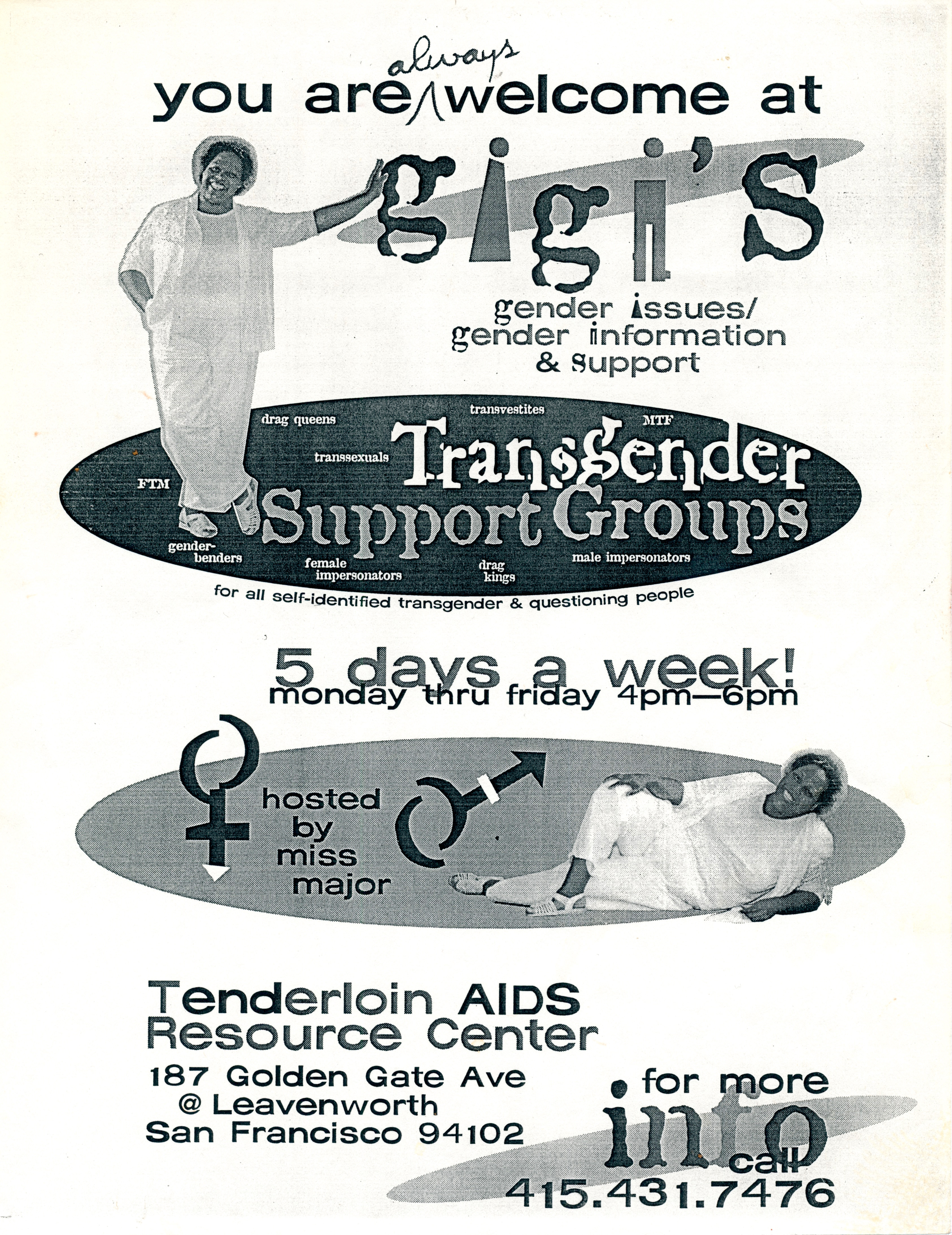
-
May 27, 2020 Matt Brim Poor Queer Studies: Confronting Elitism in the University (2020) Introduction: Queer Dinners + Hendri Yulius Wijaya Pedagogy of the Homeless: Poor Queer Studies in Indonesia (2020)
Download 1 Download 2 Image description: A cropped b/w scanned photo of a stack of books. The only words fully visible are poor queer studies and terrorist assemblages. The books are Matt Brim’s Poor Queer Studies (2020), Terrorist Assemblages (2017) by Jasbir K. Puar, Queer Korea (2020) by Todd Henry, and an issue of GLQ: A Journal of Lesbian and Gay Studies, Volume 25, Number 1 (January 2019).
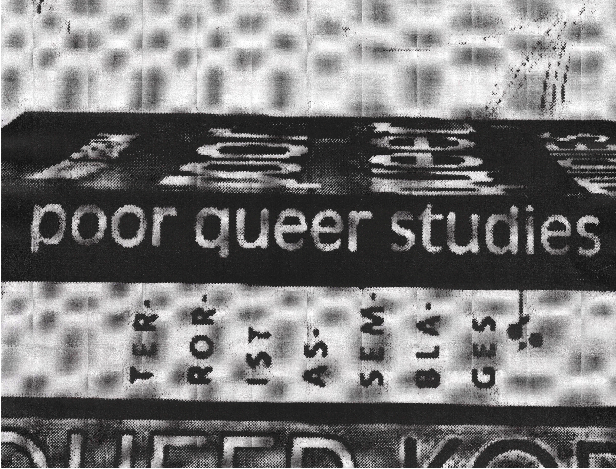
-
May 20, 2020 Paul B. Preciado The Losers Conspiracy + Learning from the Virus + The Impossible Dedication (all 2020)
Download 1 Download 2 Download 3 Image description: A photo of a magazine page, with the title “Learning from the Virus” and the author’s name printed and a photo of a Covid-19 decontamination tent in the background (in London, taken on April 6, 2020, photo: Alamy). The image is of two people in green hazmat suits, photographed from the side, with a bright yellow tent background. One of them is washing the other’s back, scrubbing with a bristle brush attached to a coiled hose. Soap and water is splashing off the suits.
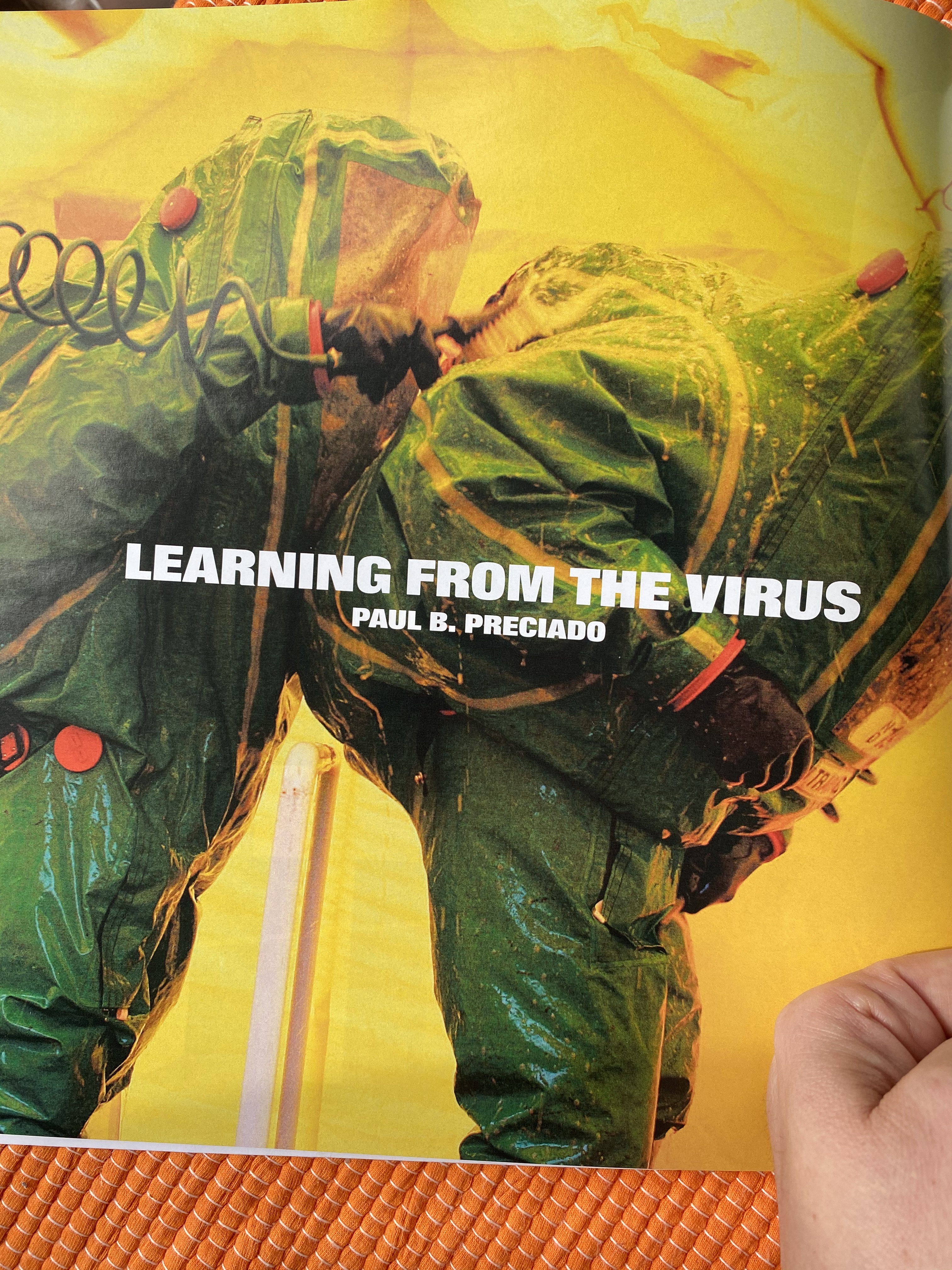
-
May 13, 2020 Indiana Seresin On Heteropessimism (2019) + Sina Najafi, David Serlin, and Lauren Berlant The Broken Circuit: An Interview with Lauren Berlant (2008)
Download 1 Download 2 Image description: A scientific diagram of mushrooms depicting five figures in a horizontal row on a cream background. The two on the edge are grey, sort of resemble a comb, and the three in the middle are orange/yellow/red and definitely phallic. A few of them have roots. Tiny letters and numbers (part of a key not shown) are pointing to different parts of the figures.
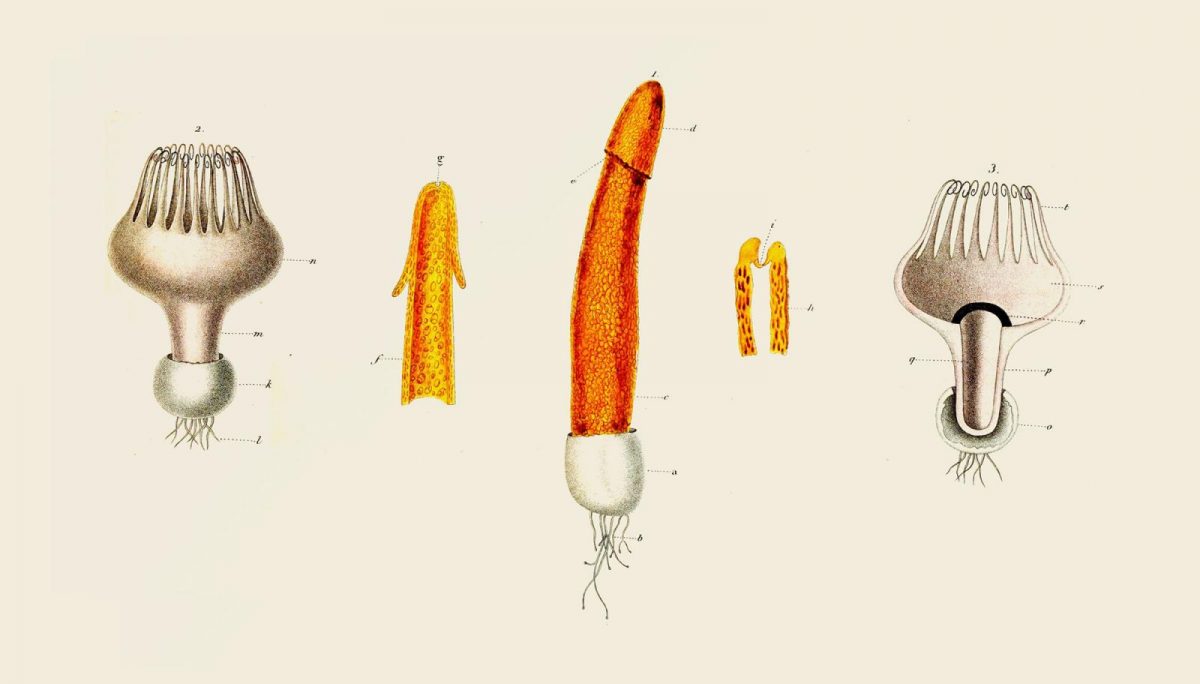
-
May 6, 2020 Cathy J. Cohen Punks, Bulldaggers, and Welfare Queens: The Radical Potential of Queer Politics (1997)
Download Image description: A black-and-white photocopy image from the cover of the queer zine Homocore #2 (Dec 1988). A crop of a person’s torso, wearing a white t-shirt with the word Queer printed on it, sleeves rolled up. The person is sporting two nipple clamps with a metal chain.
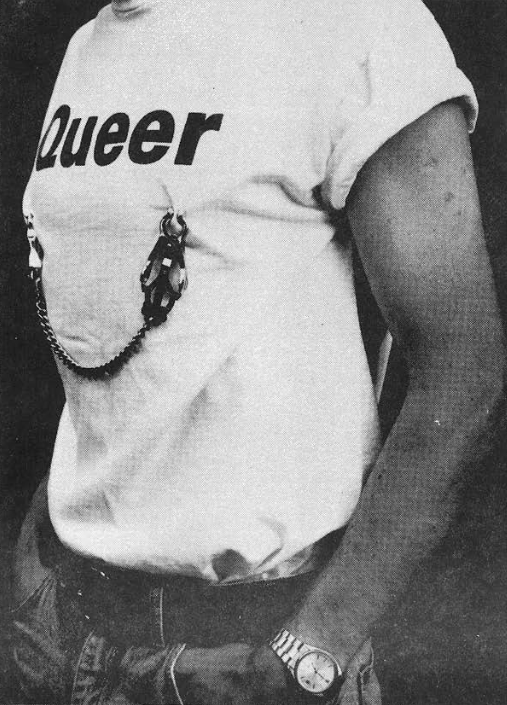
Berlin
2019
-
28 February 2019 *4 year anniversary and going away party!* @ OYA, Berlin
Location: OYA, Café Kneipe, Mariannenstrasse 6, 10997 Berlin, Germany Time: 7 – 11pm… * This event is on a THURSDAY. And Thursday is OYA’s FLTIQ* Abend! ~ ~ ~ ~ ~ ~ ~ ~ ~ ~ ~ ~ QTRG is celebrating its four year anniversary!!! And after four wonderful years of making new friends and community, QTRG will be moving to NYC in March! Over the past four years we have come together to read, analyze, critique, gossip about, love on, and bitch at queer theory — but mostly to just be together. Thank you to everyone who has been coming over the past years, whether once or twice during a summer spell in Berlin, or 100 times, week after week (the old school regulars, you know who you are!). Looking forward to new adventures with some old QTRGers based in New York (thank goddess), some new ones, and keeping in touch with everyone Berlin based, across the Atlantic, and not to mention, everywhere else! New Yorkers, QTRG is coming your way, look out for our first meeting there… Berlin <3 Please join for our celebration gathering at OYA, a couple doors down from our first home at Mariannenstrasse 2! This is our last meeting in Berlin (for now!). Thank you so much for all of your support, contributions, questions, discussions, and sharing your many specialized knowledges over the years — will miss you all! You’ve made this group what it is today. Image: Jesse Darling, The Staff of Saint Jerome, 2018 Steel, rubber, bandages, lion, testosterone
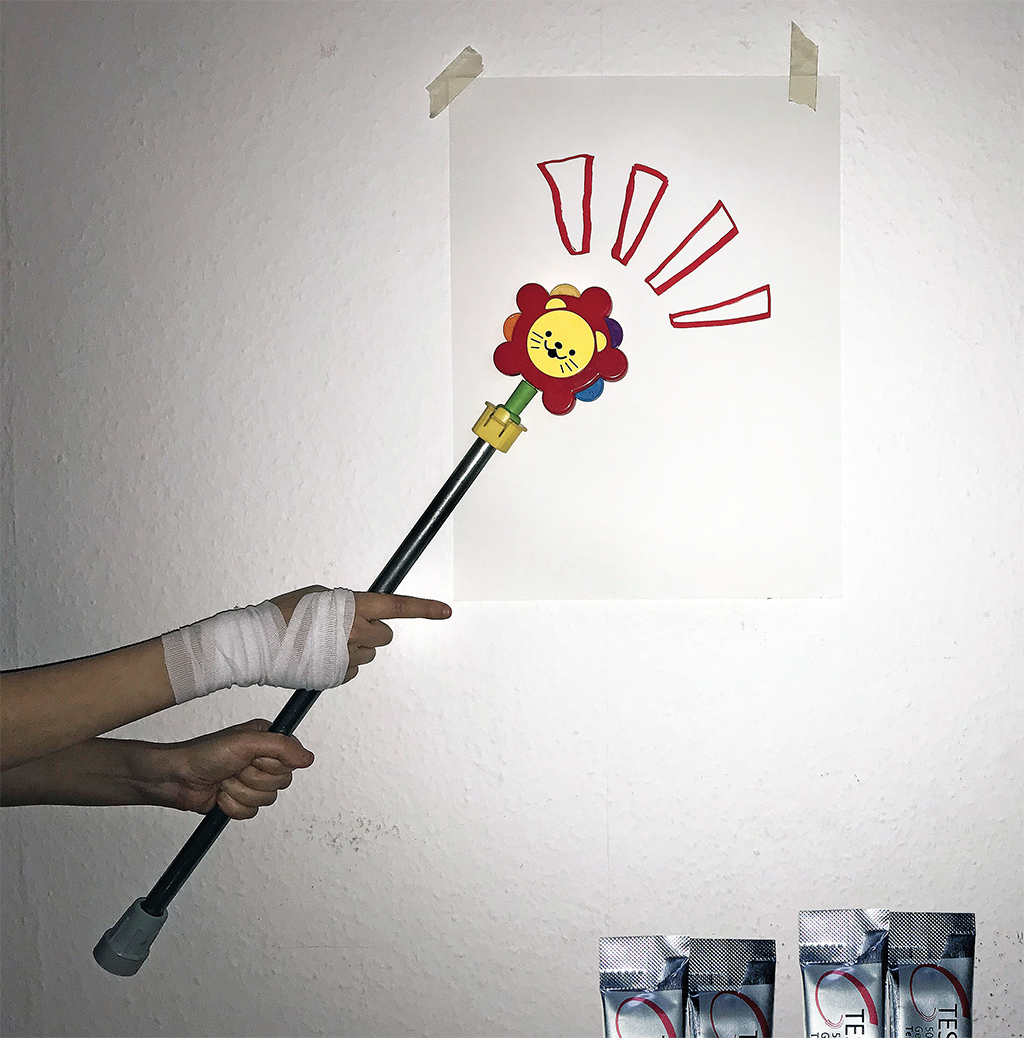
-
5 February 2019 Douglas Crimp DISSS-CO (A FRAGMENT) (2008) From Before Pictures, a Memoir of 1970s New York
Download Text selected from the bibliography for Jimmy Robert’s performance Joie noire, Pause: Jimmy Robert (After Ian White) at KW Institute for Contemporary Art (2019). Event link here Image: Jimmy Robert, 2018, research still, Charles James adjusting a black crepe gown on Juan Fernandez, photo by Bill Cunningham in: Douglas Crimp, Before Pictures, 2016.
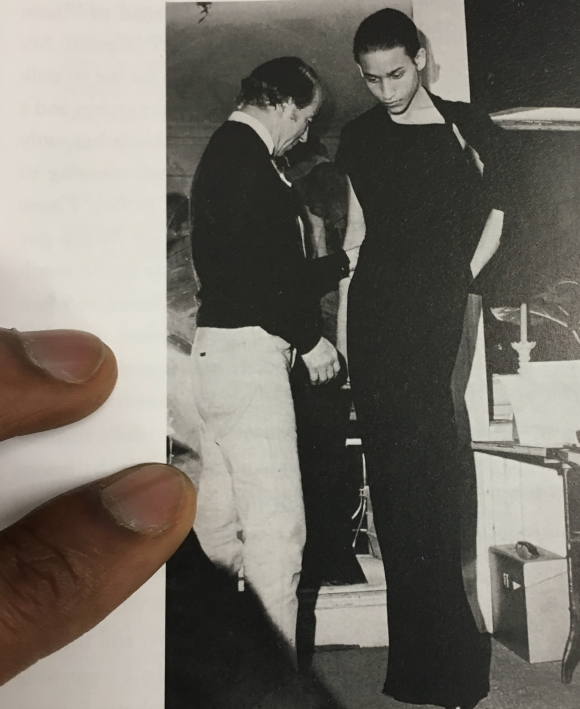
-
29 January 2019 Alison Kafer Debating Feminist Futures: Slippery Slopes, Cultural Anxiety, and the Case of the Deaf Lesbians From Feminist, Queer, Crip (2013)
Download Textual Description of the Cover Art: The image on the front cover is of a mixed-media painting by Katherine sherwood titled Vesalius’s Pump (2006, 36 x 36 inches). The painting takes up the bottom two-thirds of the book’s cover and consists mostly of large, looping swirls of paint over an ivory-colored background. Some of the paint on the right edge of the painting is so thick that it has cracked, creating a branching network of brown lines. In the center of the painting, Sherwood has affixed several anatomical drawings of brains taken from Andreas Vesalius’s sixteenth-century anatomy text On the Structure of the Human Body. Rendered in oranges and yellows, the brains are placed alongside images of the arterial system from Sherwood’s own brain scans. The brains are jumbled together, with the loops of paint moving around and over them; the overall effect is of a slow-moving organic machine.
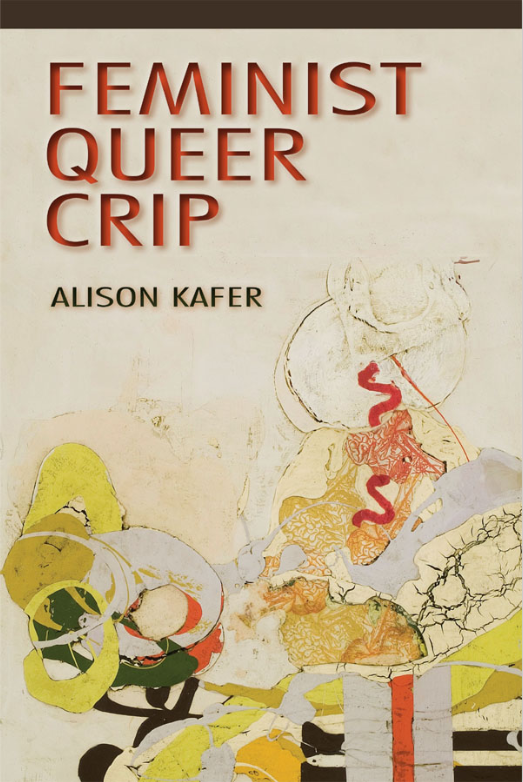
-
22 January 2019 Lauren Berlant and Michael Warner Sex in Public (1998)
Download Image: Nicole Eisenman, Sloppy Bar Room Kiss, 2011
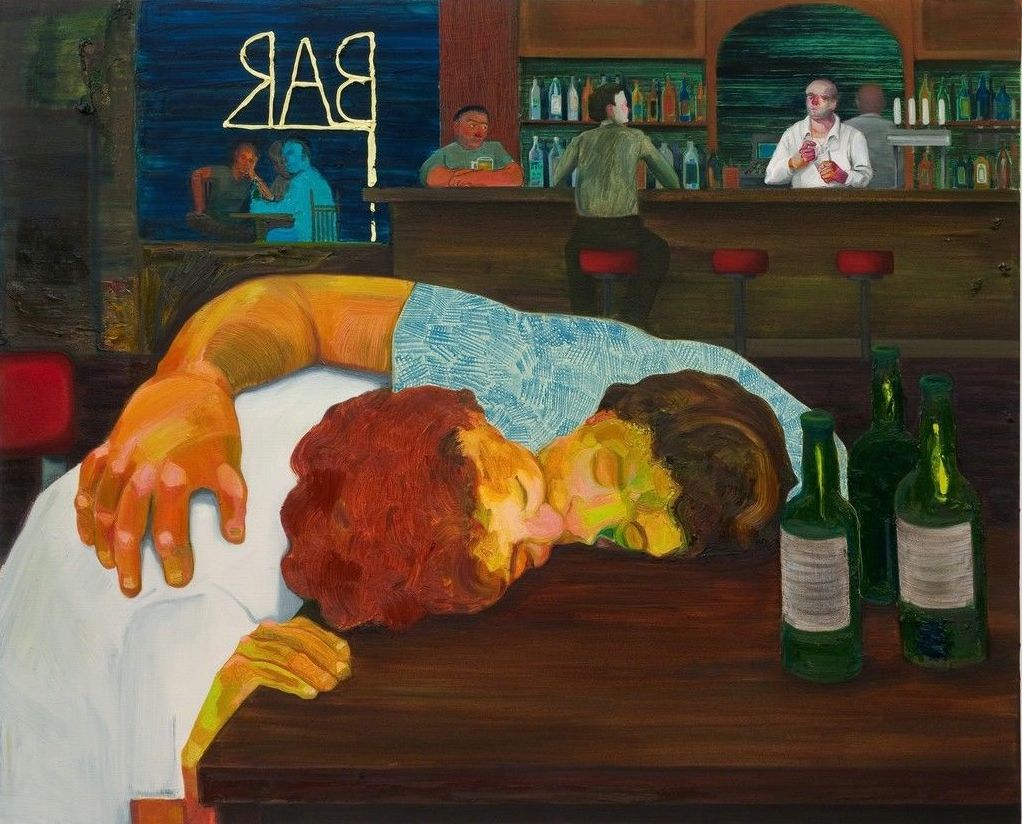
-
8 January 2019 Che Gossett We will not rest in peace: AIDS activism, black radicalism, queer and/or trans resistance (2014)
2018
-
11 December 2018 Robyn Wiegman and Elizabeth A. Wilson Antinormativity’s Queer Conventions Introduction to Differences: Queer Theory Without Antinormativity (2015) + Lisa Duggan Queer Complacency without Empire (2015)
Download 1 Download 2 Image: Queer Nation
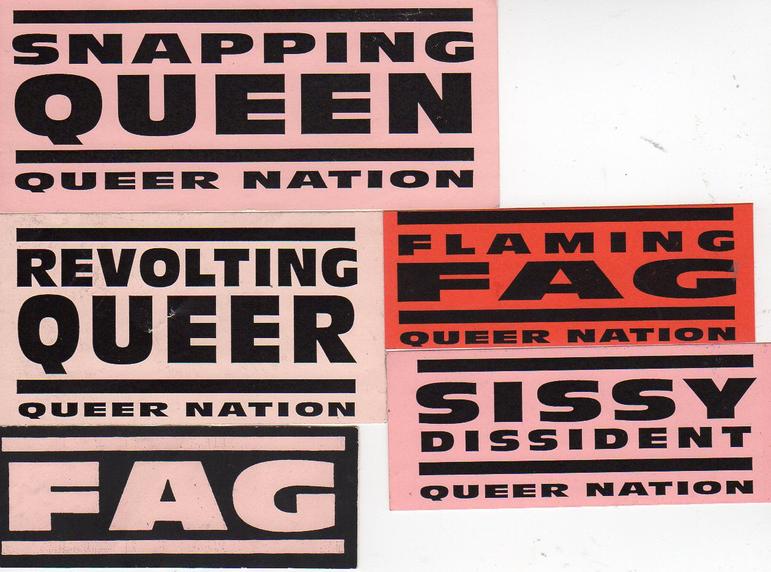
-
27 November 2018 Alison Bechdel Fun Home: A Family Tragicomic (2006)
Download Fun Home: A Family Tragicomic is a 2006 graphic memoir by the American cartoonist Alison Bechdel, author of the comic strip Dykes to Watch Out For. It chronicles the author’s childhood and youth in rural Pennsylvania, United States, focusing on her complex relationship with her father.
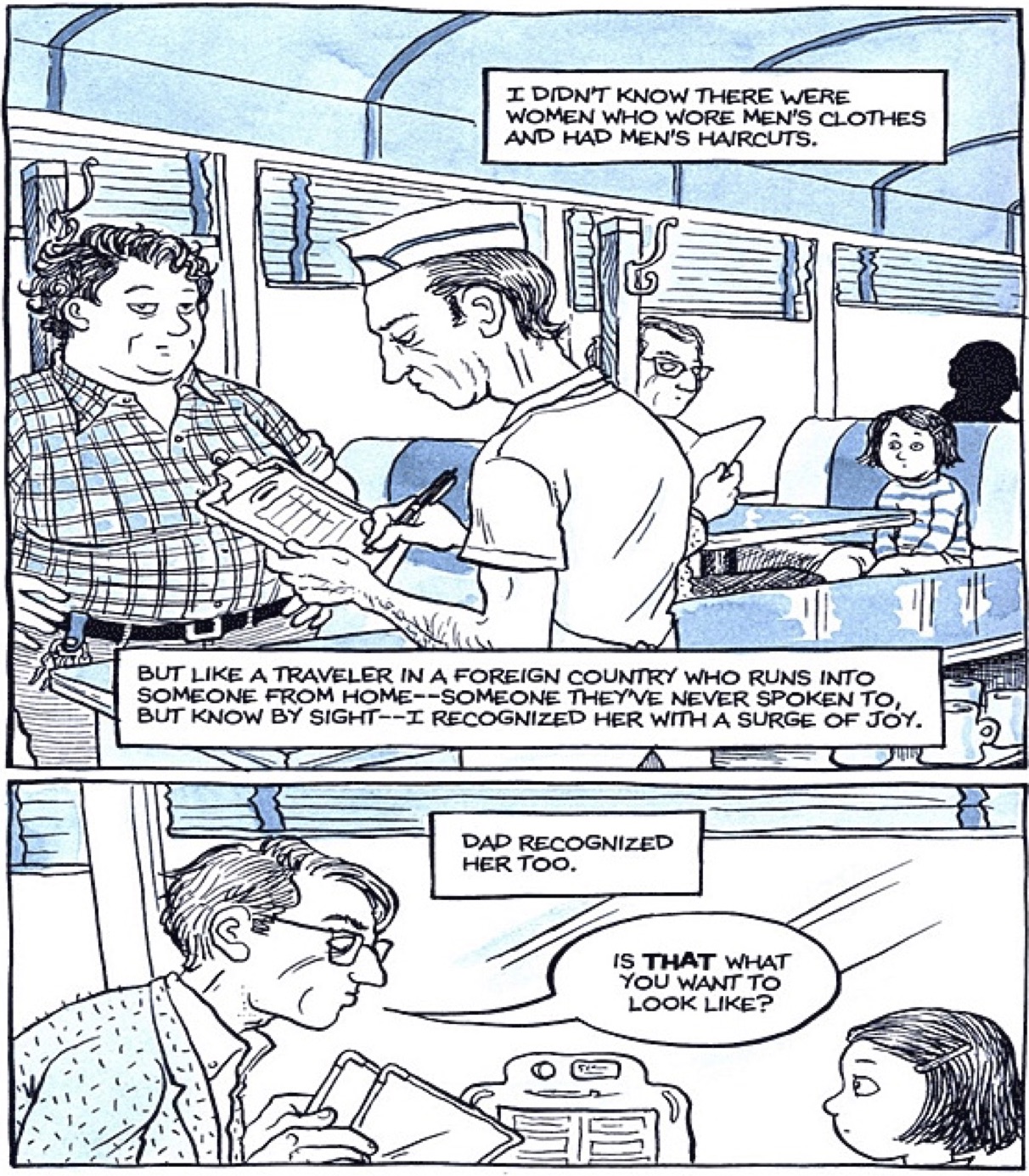
-
20 November 2018 Elizabeth Freeman Time Binds, or, Erotohistoriography (2005) Time Binds: Queer Temporalities, Queer Histories (audio recording, 2016) + Gerard & Kelly Reusable Parts/Endless Love (2011)
Download Listen Elizabeth Freeman Time Binds: Queer Temporalities, Queer Histories (2016) at Gasworks, London American queer theorist Elizabeth Freeman discusses her research around ‘chrononormativity’ and ‘erotohistoriography’ and her new work on the place of rhythm in the making of couplehood and community. The talk will explore the rhythms of “good” sex as they appear in Tino Sehgal’s performance installation The Kiss (2002), and “bad” sex in a triptych of recent performance installations by Gerard & Kelly (You Call This Progress, Reusable Parts/Endless Love, and Kiss Solo). Watch Gerard & Kelly Reusable Parts/Endless Love (2011) REUSABLE PARTS/ENDLESS LOVE (2011) is a score-based, interactive performance for a rotating cast of four dancers, presented on a potentially infinite loop. Situated in the nave of a church fractured by mobile walls, this manifestation of the work propels spectators and performers to wander beneath a grid of overhead speakers. The rules of the score are structured like an elaborate game of telephone. Dancers transmit and transform the instructions for a kiss between a man and a woman into a machine-like production of unscripted representations of intimacy. Performers: niv Acosta, devynn emory, Yve Laris Cohen, Todd McQuade, Roger Prince, and Jose Tena Documented at Danspace Project at St. Mark’s Church, New York, NY, November 2011 Image: Still from Gerard & Kelly’s performance Reusable Parts/Endless Love (2011)
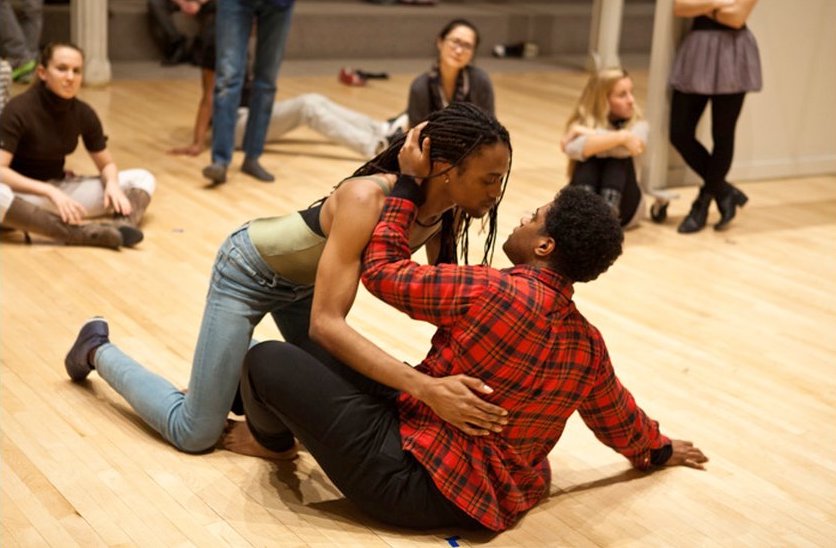
-
4 October 2018 FIELD TRIP NEW YORK Samuel R. Delany Times Square Red, Times Square Blue (1999) Part 1: Times Square Blue @ Queer Studies Forum, NYU, New York
Download Revisiting a text from one year ago this week! Hosted by Queer Studies Forum A Cross-Departmental Working Group at NYU Co-founded by former Berlin QTRGer Smaran Dayal! https://wp.nyu.edu/qsf/ Time: 6 – 8pm Location: 244 Greene St., New York, NY (Room 306) *Note: This meeting is on a Thursday.
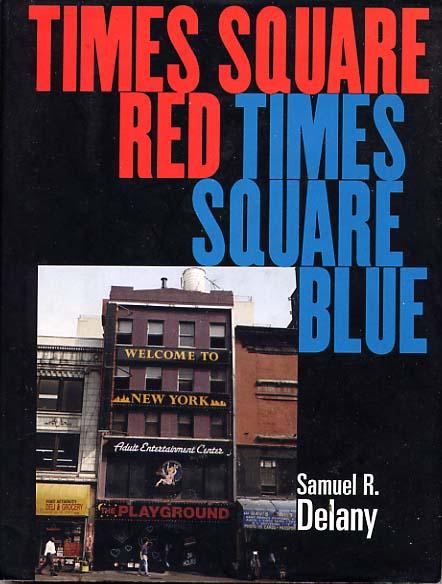
-
4 September 2018 Dean Spade Mutilating Gender (2006)
-
21 August 2018 FIELD TRIP Refusing Intimacy with the Present Moment Curated short film screening by Jordan Loeppky-Kolesnik Co-presented by Altes Finanzamt, Entzaubert queer D.I.Y uncommercial film festival, and xart splitta filmreihe @ Altes Finanzamt, Berlin
Link Altes Finanzamt Schönstedtstrasse 7, 12043 Neukölln, Berlin, Germany 7pm Vegan Food 8pm Screening (~60mins) :: Desearch Repartment (Vancouver, Canada/Germany) :: Aimee Goguen (Los Angeles, USA) :: Ilana Harris-Babou (Brooklyn, USA) :: Nicole Killian (Richmond, USA) :: Zoe Koke (Montreal, Canada/Los Angeles, USA) A screening of video works by five female-identified/non-binary artists and collectives, seeking to connect the way their different approaches bring us into a visceral experience of their subjectivity and the the difficulty of living in the present moment. This screening charts some new ways that feminist video artists are using the personal to speak about political and social realities. The title of the screening is taken from Nicole Killian’s video What Pixels Form002. All the works ask pressing questions about this difficulty of intimacy. Aimee Goguen’s confrontational videos break down the body and sexuality into ritual and abstraction. In one video fisting becomes a rhythmic ritual, in others she directs men to undertake sexual actions with a type of sadistic female gaze. Desearch Repartment uses political news footage as a material for video editing and textiles that enrobe bodies practicing a fictional yoga system. Their video directly expresses the hypocrisy of self-help in the context of neoliberalism. Ilana Harris-Babou satirizes the PBS home improvement television program “This Old House”, creating a portrait of intimacy between herself and her mother, the two hosts of the program. Her video Reparation Hardware presents the idea of reparations in the form of an instructional video. Nicole Killian’s video collages use language and found images to create their own visual universe. We experience a live feed of the artist’s Internet search history, layered beneath phrases at once playful, emotional, and politically compelling. Zoe Koke’s subtle, intimate found-footage videos appropriate scenes discovered on YouTube: two women fighting as they are surveyed by a group of men, a woman on a beach, seemingly lost or confused, and another of two men walking, one supporting his inebriated friend, appropriated by Koke through a female gaze to create a portrait of male fragility and homosocial intimacy. Layered over these grainy images are audio recordings from friends and family of the artist. Thank you to the Canada Council for the Arts for supporting this event. ** Your donations are appreciated ** ** Unfortunately the space is not wheelchair accessible. It’s in a cellar with a few steps leading to it and no wheelchair accessible toilet in the space. We deeply apologize for this! Please drop us a line if you want to know more about the space, we will try to find a solution together !!**
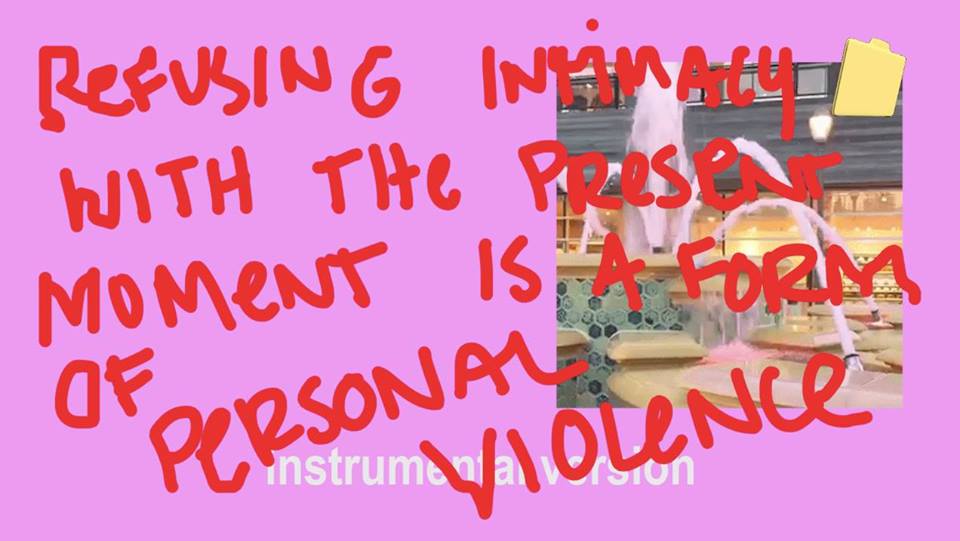
-
7 August 2018 Frantz Fanon Concerning Violence From The Wretched of the Earth (1961)
Download Image: Concerning Violence (2014) is a documentary film directed by Göran Olsson based on Frantz Fanon’s essay. Narrated by Lauryn Hill and with an introduction by Gayatri Chakravorty Spivak.
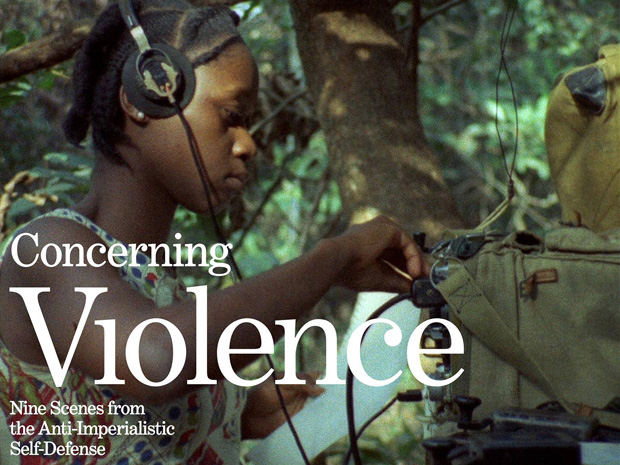
-
31 July 2018 Wendy Brown Wounded Attachments (1993) + Sara Ahmed It is not the time for a party (2015)
-
10 July 2018 Silvia Federici The Great Caliban: The Struggle Against the Rebel Body (2002) + 9 July 2018 FIELD TRIP Silvia Federici The Globalization of Women’s Work and New Forms of Violence Against Women @ ICI Berlin
Download text Download event flyer *Note: The lecture is on Monday, 9 July 2018 and QTRG meets on Tuesday, 10 July 2018. About the lecture: From the spread of new forms of witch-hunting to the worldwide escalation of the number of women sexually abused, even murdered on a daily basis, evidence is mounting that a war is being waged against women. What are its motivations? What is the logic behind this phenomenon? Silvia Federici addresses these questions by relating the intensification of violence against women, the new forms of capital accumulation and women’s labor, and the different ways in which women are resisting victimization. Silvia Federici is a feminist activist and a renowned political theorist. In 1972, she co-founded the International Feminist Collective, which launched the campaign Wages for Housework internationally. Her previous books include Caliban and the Witch: Women, the Body and Primitive Accumulation (2004); Revolution at Point Zero (2012); Witches, Witch-Hunting, and Women (forthcoming 2018); and Re-enchanting the World: Feminism and the Politics of the Common (forthcoming 2018). She is professor emerita at Hofstra University, previously worked as a teacher in Nigeria for many years, and co-founded the Committee for Academic Freedom for Africa. Her work has demonstrated the oversight in Marxian theory of one of the fundamental features of capitalist accumulation: namely, the subjugation of women and women’s productive and reproductive labour. Federici is known for her focus on the struggle against capitalist globalization and, more recently, on developing a feminist theory of the commons. Image: From Caliban and the Witch: Women, the Body and Primitive Accumulation (2004)
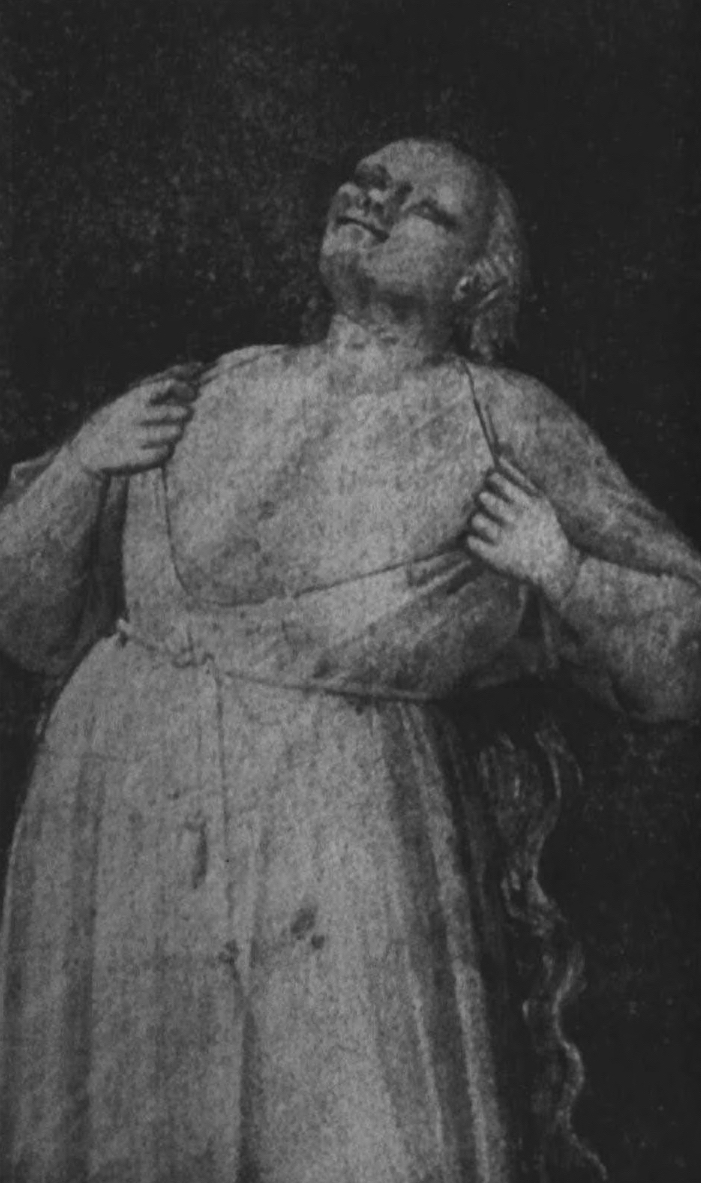
-
26 June 2018 Audre Lorde The Transformation of Silence Into Language and Action (1977) Foreword to the English Edition of Farbe bekennen: Afro-deutsche Frauen auf den Spuren ihrer Geschichte / Showing Our Colors: Afro-German Women Speak Out (1992)
Download Chapter 1 & 12 from I Am Your Sister: Collected and Unpublished Writings of Audre Lorde (2009) Image: Audre Lorde at the East Side Gallery, Berlin Wall (1990)
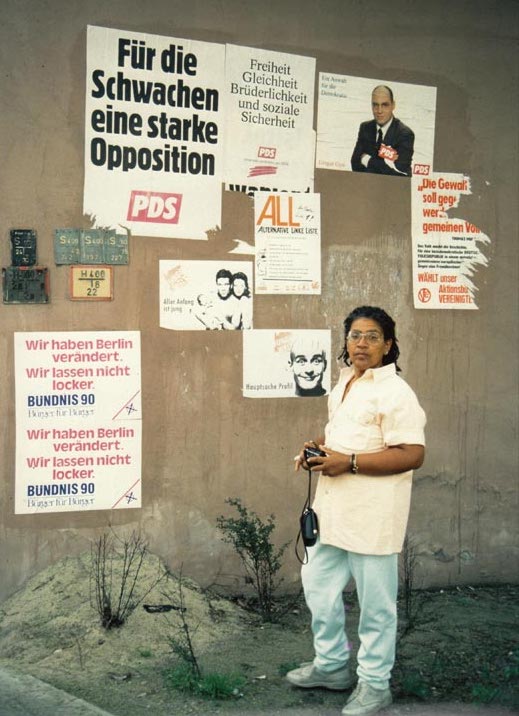
-
19 June 2018 Clay AD Metabolize, If Able (2018)
Download p. 1 – 41 of the book p. 1 – 28 of the PDF About the book: Metabolize, If Able is a queer correspondence sent from a dystopian future. Clay AD’s hybrid-novel follows the lives of clones and their spawn through medical charts, IMs, self-help meditations, screenplays, and, of course, epistles. For the clones, a corporation controls life and death, sickness and wealth. Corp doctors, or DRs, bring the clones to life and assign them work. But DRs restrict clone reproduction. They pathologize and withhold care. They keep the clones sick. What happens when the clones and their anti-Corp cell turn illness into a weapon? AD’s sci-fi world posits the hope found in collective intimacy & the struggle against state control. Published by Monster House Press Order here Clay AD makes text, sounds, videos and movement around themes of sci-fi, illness and ecology and they offer their work to you. Based in Berlin, AD studies somatics and movement. They organize and think with others, they make music on a home-karaoke machine, they envision what autonomous, feminist healthcare could be in present and future conditions. AD was born in Indianapolis, IN. Metabolize, If Able is their first novel.
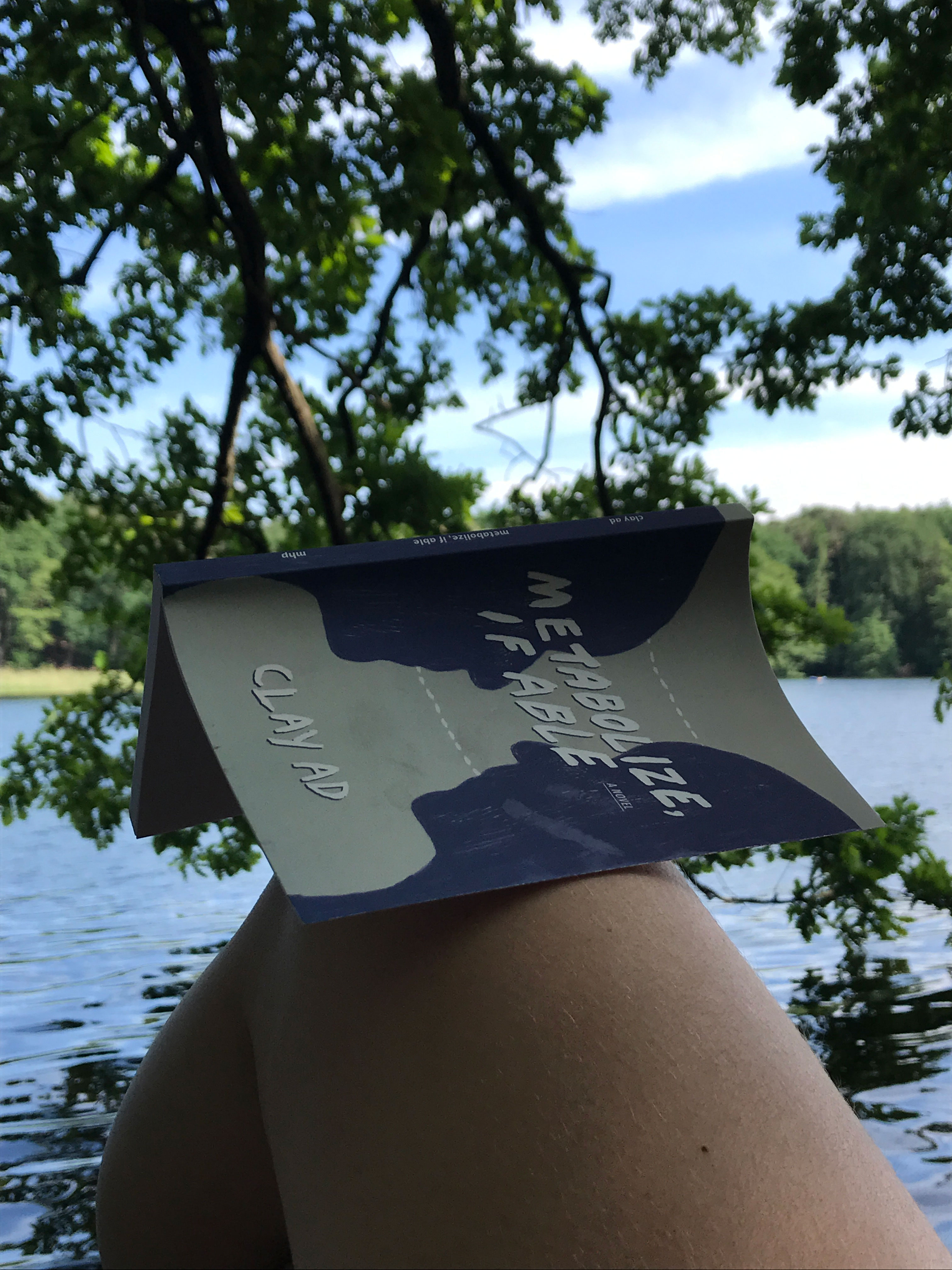
-
7 June 2018 FIELD TRIP Gloria Wekker Beyond White Innocence @ Humboldt-Universität zu Berlin, Hörsaal 2097 + Introduction to White Innocence (2016)
Download flyer Download introduction *Note: The lecture is on a Thursday! Time: 6:30 – 8pm Location: Humboldt-Universität zu Berlin, Hörsaal 2097 / Main Building, Unter den Linden 6, 10099 Berlin About the book: In White Innocence Gloria Wekker explores a central paradox of Dutch culture: the passionate denial of racial discrimination and colonial violence coexisting alongside aggressive racism and xenophobia. Accessing a cultural archive built over 400 years of Dutch colonial rule, Wekker fundamentally challenges Dutch racial exceptionalism by undermining the dominant narrative of the Netherlands as a “gentle” and “ethical” nation. Wekker analyzes the Dutch media’s portrayal of black women and men, the failure to grasp race in the Dutch academy, contemporary conservative politics (including gay politicians espousing anti-immigrant rhetoric), and the controversy surrounding the folkloric character Black Pete, showing how the denial of racism and the expression of innocence safeguards white privilege. Wekker uncovers the postcolonial legacy of race and its role in shaping the white Dutch self, presenting the contested, persistent legacy of racism in the country. Image: Copyright Belga Image
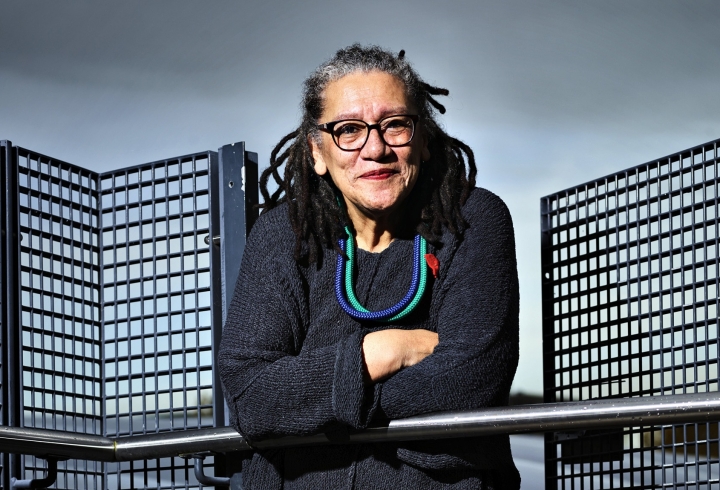
-
8 May 2018 Hannah Black Press For Service From Dark Pool Party (2016)
-
10 April 2018 Andrea Long Chu Did Sissy Porn Make Me Trans? (2018)
Download Conference paper delivered at Queer Disruptions II at Columbia University in March 2018. Full program here: https://www.eventbrite.com/e/queer-disruptions-ii-tickets-42910804371/ Image: https://twitter.com/theorygurl/
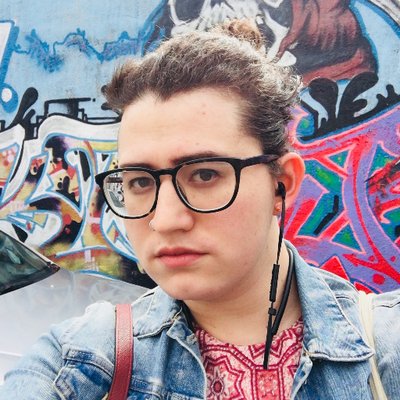
-
3 April 2018 Terre Thaemlitz Names Have Been Changed (Sound/Reading for Incest Porn) Admit It’s Killing You (And Leave) (Sound/Reading for Gay Porn) From the multi-media album Deproduction (2017)
Download Text on p. 4-8 and 37-46 About: Deproduction (JP: Comatonse Recordings, C.027) is a new multi-media album by Terre Thaemlitz, sold as an 8GB SDHC card containing audio (48k/24bit AIFF files), video (86 min., HD 1920×1080) and texts (PDF). The project was produced with support from documenta 14 and Akademie der Künste der Welt, with the world premiere at documenta 14 in Athens on July 9, 2017. We live in an era in which dominant LGBT agendas are increasingly revolving around themes of family, matrimony, breeding and military service. The cultural terms for social analyses and organizing around such issues requires an aggressive capitulation to peculiarly Western Humanist notions of the nuclear family, as well as private and public space. As a result, Feminist and Queer critical rejections of family structures (nuclear and otherwise) are increasingly scarce. An ability to understand the abuses of family and domestic violence as symptoms of larger institutionalized dominations becomes virtually impossible. In a stereotypically familiar and heteronormative manner, the anticipated promise behind today’s Queer families is nothing more than the egocentric notion that familial abuses will be resolved by this generation being better parents than the previous generation. What is forever absent are discussions of what it means to deliberately not be a parent, and to deliberately abandon family. They remain as taboo as the notion of celebrating the relief of an abortion. In Deproduction, Terre Thaemlitz investigates the awkward, uncomfortable and hypocritical power dynamics behind Western Humanist notions of family, and how they function internationally through processes of globalization. Audio excerpts: http://www.comatonse.com/releases/c027.html/
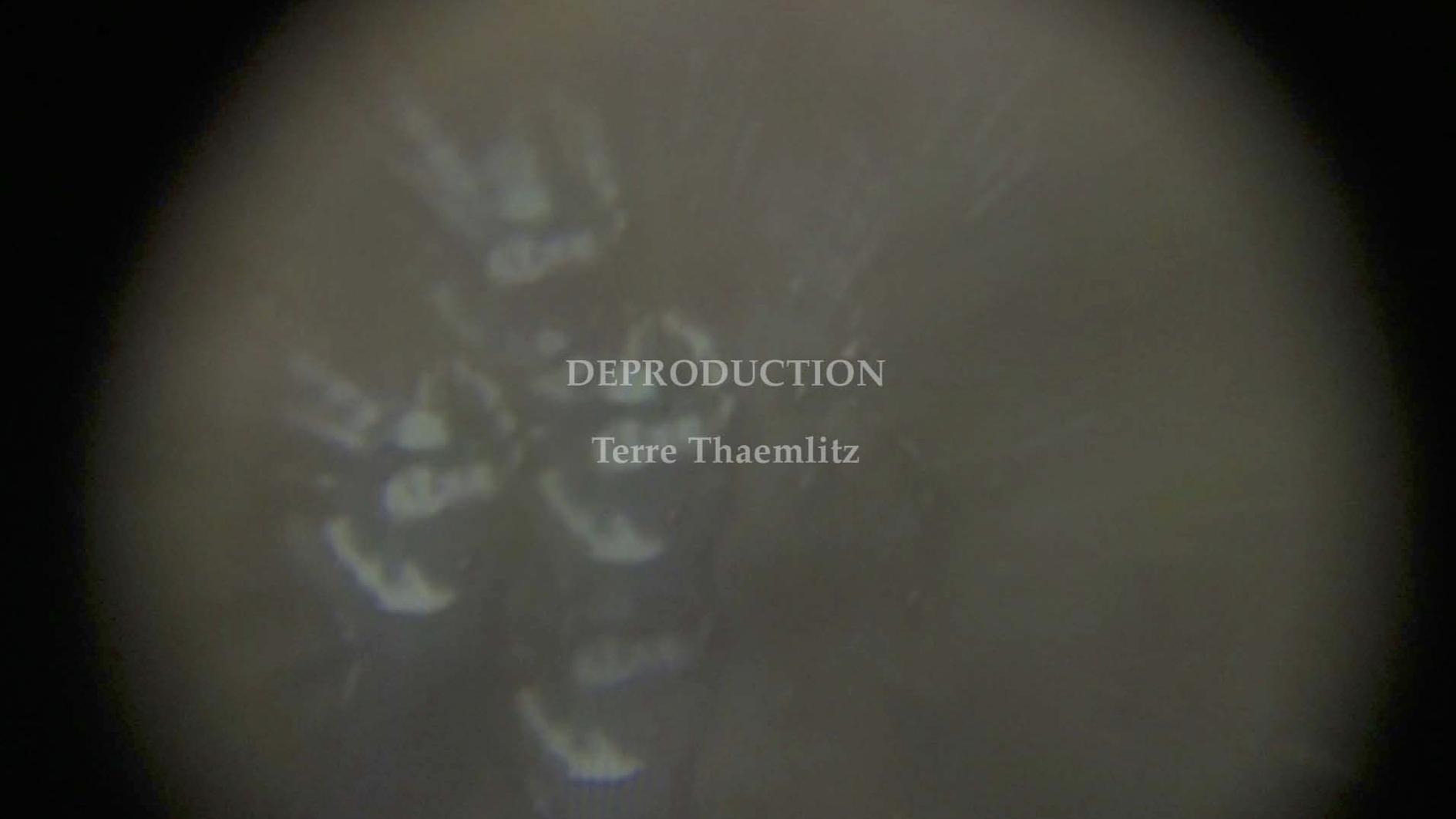
-
27 March 2018 Jasbir Puar Bodies with New Organs: Becoming Trans, Becoming Disabled Chapter 1 from The Right to Maim: Debility, Capacity, Disability (2017)
Download About the book: In The Right to Maim Jasbir K. Puar brings her pathbreaking work on the liberal state, sexuality, and biopolitics to bear on our understanding of disability. Drawing on a stunning array of theoretical and methodological frameworks, Puar uses the concept of “debility”—bodily injury and social exclusion brought on by economic and political factors—to disrupt the category of disability. She shows how debility, disability, and capacity together constitute an assemblage that states use to control populations. Puar’s analysis culminates in an interrogation of Israel’s policies toward Palestine, in which she outlines how Israel brings Palestinians into biopolitical being by designating them available for injury. Supplementing its right to kill with what Puar calls the right to maim, the Israeli state relies on liberal frameworks of disability to obscure and enable the mass debilitation of Palestinian bodies. Tracing disability’s interaction with debility and capacity, Puar offers a brilliant rethinking of Foucauldian biopolitics while showing how disability functions at the intersection of imperialism and racialized capital.
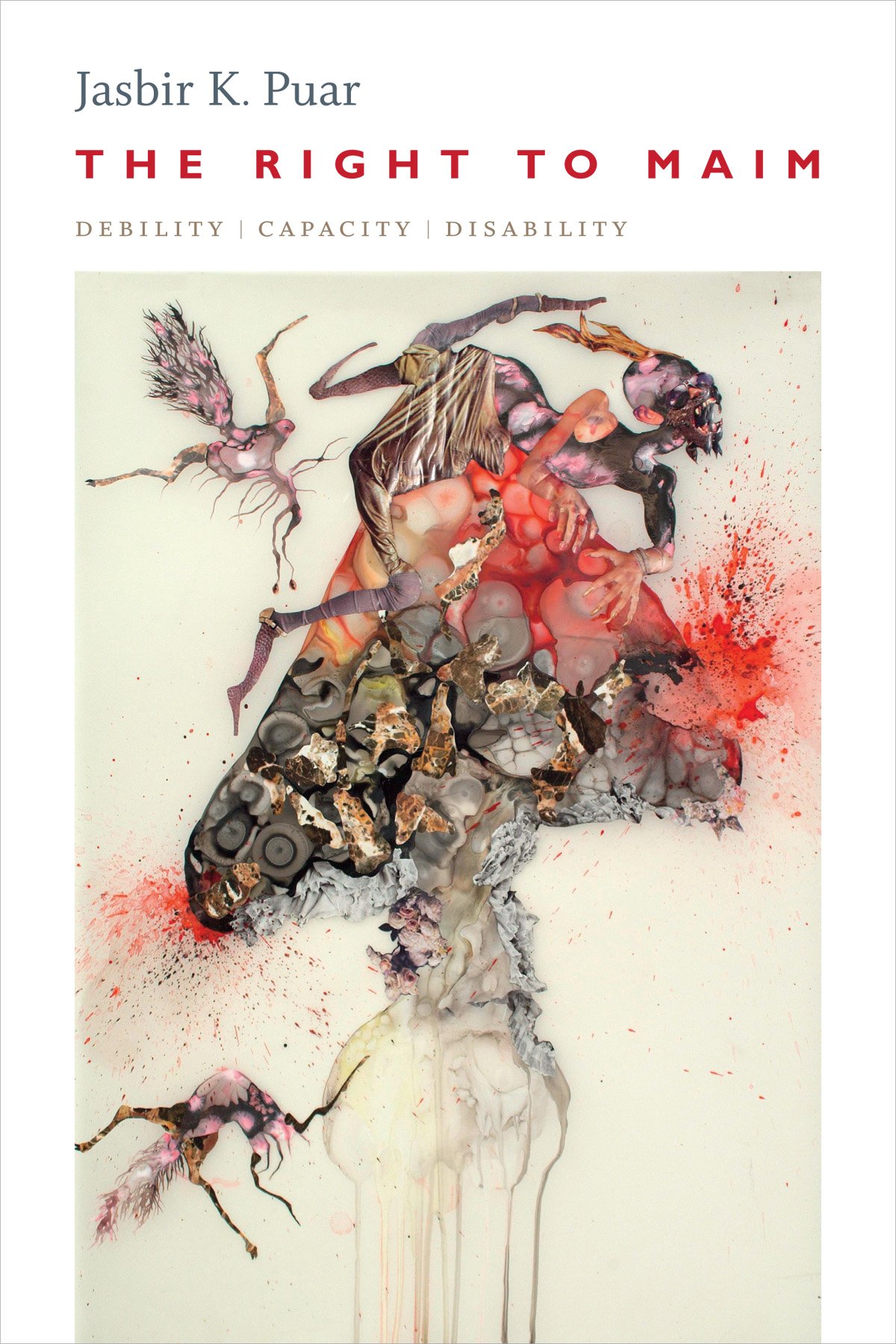
-
20 March 2018 Leo Bersani Is the Rectum a Grave? (1987)
Download Originally published in October, Vol. 43, AIDS: Cultural Analysis/Cultural Activism (Winter, 1987), p. 197- 222. Image: A pink triangle against a black backdrop with the words ‘Silence=Death’ representing an advertisement for The Silence = Death Project used by permission by ACT-UP, The AIDS Coalition To Unleash Power. Colour lithograph, 1987.
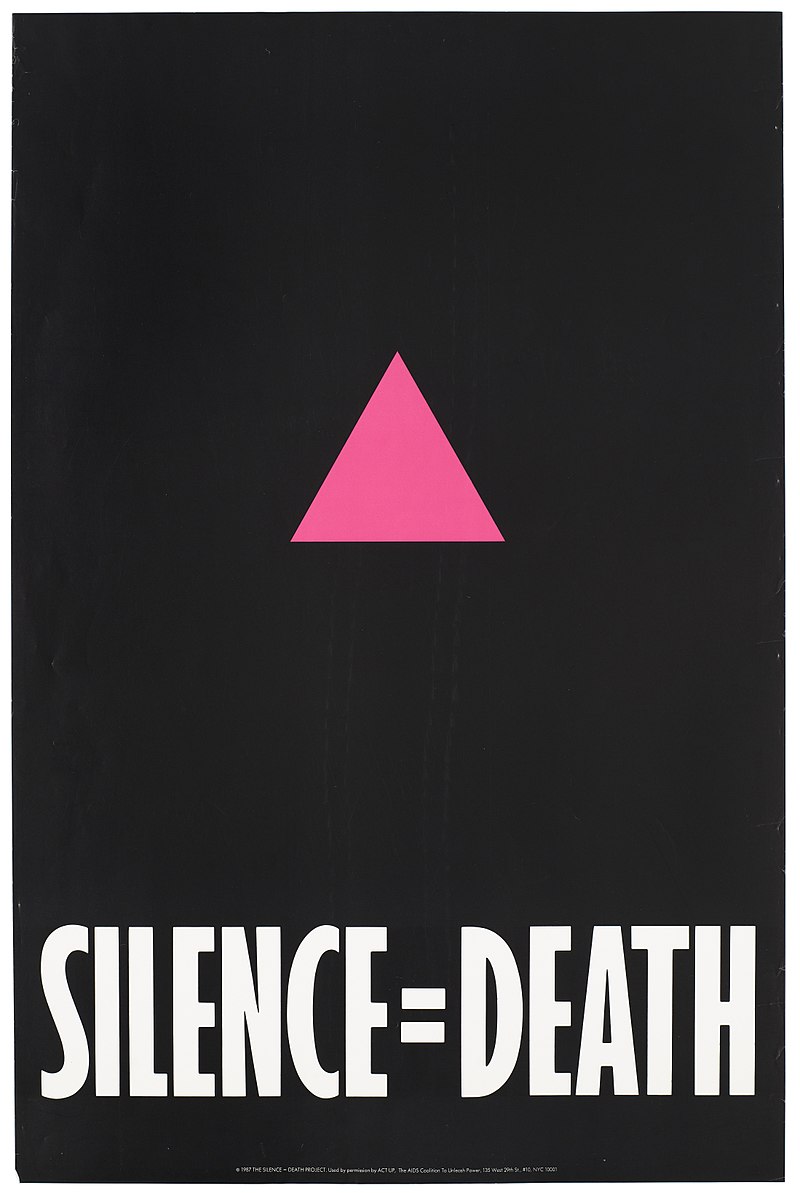
-
6 March 2018 Sami Schalk Coming to Claim Crip: Disidentification with/in Disability Studies (2013)
Download Abstract: This creative-critical paper combines creative non-fiction and theory to trace one non-disabled scholar’s personal experience with disability studies as a field and a community. Using disidentification and crip theory, this paper theorizes the personal, political, and academic utility of identifying with crip as a nondisabled, fat, black, queer, female academic. This crip identification then undergirds and informs the researcher’s scholarship in and relationship to disability studies as a field. Specifically referencing the Society for Disability Studies dance as a potential space of cross-identification, this paper suggests that disidentification among/across/between minoritarian subjects allows for coalitional theory and politics between disability studies and other fields, particularly race/ethnic and queer/sexuality studies. Image: Sami Schalk received her MFA in Creative Writing at the University of Notre Dame, 2010.
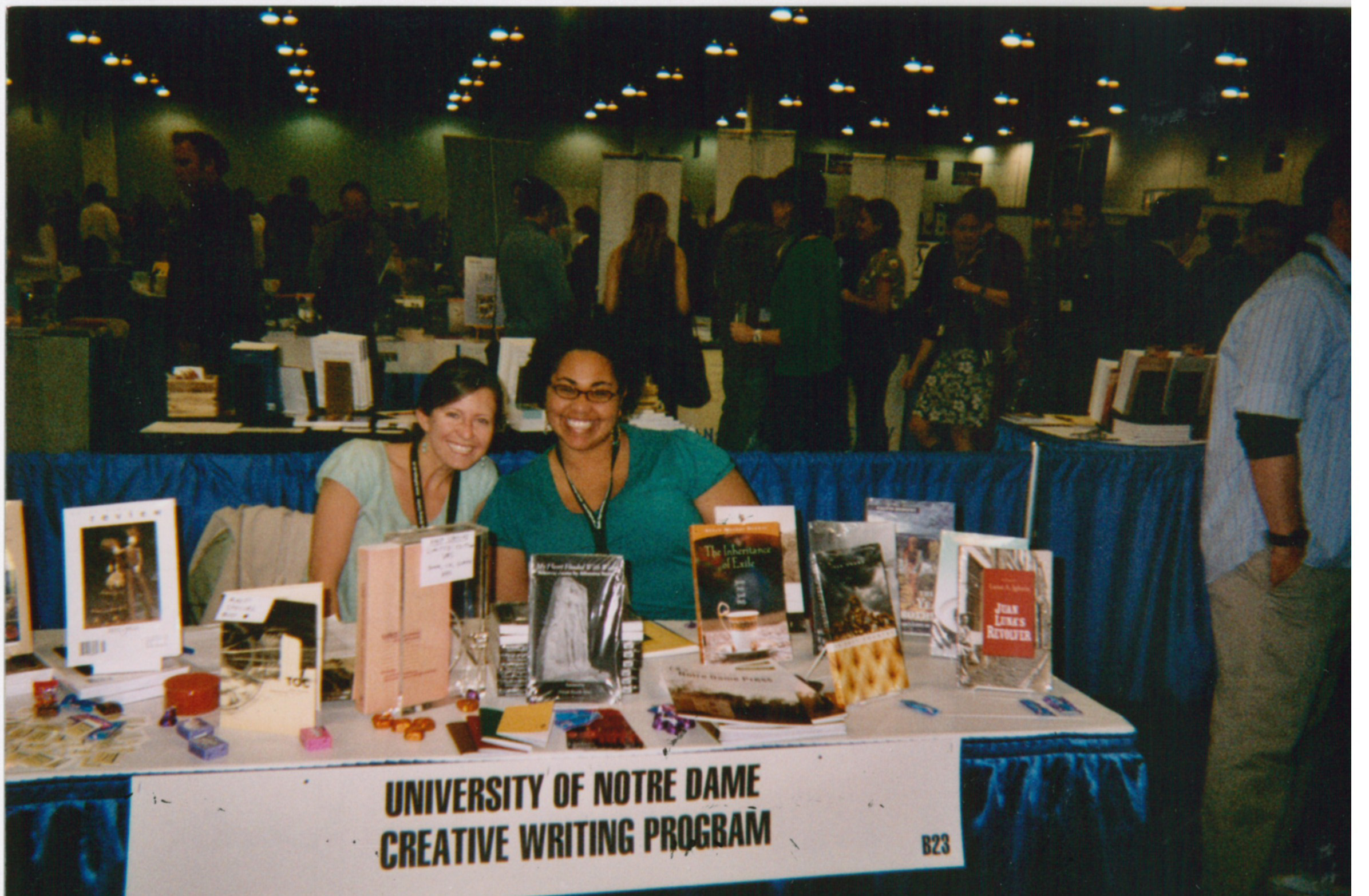
-
26 February 2018 FIELD TRIP Michelle M. Wright On Epiphenomenal Temporality: Black German Identities and Quantum Physics in the African Diaspora @ ICI Berlin
Download This talk will delve deep into the often nuanced ways our assumptions about time in the Humanities impact the epistemological formations of our discipline. Beginning with the girding structure of the linear progress narrative and finishing with what Wright dubs ‘Epiphenomenal spacetime’, her argument will intersect with contemporary and canonical formations of Blackness within and without academe while intersecting with discourses on the temporal shift from Newtonian to theoretical particle physics. Time, as Wright will show, has everything to do with the representation of racial collectives in the Western tradition. Michelle M. Wright is the Augustus Baldwin Longstreet Professor of English at Emory University. She is the author of Becoming Black: Creating Identity in the African Diaspora (2004) and Physics of Blackness: Beyond the Middle Passage Epistemology (2015). Writing through gender studies, queer studies, science studies, time studies, Black European Studies, African American Studies, and African Diaspora Studies, her work focuses on Black identity formation in both creative and academic discourses. The lecture is part of the current ICI Lecture Series ERRANS, in Time. Ideas of physical, social, revolutionary time, internal time consciousness, or historical experience are far from settled in their respective discourses and practices. Yet attempts to harmonize or correlate the understanding of time and temporal phenomena generated in different disciplines all-too quickly resort to normative, if not teleological ideas of progress, efficiency, or experiential plenitude. Can the heterogenous relations between discordant conceptions of time and temporality be understood as being ‘erratically’ structured, that is, as marked by inherent misapprehensions, a dissonance that defies regulation, and an unexpected variability?
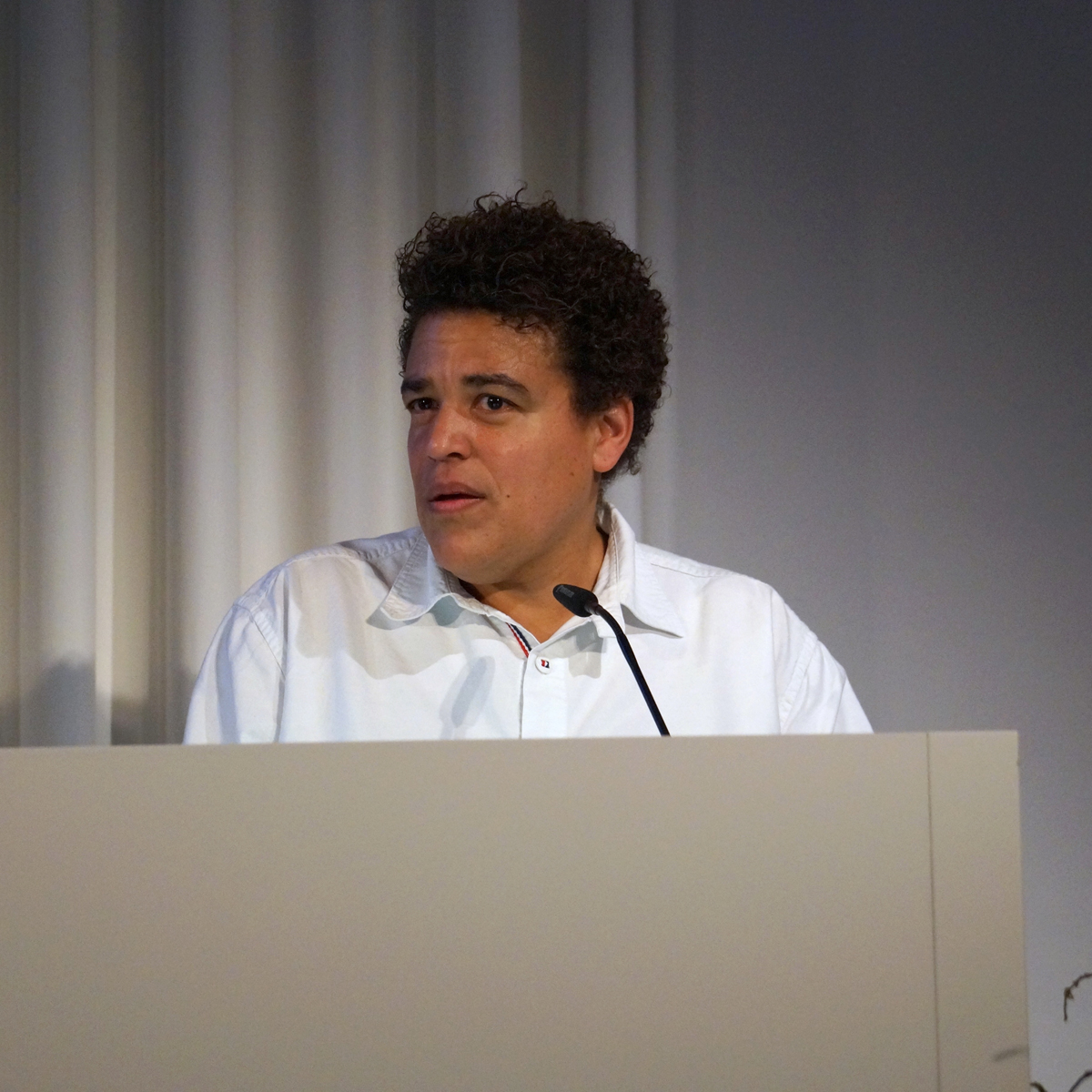
-
20 February 2018 Hortense Spillers Mama’s Baby, Papa’s Maybe: An American Grammar Book (1987) + “Whatcha Gonna Do?” Revisiting “Mama’s Baby, Papa’s Maybe: An American Grammar Book” (2007) A conversation with Hortense Spillers, Saidiya Hartman, Farah Jasmine Griffin, Shelly Eversley, & Jennifer L. Morgan
Download 1 Download 2 Image: Hortense Spillers in Arthur Jafa’s film “Dreams are Colder than Death”, 2013.
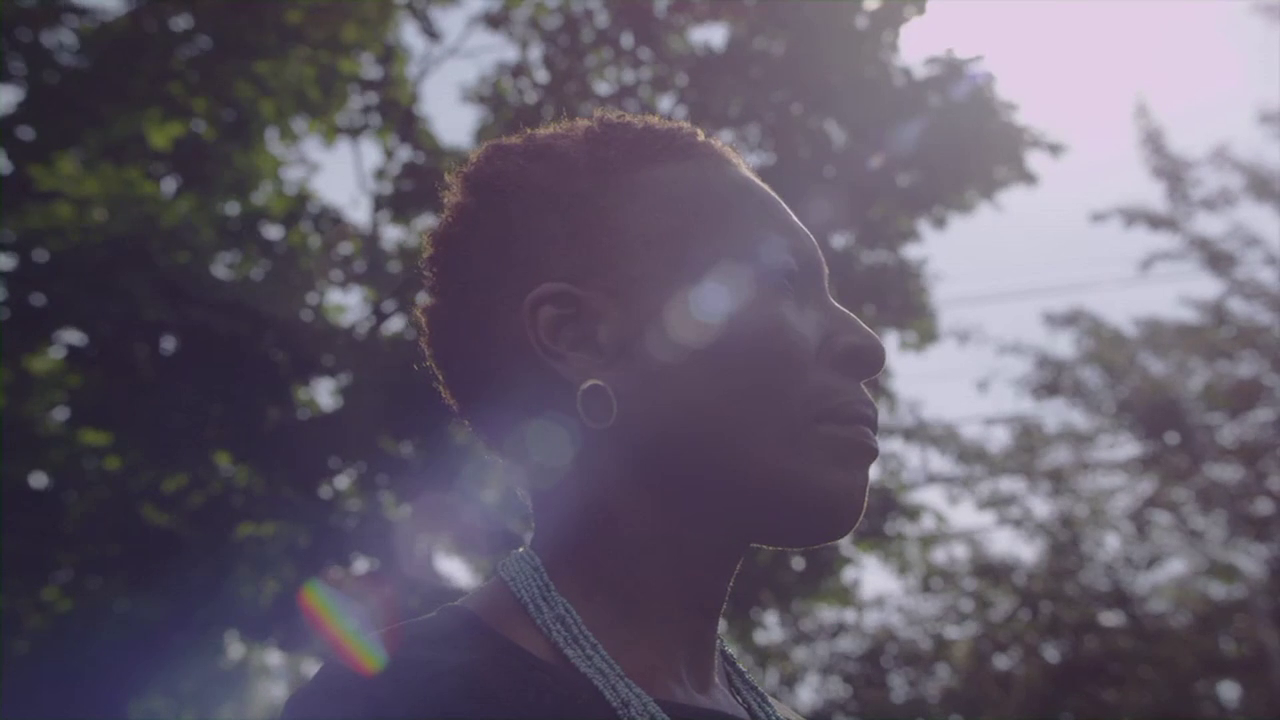
-
13 February 2018 FIELD TRIP Jessica Lauren Elizabeth Taylor Screening of Muttererde (2017) @ Kino Moviemento Berlin + Intervention // ‘Müttererde’: An Interview with Jessica Lauren Elizabeth Taylor (2017)
Download interview Screening of Jessica Lauren Elizabeth Taylor’s multi-voice video project, ‘Muttererde’, as part of Black Living Histories Month. Time: 7-9pm Location: Kino Moviemento / Kottbusser Damm 22, 10967 Kreuzberg, Berlin, Germany Tickets: 8,50€ / Special price for newcomers/refugees Muttererde calls for femme forms of ancestral history in the face of the often interrupted historical knowledge of the African diaspora in Europe and elsewhere. What are rituals, teachings and abilities passed on from our matriarchs? How do these inherited skills serve us or inhibit us today? The conversations with five black femmes on the knowledge and non-knowledge of their mothers, grandmothers, great grandmothers and as far back as the knowledge carries them create a rich and powerful archive. In collaboration with filmmaker Astrid Gleichmann featuring Camalo Gaskin, Tobi Ayedadjou, Niv Acosta, Natalie Anguezomo Mba Bikoro and Fannie Sosa. Supported by the Decentralized Cultural Work Tempelhof-Schöneberg and A Prima Vista Filmproduktion. ///////DEUTSCH/////// Im Angesicht des lückenhaften historischen Wissens der afrikanischen Diaspora in Europa und anderswo ruft Müttererde weib*liche und nicht-binäre Formen der Ahnengeschichte auf. Welche Rituale, Lehren und Fähigkeiten haben unsere Matriarchen weitergegeben? Wie können uns ihre Lebensweisen und Techniken heute nutzen? Inwiefern hemmt uns dieses Vermächtnis? Im Gespräch mit sechs schwarzen Frau*en geht es um das, was sie über ihre Mütter, Großmütter, Urgroßmütter und Ururgroßmütter wissen oder nicht wissen, so weit zurück wie sie die Erinnerung trägt. Aus den Erzählungen entsteht ein weitreichendes und fruchtbares Archiv. In Zusammenarbeit mit Astrid Gleichmann featuring Camalo Gaskin, Tobi Ayedadjou, Niv Acosta, Natalie Anguezomo Mba Bikoro und Fannie Sosa. Mit freundlicher Unterstützung durch Dezentrale Kulturarbeit Tempelhof-Schöneberg und A Prima Vista Filmproduktion. Image: Poster for ‘Müttererde’ / Photo by Mayowa Osinubi
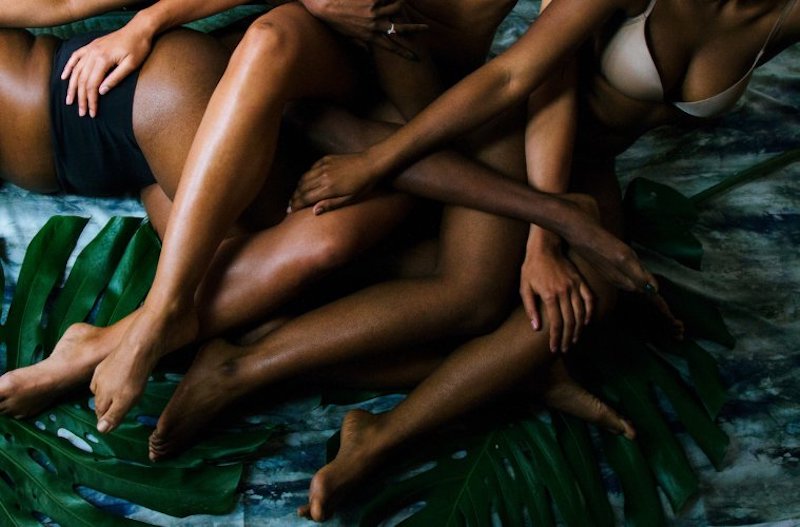
-
6 February 2018 Paul B. Preciado Letter from a trans man to the old sexual regime (2018)
Download Image: Matthias Hamann, “Kleid”, 2008
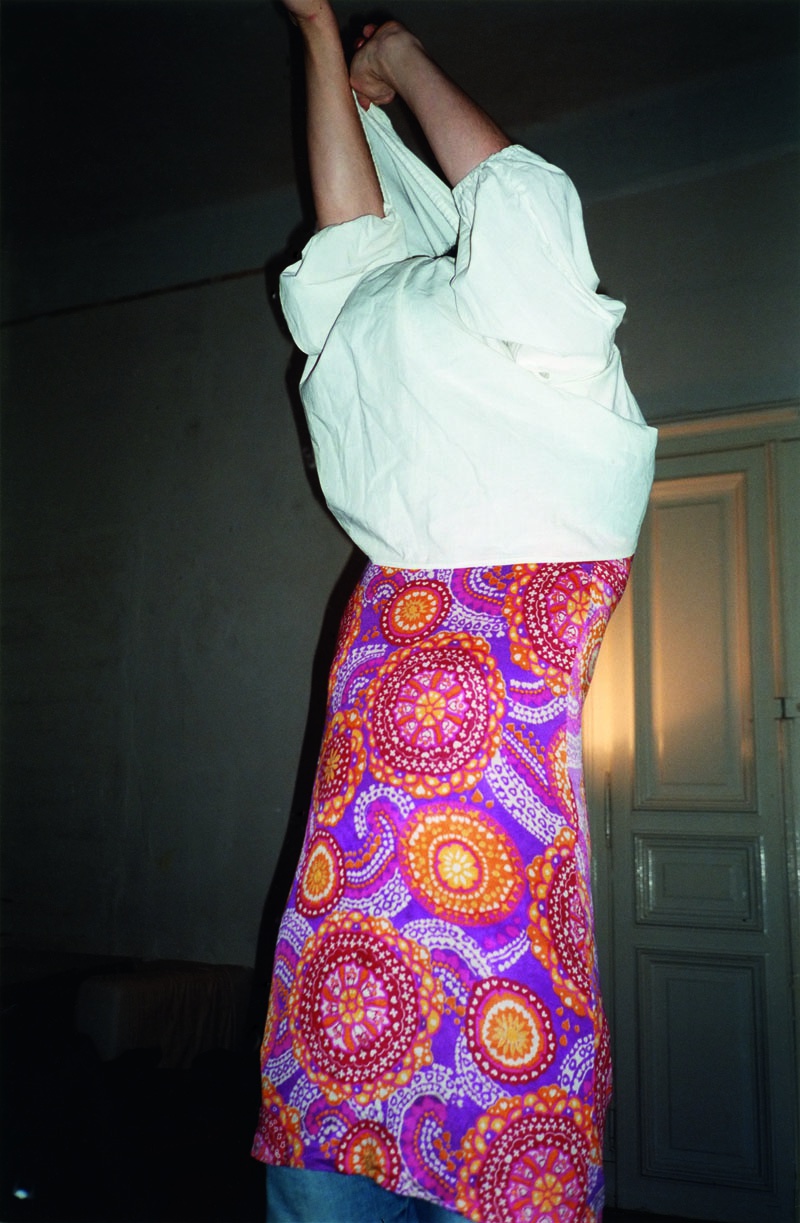
-
30 January 2018 Andrea Long Chu On Liking Women (2018)
Download Published in n+1 30 (Winter 2018) “The Society for Cutting Up Men is a rather fabulous name for a transsexual book club.” “What’s striking is not Solanas’s revolutionary extremism per se, but the flippancy with which she justifies it. Life under male supremacy isn’t oppressive, exploitative, or unjust: it’s just fucking boring. For Solanas, an aspiring playwright, politics begins with an aesthetic judgment. This is because male and female are essentially styles for her, rival aesthetic schools distinguishable by their respective adjectival palettes. Men are timid, guilty, dependent, mindless, passive, animalistic, insecure, cowardly, envious, vain, frivolous, and weak. Women are strong, dynamic, decisive, assertive, cerebral, independent, self-confident, nasty, violent, selfish, freewheeling, thrill-seeking, and arrogant. Above all, women are cool and groovy.” For reference: Download S.C.U.M. Manifesto (Society for Cutting Up Men) by Valerie Solanas (1967) Image: Mae Elvis Kaufman, “Chuckles.” 2014. Digital Photograph. Courtesy of the artist.
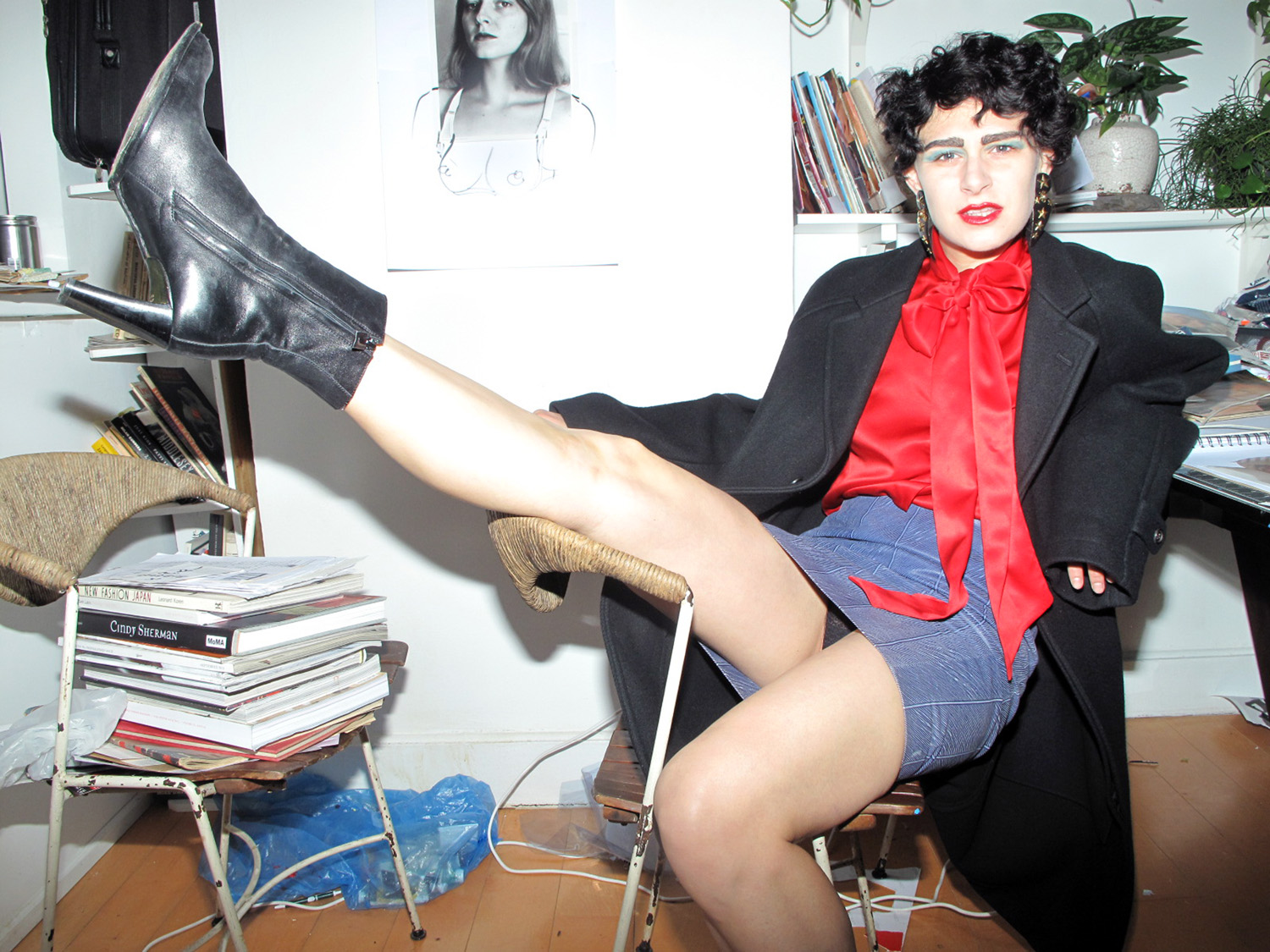
-
23 January 2018 Eileen Myles Peanut Butter (1991) Therapy (2007) Eileen (2000) film by Cecilia Dougherty
Download Eileen (2000) by Cecilia Dougherty https://vimeo.com/28244303/ A portrait of poet Eileen Myles as she reads from her novel “Cool For You” and goes about the day in her East Village pad. Features the excellent pooch, Rosie, as well as music by Azalia Snail and by The Butchies. Image: “Polaroid camera test #2 of Eileen Myles” (September 2016), Fuji instant 3000b black-and-white film (photo by Gail Thacker)

2017
-
21 November 2017 Jack Halberstam Dude, Where’s My Phallus? Forgetting, Losing, Looping Chapter 2 from The Queer Art of Failure (2011)
Download p. 53-86 or as much as you can read About: The Queer Art of Failure is about finding alternatives—to conventional understandings of success in a heteronormative, capitalist society; to academic disciplines that confirm what is already known according to approved methods of knowing; and to cultural criticism that claims to break new ground but cleaves to conventional archives. Halberstam proposes “low theory” as a mode of thinking and writing that operates at many different levels at once. Low theory is derived from eccentric archives. It runs the risk of not being taken seriously. It entails a willingness to fail and to lose one’s way, to pursue difficult questions about complicity, and to find counterintuitive forms of resistance. Tacking back and forth between high theory and low theory, high culture and low culture, Halberstam looks for the unexpected and subversive in popular culture, avant-garde performance, and queer art. Halberstam pays particular attention to animated children’s films, revealing narratives filled with unexpected encounters between the childish, the transformative, and the queer. Failure sometimes offers more creative, cooperative, and surprising ways of being in the world, even as it forces us to face the dark side of life, love, and libido.
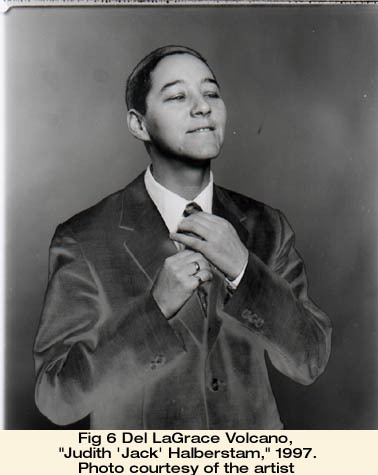
-
14 November 2017 Joan Nestle Butch-Fem Relationships: Sexual Courage in the 1950s (1981)
-
24 October 2017 Robin DiAngelo White Fragility (2011)
Download Image: From https://www.facebook.com/ajplusenglish/videos/786655684809274/
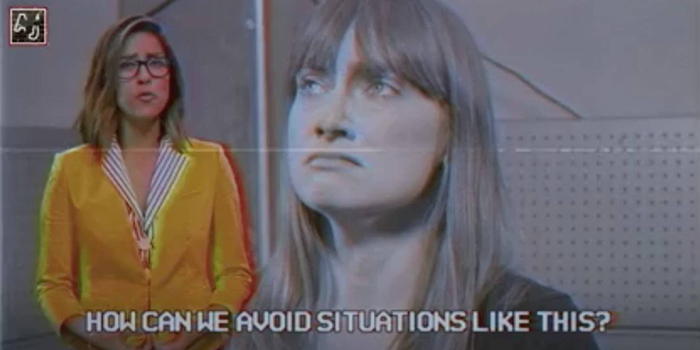
-
17 October 2017 Lisa Duggan & José Esteban Muñoz Hope and hopelessness: A dialogue (2009)
-
10 October 2017 Billy-Ray Belcourt, George Dust & Kay Gabriel, interviewed by Lou Cornum Top or Bottom: How do we desire? (2017)
Download What do queer memes of a top shortage reveal about the racialized orders of desire and new directions for gay critique? In June 2017, The New Inquiry’s Lou Cornum brought together three writers to discuss what’s really going on in queer lamentations of a top shortage.
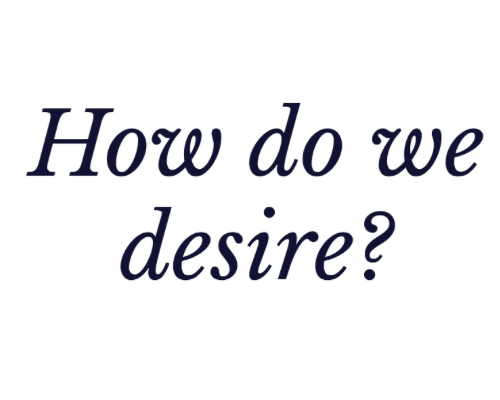
-
3 October 2017 Samuel R. Delany Times Square Red, Times Square Blue (1999) Part 1: Times Square Blue
Download p. 3 – 31

-
22 August 2017 Jane Ward Not Gay: Sex between Straight White Men (2015) Introduction: Nowhere Without It: The Homosexual Ingredient in the Making of Straight White Men
-
15 August 2017 Queer Studies, Materialism, and Crisis: A Roundtable Discussion (2012) With Christina Crosby, Lisa Duggan, Roderick Ferguson, Kevin Floyd, Miranda Joseph, Heather Love, Robert McRuer, Fred Moten, Tavia Nyong’o, Lisa Rofel, Jordana Rosenberg, Gayle Salamon, Dean Spade, & Amy Villarejo
Download Published in Queer Studies and the Crises of Capitalism, GLQ: A Journal of Lesbian and Gay Studies (Vol. 18) (2012) Image: Zine title: Personality Liberation Front Image/zine author: Kylie Lewis / Personality Liberation Front http://www.grassrootsfeminism.net/cms/node/1103 Interview with Kylie Lewis http://grrrlzines.net/interviews/personalityliberation.htm
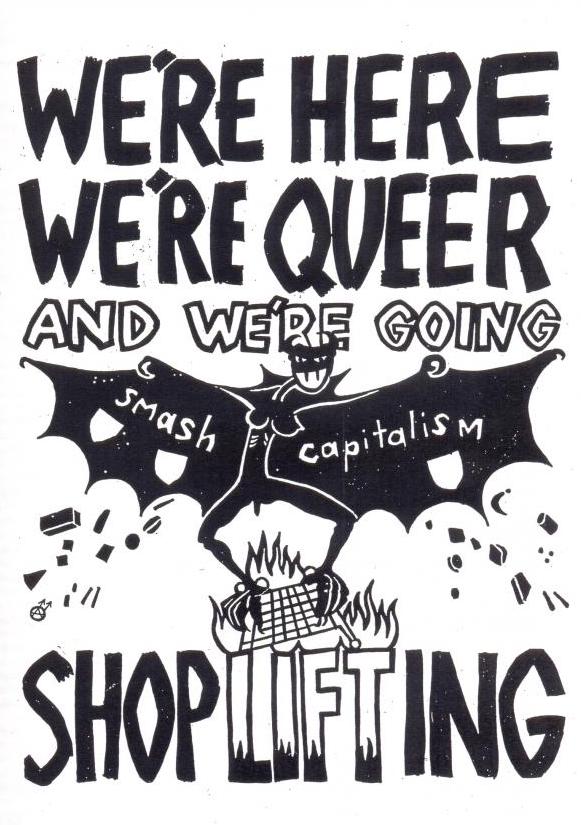
-
8 August 2017 Octavia Butler Speech Sounds (1983)
Download The short story ‘Speech Sounds’ was first published in Asimov’s Science Fiction Magazine in 1983. It won Butler her first Hugo Award for Best Short Story in 1984. The story was subsequently collected in Butler’s anthology ‘Bloodchild and Other Stories’ and in the science fiction anthology ‘Wastelands: Stories of the Apocalypse’. Image: Large card of notes written by Octavia E. Butler for her novel Parable of the Talents, ca. 1996. Octavia E. Butler papers. The Huntington Library, Art Collections, and Botanical Gardens. © Estate of Octavia E. Butler.
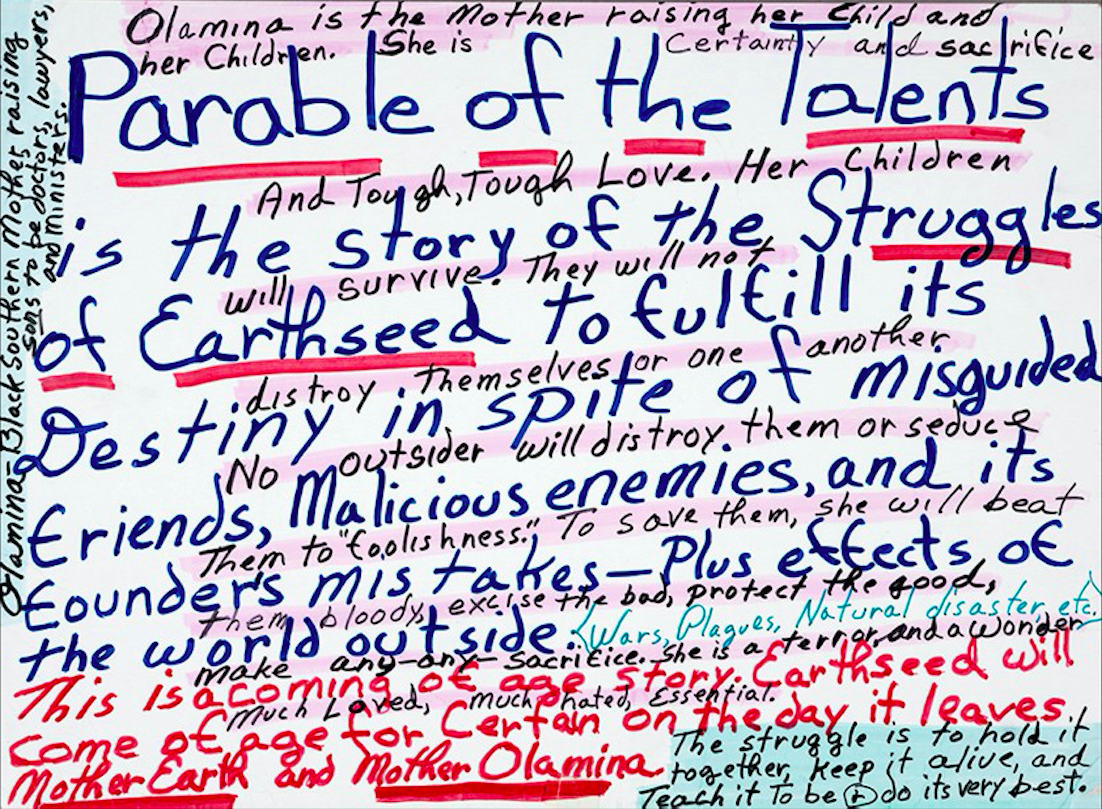
-
1 August 2017 Interview with Michel Foucault Friendship as a Way of Life (1981)
Download Interview for the French magazine Gai Pied
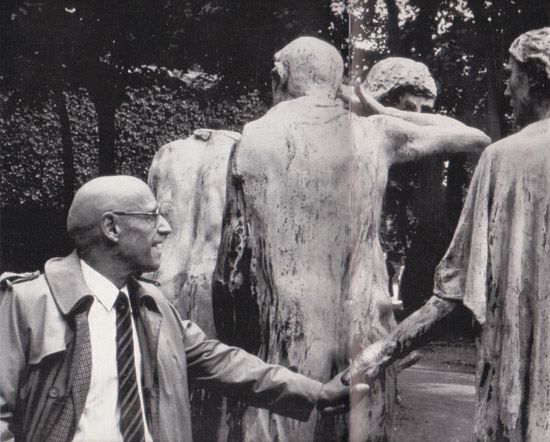
-
25 July 2017 José Esteban Muñoz “The White to be Angry”: Vaginal Creme Davis’s Terrorist Drag From Disidentifications: Queers of Color and the Performance of Politics (1999)
-
4 July 2017 Dana Luciano & Mel Y. Chen Has the Queer Ever Been Human? Introduction from Queer Inhumanisms – GLQ: A Journal of Lesbian and Gay Studies (2015)
Download p. 182 – 207 Image: Laura Aguilar, Grounded #114, 2006
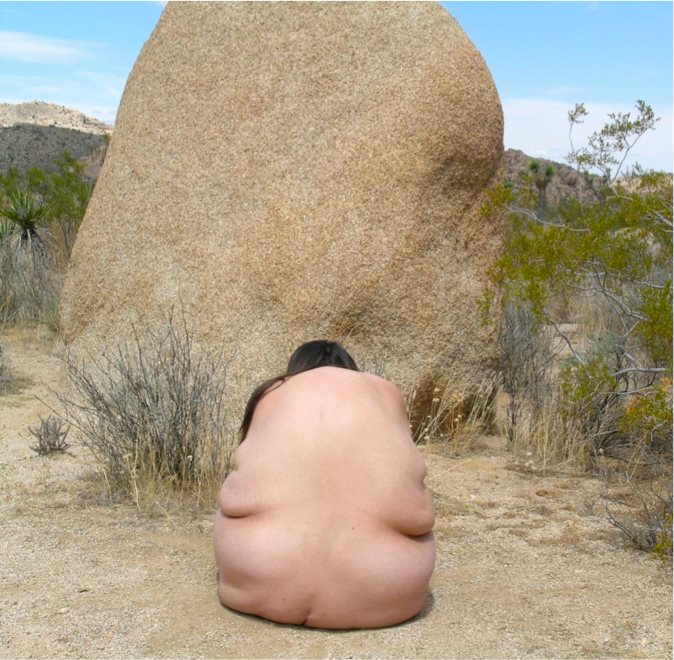
-
11 July 2017 Valentine de Saint Point The Manifesto of Futurist Woman (Response to F. T. Marinetti) (1912)
-
18 July 2017 Sara Ahmed In the Name of Love (2003)
-
28 June 2017 FIELD TRIP Wendy Brown Democracy under Attack: Apocalyptic Populism @ Haus der Kulturen der Welt, Berlin
-
27 June 2017 FIELD TRIP Fatima El-Tayeb “German” and “Ungerman”: Racial Crisis as the New Normal in the United Germany @ Humboldt-Universität zu Berlin, Kinosaal
Download Image: Everything Will Be Fine (Alles Wird Gut) written by Fatima El-Tayeb and Angelina Maccarone, directed by Angelina Maccarone, 1997, Germany.
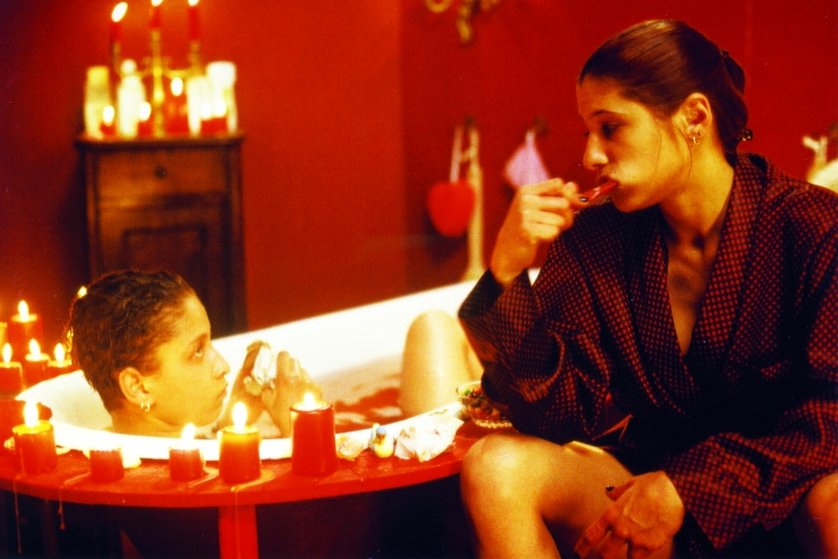
-
20 June 2017 Sophie Lewis Cthulhu plays no role for me (2017)
Download Image: Still from Fabrizio Terranova’s Donna Haraway: Storytelling for Earthly Survival (2016)
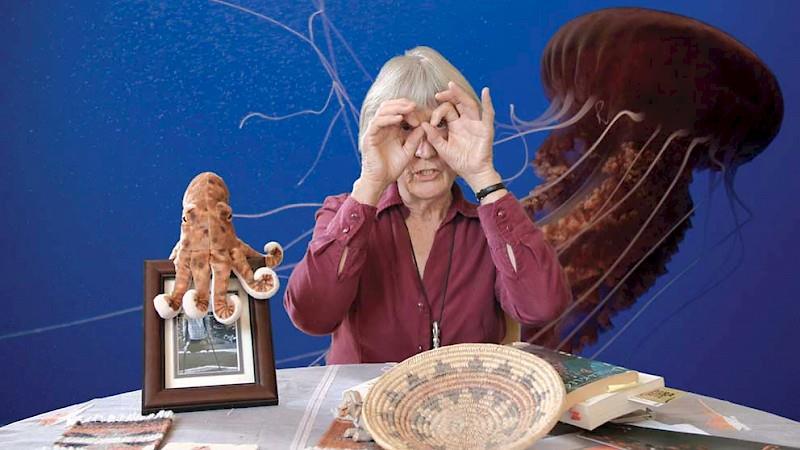
-
7 March 2017 Exhibition catalogue: We shout and shout, but no one listens: Art from conflict zones (2017) Frederikke Hansen & Tone Olaf Nielsen (CAMP’s directors) Introduction + Judith Butler Grievability + Nicholas Mirzoeff Walls
Download Introduction (p. 7-9) Grievability (p. 13-19) Walls (p. 22-25)
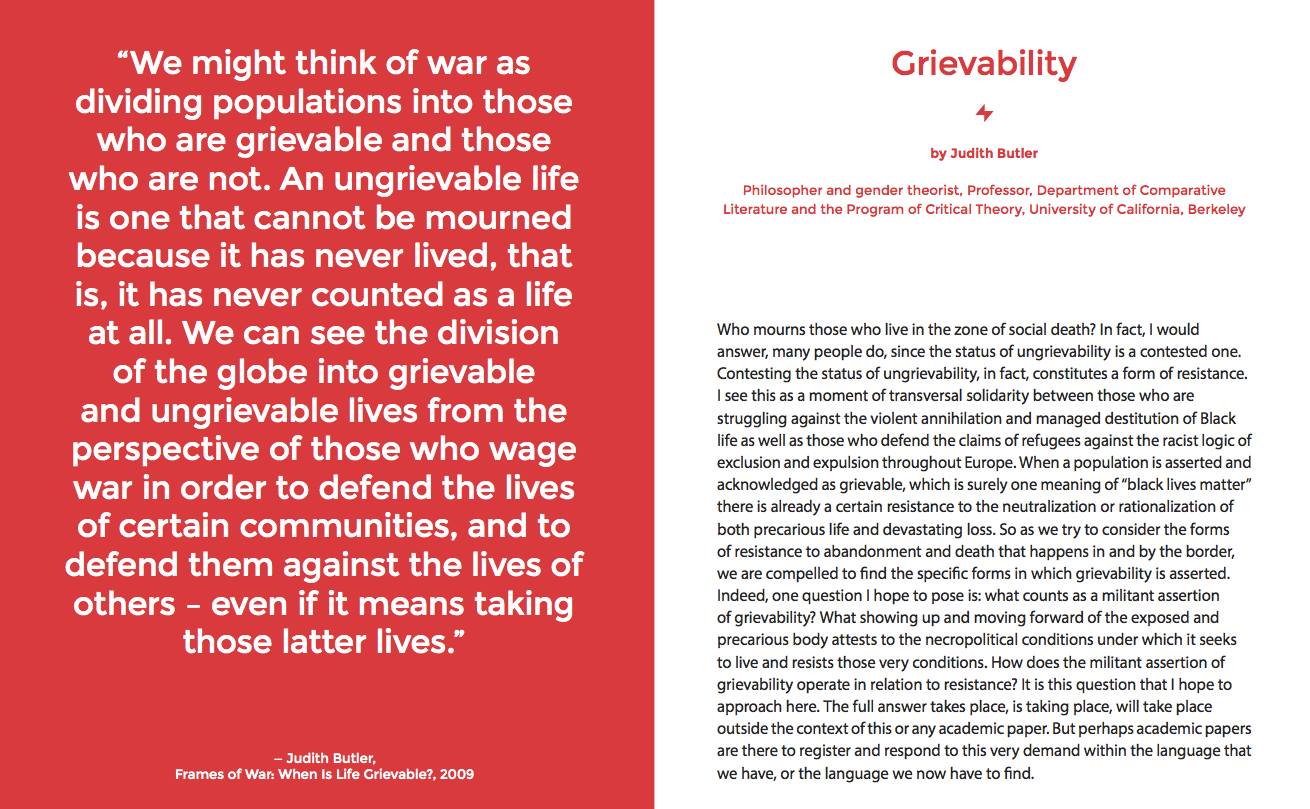
-
27 February 2017 Roderick A. Ferguson A Special Place within the Order of Knowledge: The Art of Kara Walker and the Conventions of African American History (2009)
Download *Note: We are meeting MONDAY instead of Tuesday this week! Image: Kara Walker
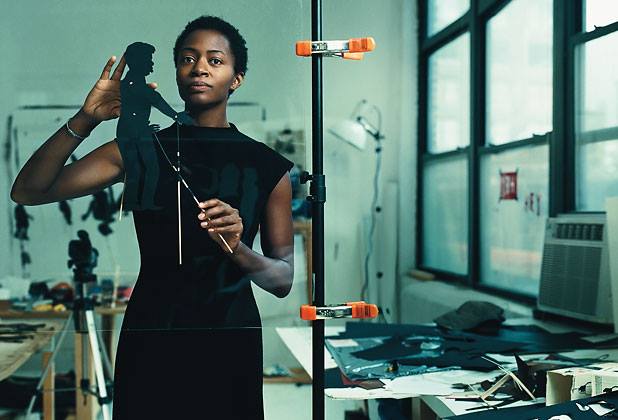
-
21 February 2017 bell hooks Belonging: A Culture of Place (2008) Chapter 13: A Place Where The Soul Can Rest
Download p. 143 – 152
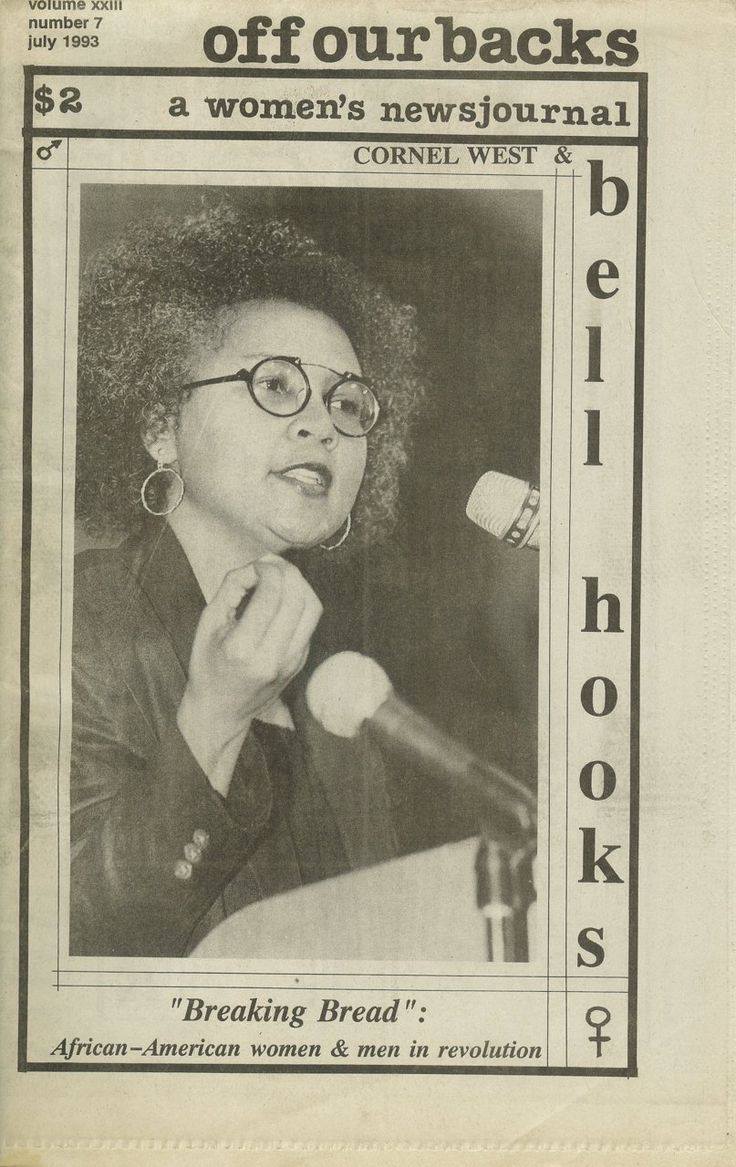
-
14 February 2017 FIELD TRIP Black in Berlin presents Inconvienent Narratives: A Writers of Color Reading Night @ Curious Fox Books, Neukölln, Berlin
Image: Illustration by Tactile Matter’s Kenesha Sneed
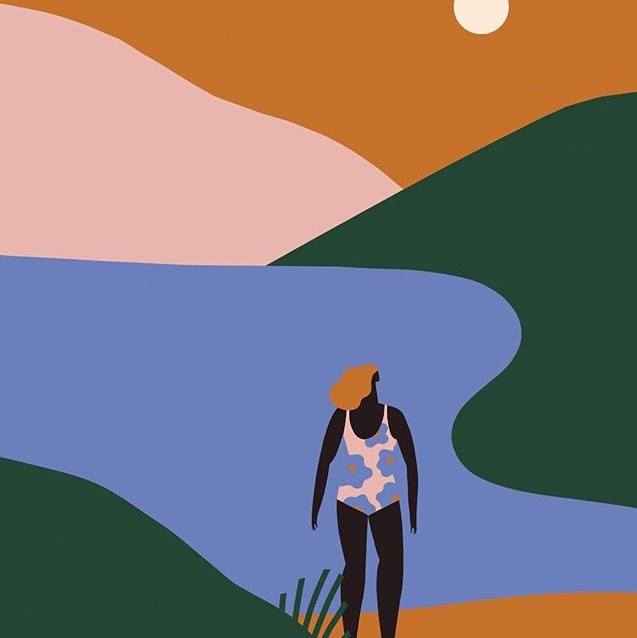
-
7 February 2017 Interviews with Angela Y. Davis Abolition Democracy: Beyond Empire, Prisons, and Torture (2005)
Download Sexual Coercion, Prisons, and Feminist Responses, p. 49 – 76 + Introduction by Eduardo Mendieta if you have time, p. 7-18 Image: San Jose, Calif.: Angela Davis, militant on trial for alleged activities in connection with Marin County Court shootout, attends her first news conference since being released on bail, February 24th, 1972. © Bettmann/CORBIS. http://sfaq.us/2016/06/angela-davis-the-meaning-of-freedom//
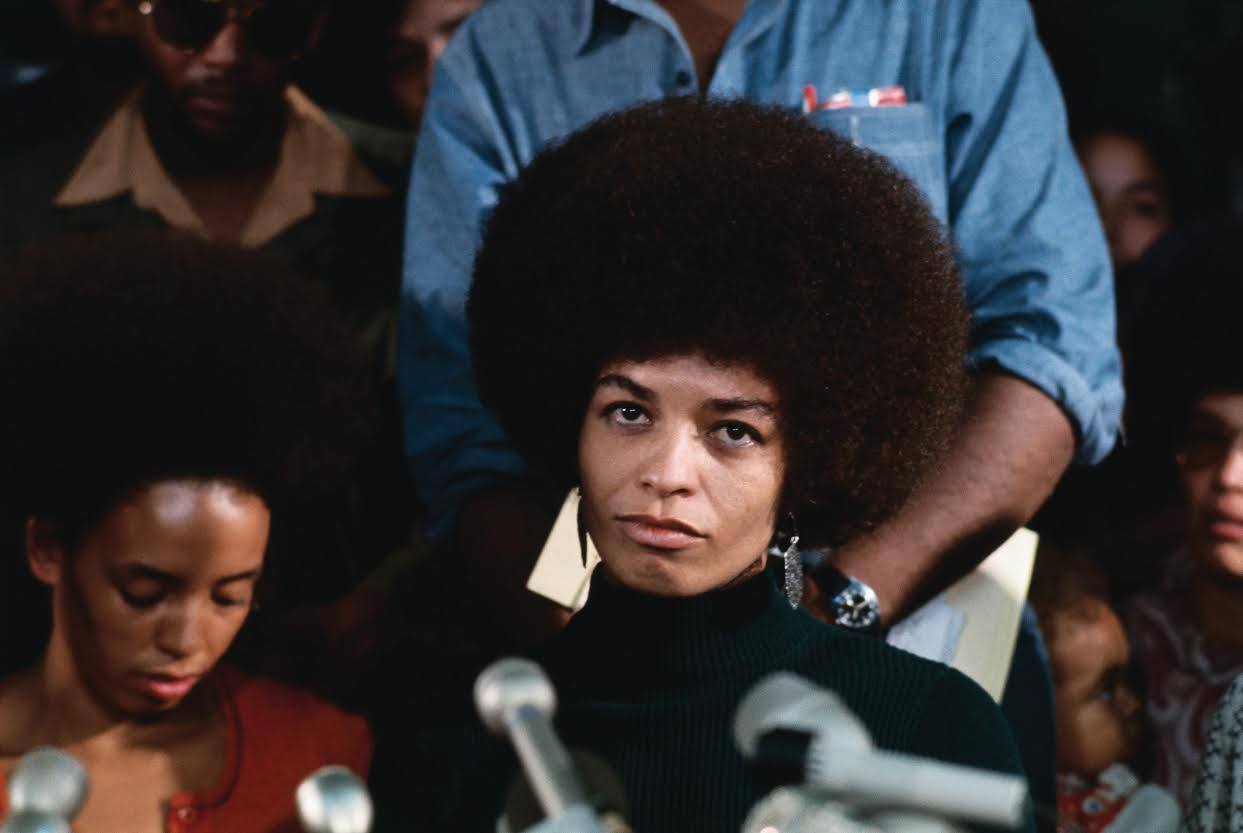
-
31 January 2017 Susan Sontag Illness as Metaphor (1978) Chapters 1 – 3
Download Image: Susan Sontag from Annie Leibovitz’s book A Photographer’s Life, 1990-2005
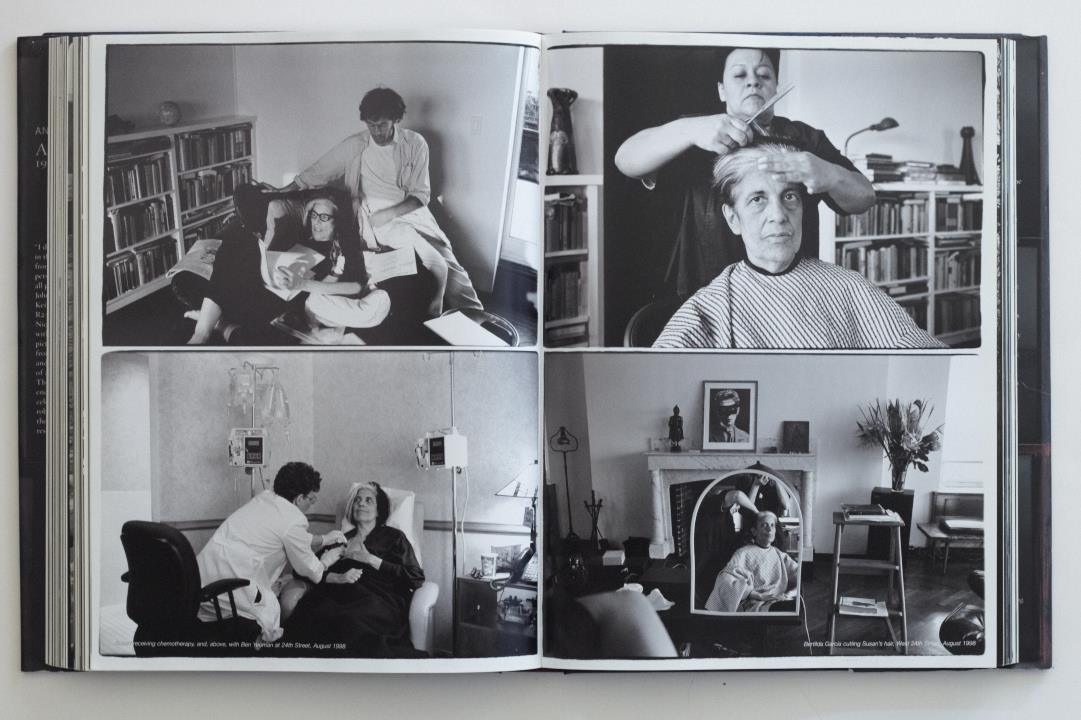
-
24 January 2017 RESOURCE SESSION Public Talks Initiated by Mason Leaver-Yap
QTRGer Mason Leaver-Yap shared a recent experience they had with an audience after giving a public lecture. Starting with Mason’s account, we’d like to engage in conversation and learn from one another about tools for public speaking from the margins and the responsibilities, ethics, and boundaries associated with constantly having to assume the role of educator. The sharing of practical information, texts and anecdotal support regarding effective forms of managing similar situations is welcomed and encouraged. There is no reading required for this week’s session. SUMMARY (compiled by Mason Leaver-Yap after the session) This session dealt with the question of how to respond to conflict within public Q&A formats, and focused specifically on how speakers can effectively respond to audience questions that may be distracting, off-topic, aggressive, and may be implicitly or explicitly abusive. We talked about the various roles of people involved, as well as the responsibilities each might have towards one another, especially minority groups. These roles were identified as: speaker, audience member asking the question, audience member listening to the question, and moderator. We additionally touched on whether conflict within Q&As could have a useful, informative or negative impact on debates, and discussed the importance of speaking to conflict (see Wendy Brown link at end). Being mindful of and responding to manipulative dialogue can be incredibly difficult in public situations, and difficult to pinpoint in the moment. Humiliation either of a speaker or indeed a questioner is an aggressive outcome. Speakers should endeavour to avoid shaming but nonetheless produce robust responses to aggressive and/or abusive lines of questioning. The group outlined the following strategies for speakers: – Discuss your concerns about dealing with potentially difficult questions with the moderator in advance of the talk. This could include suggesting a united front on the issue; asking for the moderators to step in at a certain moment; or calling upon them during the Q&A. – Set the tone for the discussion at the beginning of the Q&A session. Ask for respectful lines of questioning, and/or request sensitivity with regard to specific topics that may be particularly upsetting or have a personal impact on those in the audience. – Refuse to answer the question. We’ve all been at talks where an audience monologue may have little to do with the content of the discussion. The refusal can take a number of forms, though moderators and speakers can cut off the question with or without reasoning. This was recently seen at a Nora Chipaumire post-performance Q&A where an exoticizing question from the audience was met with the speaker responding “Fuck. That.” – Deflect the question back to the questioner. Ask the questioner to clarify. As the speaker, you will have more time to consider their argument, they have more space to speak fully. Though if the question is spurious or offensive you may need to revert to the above. – Deflect the question to the audience, and invite them to respond to the question at hand. You may want to do this for a number of reasons. Perhaps it is worth involving different voices and points of view, and it is often useful to open up the discussion to involve the room. If the question is something you don’t feel you can answer, but also would like to hear a response yourself, either speaker or moderator can ask if there are immediate thoughts or responses from the audience members who may want to comment or attempt to answer that question. – Take multiple questions at once. This was a suggestion in response to a recent lecture where Gayatri Spivak asked for five questions at once. Taking multiple questions at once, perhaps making notes in order to return to them, often allows the speaker to synthesise parts of questions without having to perform the notion that the Q&A is a one-on-one dialogue with one audience member after another. This can be useful for effective time-keeping, but also allows inappropriate questions to be put into the larger context of what a broader number of audience members think. FURTHER READING Suzette Haden Elgin in “The Gentle Art of Verbal Self-Defense: An Overview” https://www.scribd.com/doc/78998622/Suzette-Elgin-The-Gentle-Art-of-Verbal-Self-Defense-Overview “Just as there is a grammar of English for such things as word endings and the order of words in sentences, there’s a grammar of English for verbal violence and verbal self-defense. All native speakers of English know this grammar flawlessly, although many factors—stress, nervousness,illness, lack of time, and the like—interfere with their demonstration of that flawless knowledge.The problem is that the information is not available at a level of conscious awareness, and people therefore cannot conveniently make use of it. The Gentle Art system is designed to help correct this problem and to make it clear that every human being is an expert in the use of his or her language.” bell hooks’ approach to dealing with Q&A at the end of the Jill Soloway talk, “Ending Domination: The Personal is Political”, The New School Kyla Wazana Tompkins, “We Aren’t Here To Learn What We Already Know”
We Aren’t Here to Learn What We Already Know
“What is a good question? And, how do we teach students to work at writing good questions?” Wendy Brown, “States of Injury: Power and Freedom in Late Modernity” https://libcom.org/files/Wendy_Brown_States_of_Injury_Power_and_Freedom_in_Late_Modernity__1995.pdf “Whether one is dealing with the state, the Mafia, parents, pimps, police, or husbands the heavy price of institutionalized protection is always a measure of dependence and agreement to abide by the protector’s rules.” Image: Artemisia Gentileschi, Judith Slaying Holofernes (1620–1621)
-
17 January 2017 Sarah Schulman Conflict Is Not Abuse: Overstating Harm, Community Responsibility, and the Duty of Repair (2016) Part 2 – Chapter 6: Manic Flight Reaction: Trigger + Shunning
Download Chapter 6: Manic Flight Reaction: Trigger + Shunning, p. 96 – 109 of the PDF Optional addition: Chapter 1: In Love: Conflict is not Abuse, p. 22 – 32 of the PDF
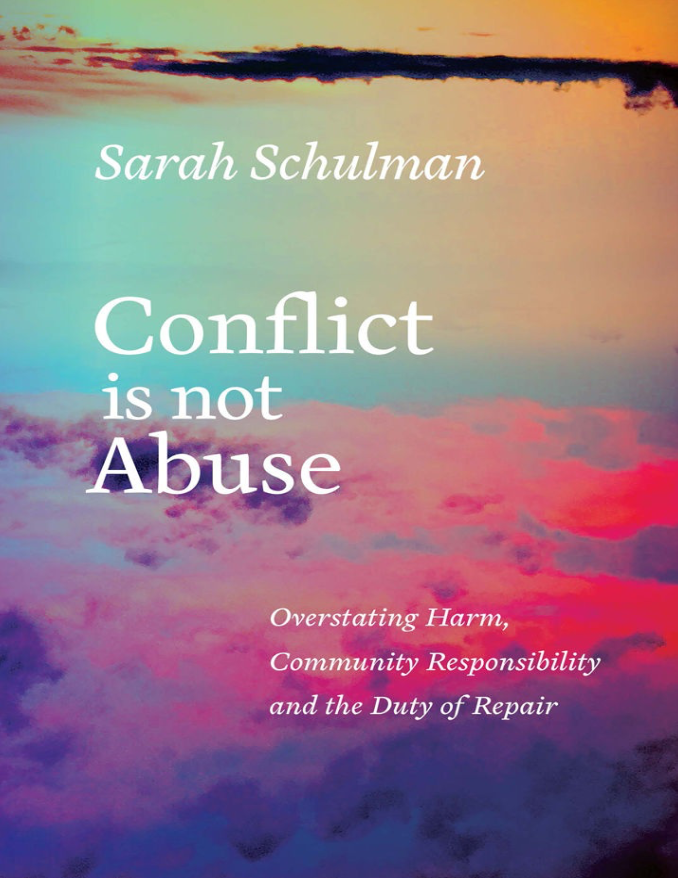
-
10 January 2017 Sarah Schulman Conflict Is Not Abuse: Overstating Harm, Community Responsibility, and the Duty of Repair (2016) Part 1 – Introduction: A Reparative Manifesto
Download Introduction: A Reparative Manifesto, p. 11 – 20 of the PDF

2016
-
15 November 2016 James Baldwin, Zoe Leonard, Fred Moten & Dionne Brand Selected poems + essay
Download After an incredibly difficult week, and in light of the weeks, months and years to come, as well as those that have past, we want to come together this Tuesday to read the work of writers, poets and artists for whom the struggle for justice is nothing new. We want to gather together to see one another, hold space for one another and read select works by James Baldwin, Zoe Leonard, Fred Moten, and Dionne Brand. We invite you to join us to (re)consider how we might collectively use these writings as fuel and guidance to move forward in the ongoing struggle against racist, fascist, sexist, right-wing political regimes. Image: Mykki Blanco recites I Want A Dyke For President by Zoe Leonard in a Dazed film directed by Adinah Dancyger. http://www.dazeddigital.com/music/article/33096/1/watch-mykki-blanco-read-i-want-a-dyke-for-president/
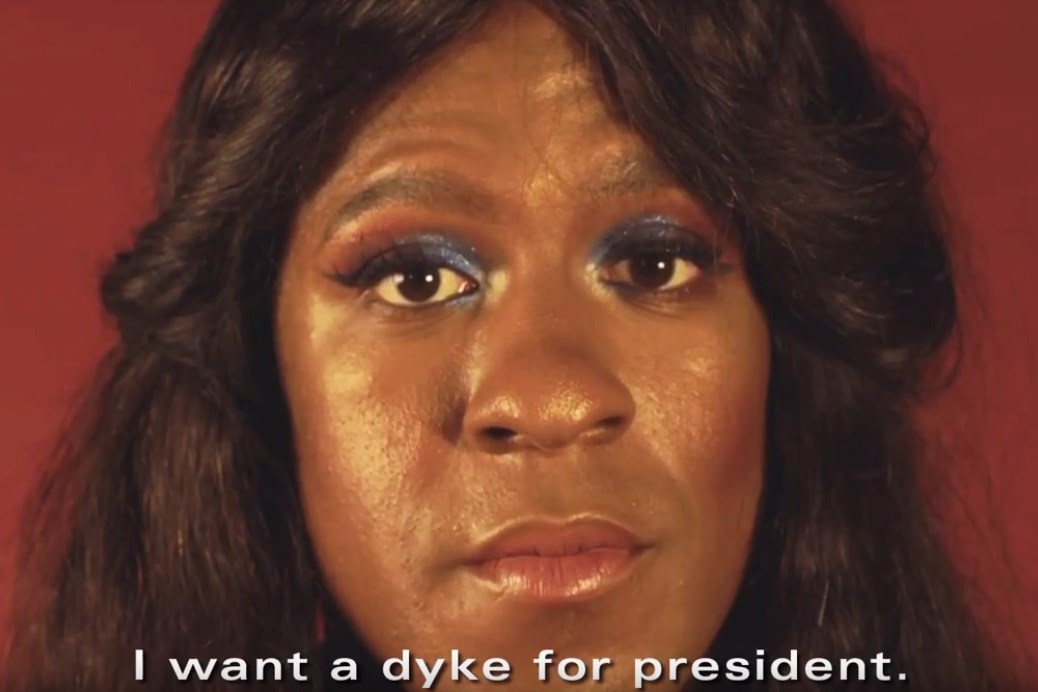
-
8 November 2016 FIELD TRIP Nilüfer Göle Art in the (Un)Making of European Public Space: Islam in Controversy @ ICI Berlin
Download About: In her recently translated book Europäischer Islam: Muslime im Alltag, (Wagenbach Verlag), Nilüfer Göle discusses the role of the public sphere in framing the Islamic presence in Europe. Based on four years of fieldwork in 21 European Cities, this survey gives voice to Muslims involved in public controversies around halal, the veil, the construction of mosques, circumcision, and sacred values. The author argues that the visibility of Islam has become a source of public dissent and debate through which identities have shifted, creative forms of sharing appear, indicating the emergence of a new public civic culture. The talk discusses the role of art in relation to representations of Islam and Muslim culture in Europe, and the place of art in public controversies. Nilüfer Göle traces the struggles concerning Muslim identity and representation in the sphere of art and the shifting meaning of art from Muslim perspectives. Nilüfer Göle is Professor of Sociology at École des Hautes Études en Sciences Sociales (EHESS) in Paris. She has taught at the University of Michigan, MIT, the New School, and was a Fellow at the Wissenschaftskolleg Berlin. She is the author of Interpénétrations: L’Islam et l’Europe (2005), Anverwandlungen. Der Islam in Europa zwischen Kopftuchverbot und Extremismus, (2008), and Islam and Secularity: The Future of Europe’s Public Sphere (2015). Naika Foroutan is Professor for Integration Studies and Social Policy at the Humboldt Universität zu Berlin and Assistant Director of the Berlin Institute for Integration and Migration Research (BIM). Her research focuses on topics of migration and post-migrant societies, transformations of developing countries, and discourses of Islam and Muslim life in Germany. She is board member of the Council on Migration (Rat für Migration). Moderated by Naika Foroutan Organized by Wagenbach Verlag in collaboration with ICI Berlin Image: Nilüfer Göle sur les marches de son atelier de travail EuroPublicIslam en 2011, photographiée par Marie Ozanne. https://nilufergole.wordpress.com/
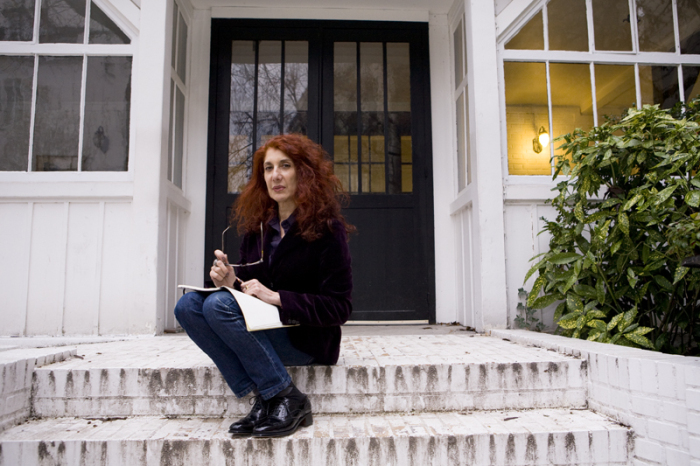
-
1 November 2016 Christina Sharpe In the Wake: On Blackness and Being (2016) Chapter 1: The Wake
Download About: In this original and trenchant work, Christina Sharpe interrogates literary, visual, cinematic, and quotidian representations of Black life that comprise what she calls the “orthography of the wake.” Activating multiple registers of “wake”—the path behind a ship, keeping watch with the dead, coming to consciousness—Sharpe illustrates how Black lives are swept up and animated by the afterlives of slavery, and she delineates what survives despite such insistent violence and negation. Initiating and describing a theory and method of reading the metaphors and materiality of “the wake,” “the ship,” “the hold,” and “the weather,” Sharpe shows how the sign of the slave ship marks and haunts contemporary Black life in the diaspora and how the specter of the hold produces conditions of containment, regulation, and punishment, but also something in excess of them. In the weather, Sharpe situates anti-Blackness and white supremacy as the total climate that produces premature Black death as normative. Formulating the wake and “wake work” as sites of artistic production, resistance, consciousness, and possibility for living in diaspora, “In the Wake” offers a way forward.
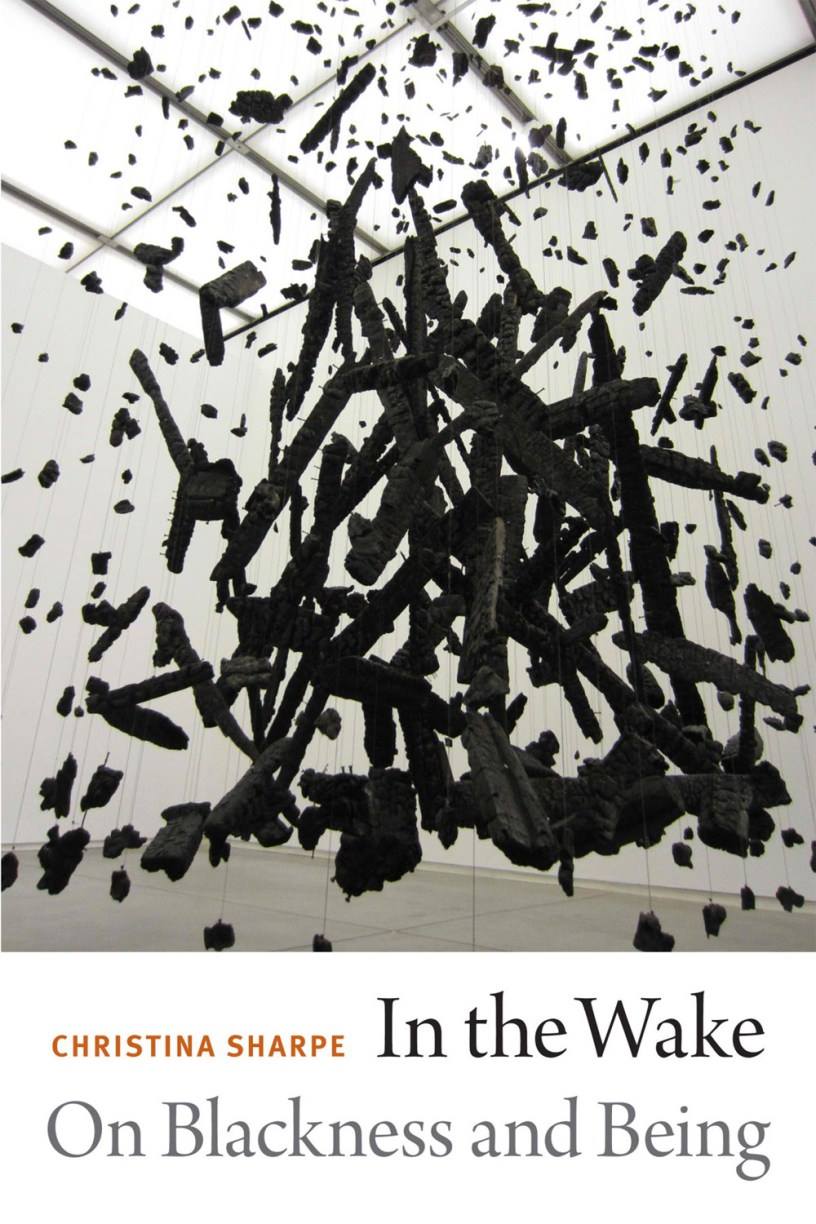
-
25 October 2016 Ann Cvetkovich Public Feelings (2007)
-
11 October 2016 OMG AfD WTF DE: A dissection and discussion Thomas Meaney The New Star of Germany’s Far Right: Frauke Petry is a mother, a scientist, and the leader of the country’s most successful nationalist phenomenon since the Second World War (2016)
Download From The New Yorker, Profiles
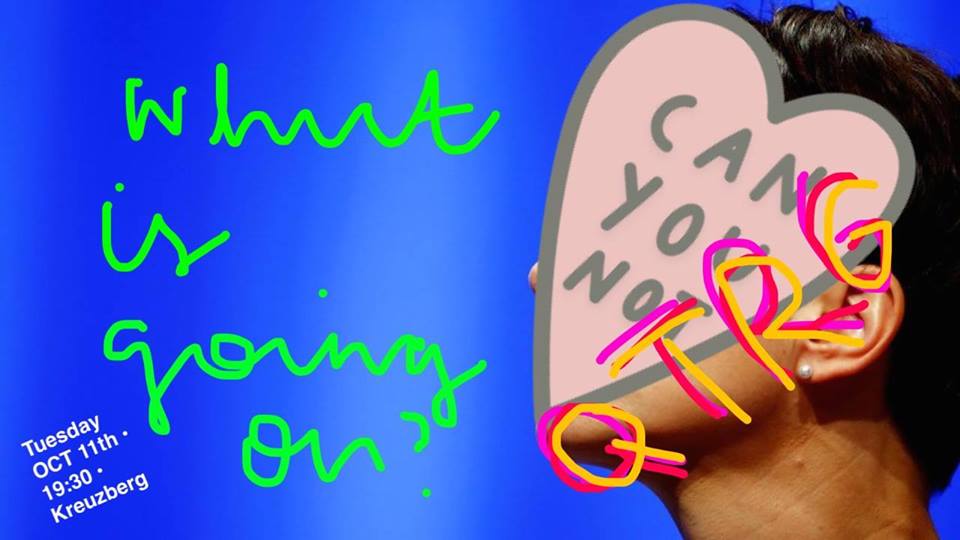
-
4 October 2016 Anu Koivunen An affective turn?: Reimagining the subject of feminist theory (2010)
Download From Working with Affect in Feminist Readings: Disturbing Differences (Editors Susanna Paasonen & Marianne Liljeström)

-
6 September 2016 Valerie Rohy Lost Causes: Narrative, Etiology, and Queer Theory (2014) Introduction + Conclusion
-
30 August 2016 Lee Edelman Future Is Kid Stuff: Queer Theory, Disidentification, and the Death Drive (1998)
Download From Narrative, Vol. 6, No. 1 (Jan., 1998)
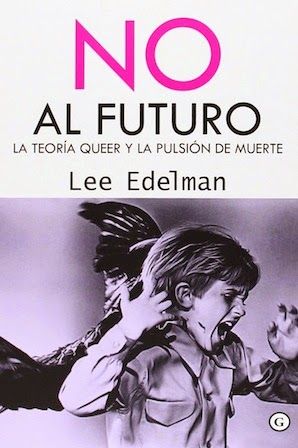
-
23 August 2016 Eve Kosofsky Sedgwick Paranoid Reading and Reparative Reading, or, You’re So Paranoid, You Probably Think This Essay is About You Chapter 3 in her book Touching Feeling: Affect, Pedagogy, Performativity (2002)
Download Image: Eve Kosofsky Sedgwick writing Between Men, circa 1982. http://evekosofskysedgwick.net/blog/page1/
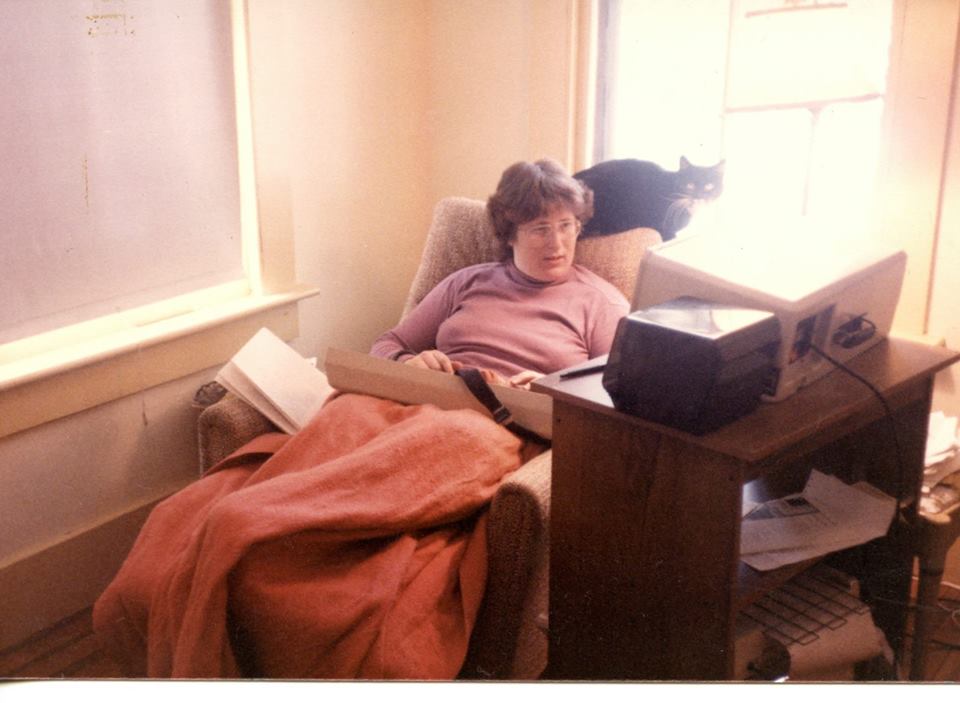
-
16 August 2016 Patrick Califia Feminism and Sadomasochism From Heresies #12, Sex Issue, Vol. 3, No.4 (1981) + “Scylla, I’d like you to meet my friend, Charybdis”: An Introduction From Speaking Sex To Power: The Politics of Queer Sex (2002)
-
9 August 2016 Audre Lorde The Cancer Journals (1980/1997)
Download Image: Dagmar Schultz, Audre Lorde in Berlin
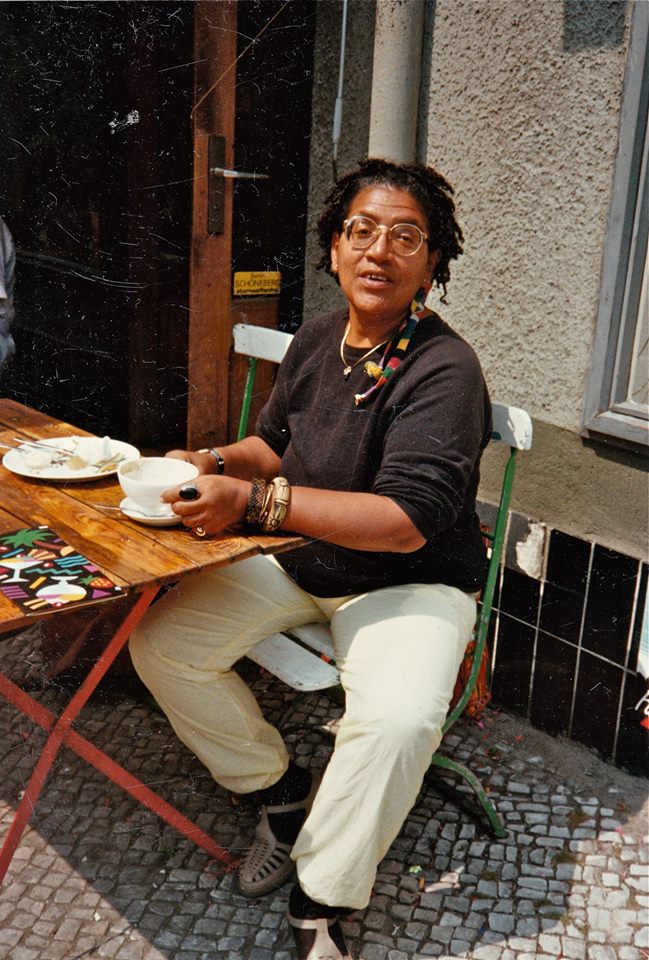
-
2 August 2016 Audre Lorde The Uses of the Erotic: The Erotic as Power (1978/1984)
Download Image: Dagmar Schultz, Audre Lorde im Sommer in Berlin
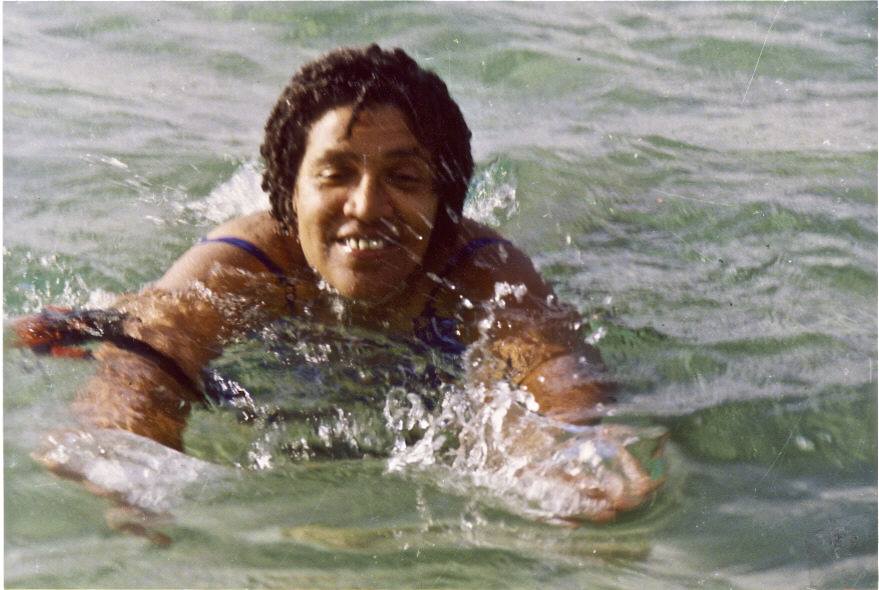
-
5 July 2016 Yvette Taylor Queer, but Classless? (2009)
Download From The Ashgate Research Companion to Queer Theory (2009) p. 199 – 218
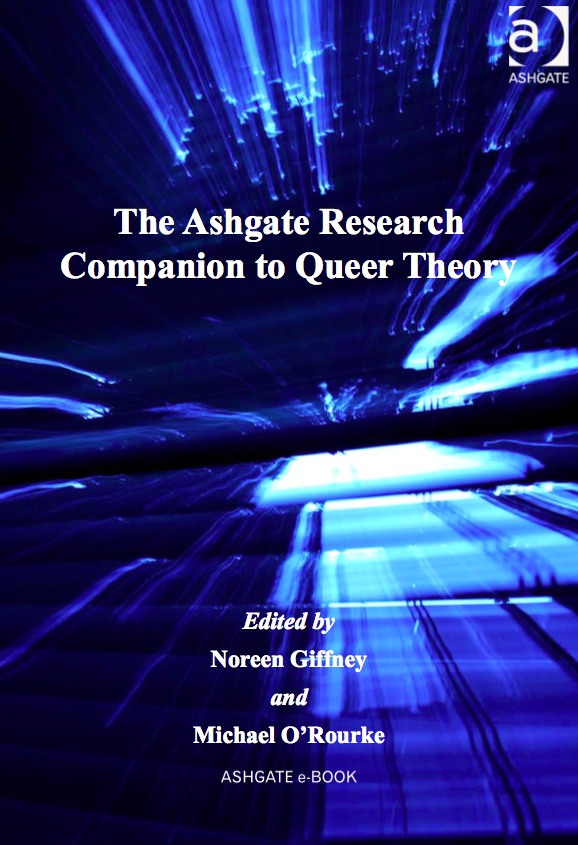
-
21 June 2016 Ulrika Dahl Sexist: A Femme-inist Perspective (2015)
Download Abstract: This experimental essay offers an auto-ethnography of sexism. Six stories are woven around considering sexism as an ontology, a theory of reality and being for feminists. Based on experiences of feminist training in the US and working in gender studies in Sweden, it discusses how (academic) sexism can become a career, a heritage and an expectation, but also how it gets below the surface and becomes sensational, often through (sexual) shame. Engaging the work of Marilyn Frye, Julia Serrano, Cherrie Moraga and Audre Lorde it aims to put ’sex’, as in sexuality, back into sexism. It also outlines how feminism can reproduce sexism by making femininity a problem.
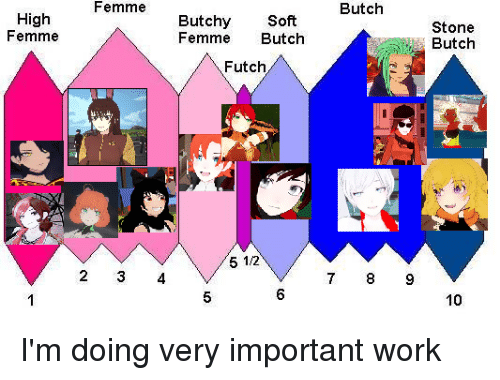
-
14 June 2016 Sarah Gram The Young-Girl and the Selfie (2013) + Aria Dean Closing the Loop (2016)
Download Gram Download Dean Image: Adrian Piper, Food for Spirit (1971)
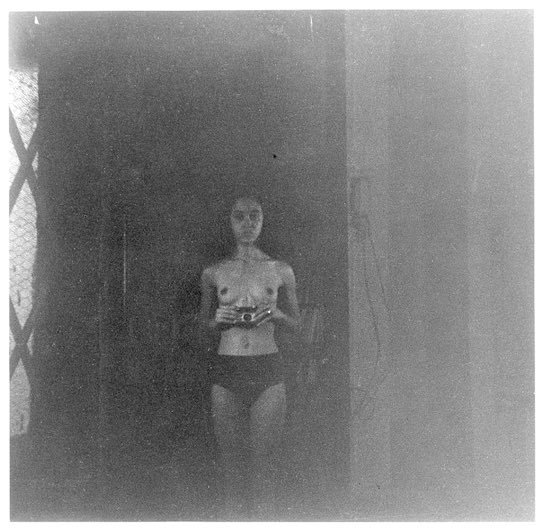
-
31 May 2016 FIELD TRIP Film: Lizzie Borden, Born in Flames (1983) @ NGBK Berlin Exhibition: No Play – Feminist Training Camp
90 min / English “Wake up! This is station 2016 on your dial. If you can’t find it then you’re in trouble, sister.” About: Set in a post-apocalyptic near-future Born in Flames is a radical feminist “guerrilla” film about sexism, racism, classism, and mass media’s complicity in perpetuating all of them. Portraying a kaleidoscope of feminist perspectives, the film disputes the utopian notion that a single sweeping social revolution can eliminate oppression for everybody, presenting instead an urgent call for intersectionality. A seemingly successful cultural revolution has taken place. Only ten years later, its aftermath begins to return to patriarchal patterns, marginalizating women, especially impoverish women of color. In response, several seemingly disparate groups of women––blacks, Latinas, lesbians, intellectuals, activists, and punks, among others––proceed to build a coalition, starting by acknowledging their differences and gather their strengths to battle the forces that aim to keep them divided. Spreading their mission via two radio stations, Radio Ragazza and Phoenix Radio, taking over the television station, patrolling the streets against male abuse, Born in Flames energetically presents a near past and closer future where the revolution is the social continuum that traverses our differences and not the result that crystalizes old models and social structures.
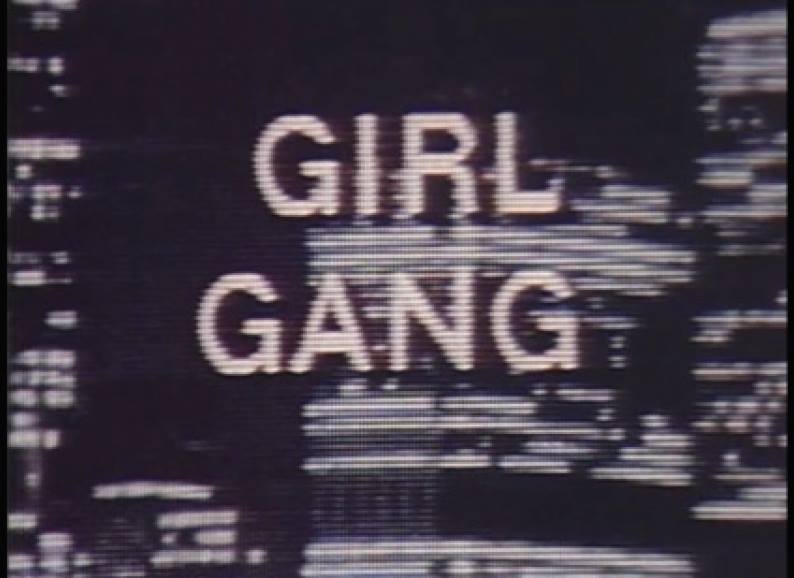
-
24 May 2016 FIELD TRIP Film: Allan Moyle, Times Square (1980) @ Raumerweiterungshalle, Berlin
111 min / English About: A punk story about two girls believing that their absurd actions and aesthetic can make a difference in people’s lives. Set in early 1980s New York, the city is presented as a true urban dystopia with immense potential and freedom alongside economic desperation and crumbling infrastructure, providing the backdrop to a narrative on teenage rebellion and budding queer love mixed into deep friendship love and the confusion within untangling the two.
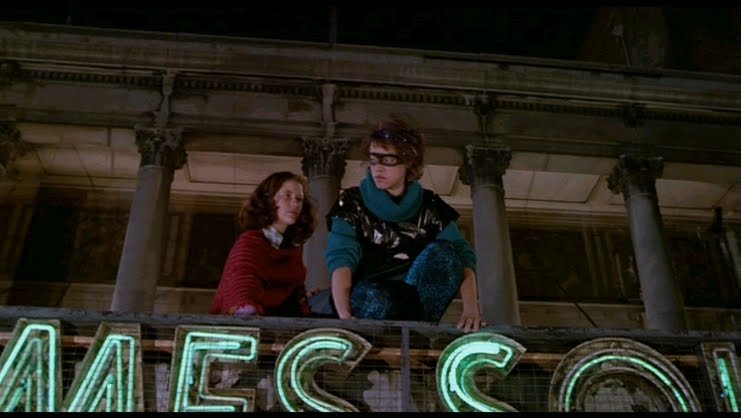
-
10 May 2016 Julia Serano Whipping Girl: A Transsexual Woman on Sexism and the Scapegoating of Femininity (2007) Chapter 19
-
3 May 2016 FIELD TRIP Memorial service for May Ayim on her birthday @ Alter St.-Matthäus-Kirchhof Berlin
“May Ayim hat in ihren Gedichten und Texten – ausgehend von der von ihr selbst erduldeten Diskriminierung als Afrodeutsche – den Rassismus im wiedervereinten Deutschland enttarnt. Stets hat sie eigene persönliche Erfahrungen mit ihrem politischem Handeln und literarischem Wirken verbunden. In ihrem politischen Engagement hat sich vor allem für den Zusammenhalt der schwarzen Community eingesetzt. Bis heute ist dieses Engagement für die Community von großer Bedeutung. 2010 wurde in Kreuzberg mit dem May-Ayim-Ufer eine Straße nach der Dichterin benannt. In der heutigen Zeit, in der rassistische Diskriminierung in Deutschland immer mehr um sich greift, ist das literarische Werk May Ayim nach wie vor wichtig und aktuell. Im Zusammenhang des 160 jährigen Jubiläumsjahres des Alten St.-Matthäus-Kirchhof, das wir den Frauen auf dem Friedhof widmen, möchten wir an diese bedeutende Aktivistin der afro-deutschen Bewegung erinnern. May Ayim hat ihre letzte Ruhe auf diesem Kirchhof gefunden. Es werden Gedichte und Texte von May Ayim vorgetragen, Mitstreiter_Innen werden von Ihrer Arbeit mit May Ayim erzählen. Es soll die Bedeutung der Dichterin bis in unsere Zeit hat herausgearbeitet werden. Danach zeigen wir den Film „Hoffnung im Herz“ von Maria Binder (D. 1997), der May Ayim portraitiert. Zum Abschluss gehen wir an das Grab der Dichterin.”
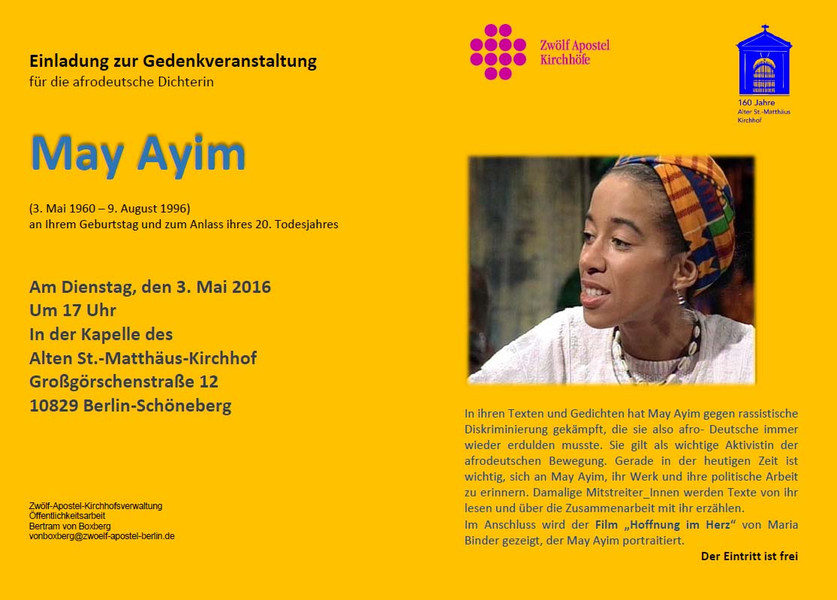
-
26 April 2016 Sara Ahmed Losing Confidence (2016)
Download From her blog Feminist Killjoys. “Losing confidence: it can be a feeling of something gradually going away from you, being eroded. You sense the erosion. You might stumble, hesitate, falter; things might gradually unravel so you end up holding onto the barest of threads. It might be an experience in the present that throws things up, throws you off balance; or a memory of how you lost your way once before that comes back in a flash and catches you unaware. When you lose confidence it can feel like you are losing yourself: like you have gone into hiding from yourself.”
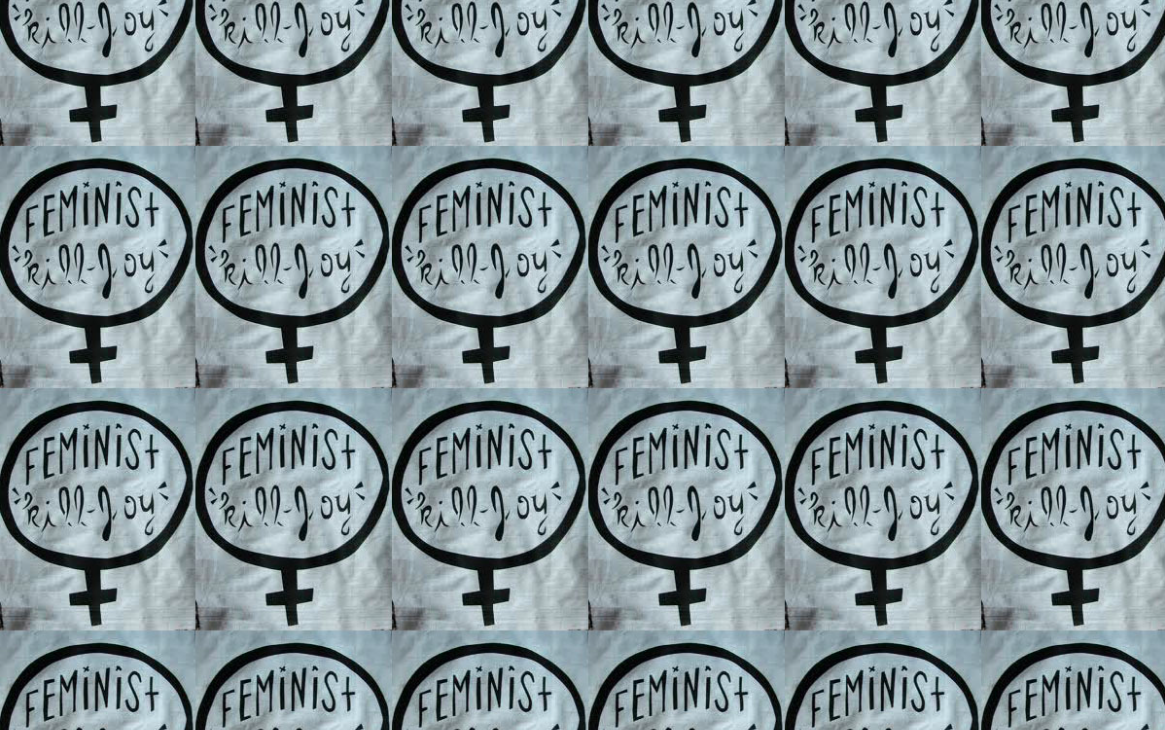
-
19 April 2016 Fatima El-Tayeb ‘Gays who cannot properly be gay’: Queer Muslims in the neoliberal European city (2012)
Download Abstract: The article traces the framing of Muslim Europeans as the continent’s Other by focusing on the silencing of queer Muslims within public debates around ‘Islam and homosexuality’. Ignoring class as a factor in the violence produced by the gentrification of urban spaces, the pitting of the (implicitly white) gay community against the (implicitly straight) Muslim community posits the latter as a threat to the continent’s foundations that needs to be contained through forms of spatial governance in line with the neoliberal restructuring of the city. Maintaining that this is a Europe-wide phenomenon, the article looks at Amsterdam as exemplifying the European metropole as a site of pseudo-homophile Islamophobia. Simultaneously, with activist groups like the queer of color collective Strange Fruit, it is also representative of the strategies of resistance developed by groups whose presence is virtually erased through culture clash discourses, namely queer Muslims. The article argues that an intersectional queer of color activism, as practiced by Strange Fruit, and a queer of color critique building on it, allows to undermine binaries from the Muslim/European dichotomy to the normative coming out narrative, invariably positioning queers of color as ‘not properly gay’.
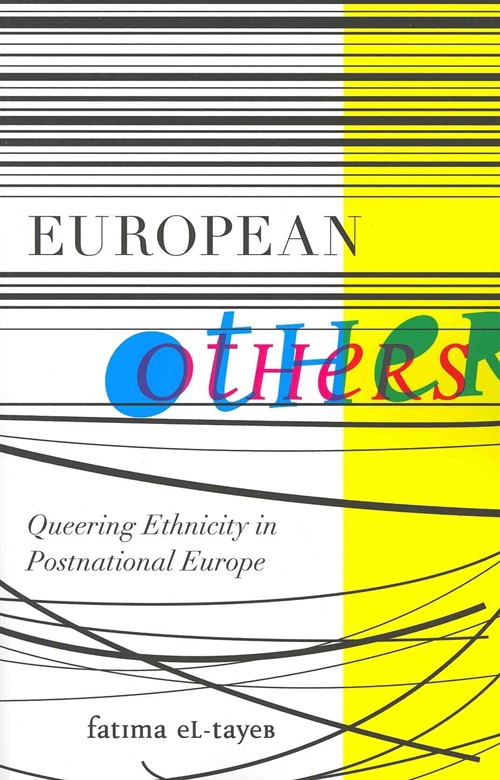
-
12 April 2016 Anjali Arondekar Border/Line Sex: Queer Postcolonialities, or How Race Matters Outside the United States (2005)
-
15 March 2016 Gloria Anzaldúa Borderlands/La Frontera: The New Mestiza (1987) Chapters 1 & 2 (p. 1-23) + To(o) Queer the Writer – Loca, escritora y chicana (1991) From The Gloria Anzaldúa Reader (p. 163-175)
Download Borderlands Download Reader Image: https://www.lib.utexas.edu/benson/collections/gloria-evangelina-anzald-papers
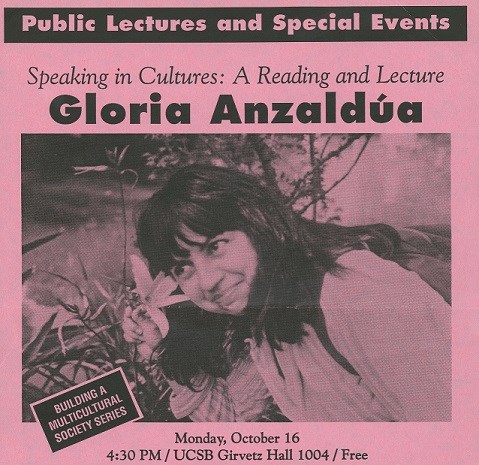
-
23 February 2016 Adrienne Rich Compulsory Heterosexuality and Lesbian Existence (1980)
Download From Signs, Vol. 5, No. 4, Women: Sex and Sexuality (Summer, 1980)
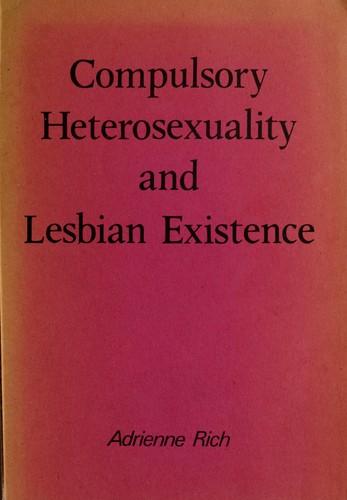
-
18 February 2016 Eve Tuck & K. Wayne Yang Decolonization is not a metaphor (2012)
Download First 20 pages.
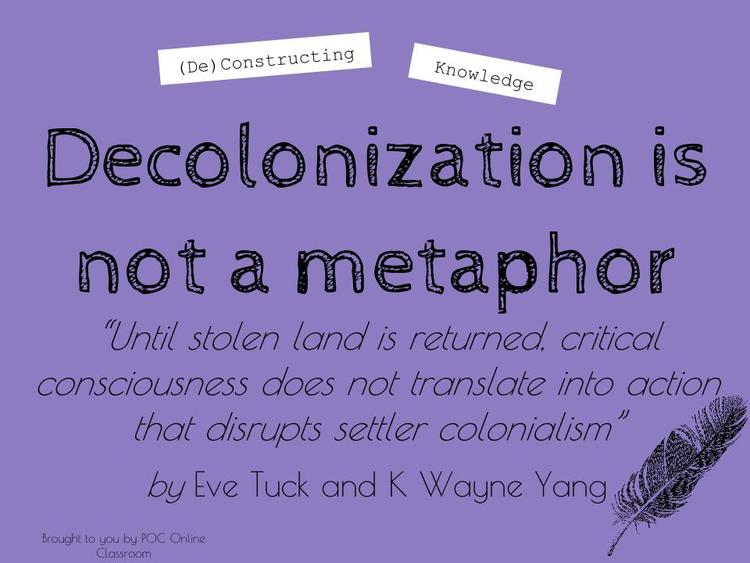
-
11 February 2016 LaKeyma King Inversion and Invisibility: Black Women, Black Masculinity, and Anti-Blackness (2015) + Reading aloud Anne Boyer What Resembles the Grave But Isn’t (2015)
Download From Lies: A Journal of Materialist Feminism, Vol. 2 (2015) http://www.liesjournal.net/
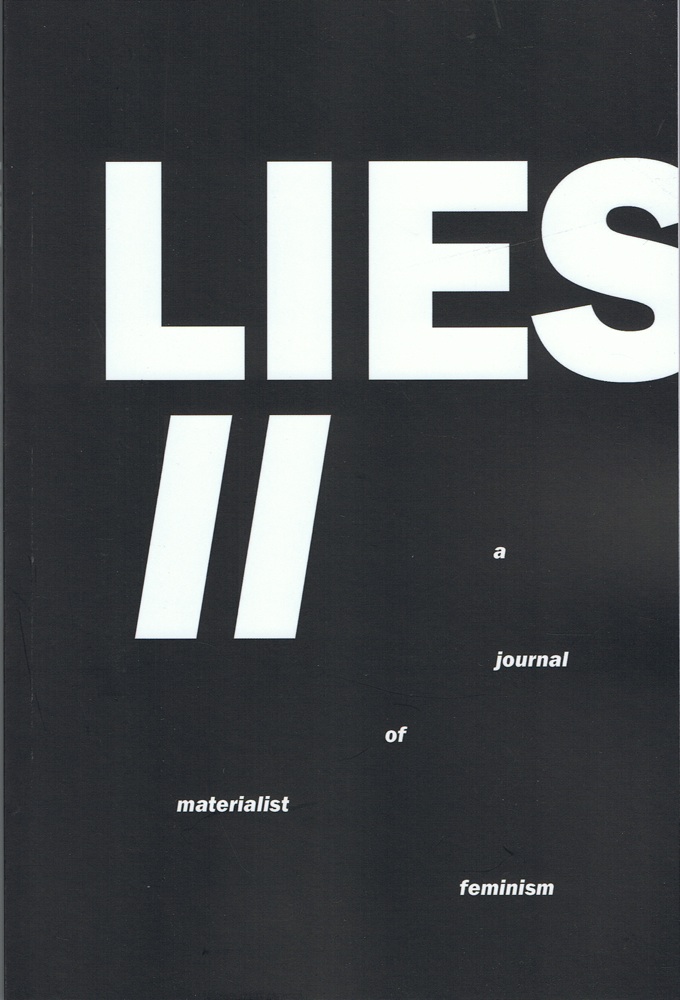
-
2 February 2016 Sean Faye The Gay Men Who Hate Women (2015) + Kat Blaque Are We Letting One Big Group of Men Off the Hook for Misogyny? (2015) + Rohin Guha The Myth of the Fag Hag and Dirty Secrets of the Gay Male Subculture (2014)
Download Faye Download Blaque Download Guha Image: Kat Blaque https://www.youtube.com/watch?time_continue=1&v=hZuC9fRgS54/

-
19 January 2016 Jasbir Puar Rethinking Homonationalism (2013) + Jasbir Puar & darkmatter’s Ben Pitcher and Henriette Gunkel Q&A with Jasbir Puar (2008) + Kersplebedeb Jasbir Puar’s Homonationalism Talk: A Real Disappointment (2008)
-
12 January 2016 E. Patrick Johnson “Quare” studies, or (almost) everything I know about queer studies I learned from my grandmother (2001)
Download Recommended: Marlon Riggs’ film Black Is… Black Ain’t (1995) Image: E. Patrick Johnson’s Sweet Tea: Black Gay Men of the South at the Durham Arts Council (2014)
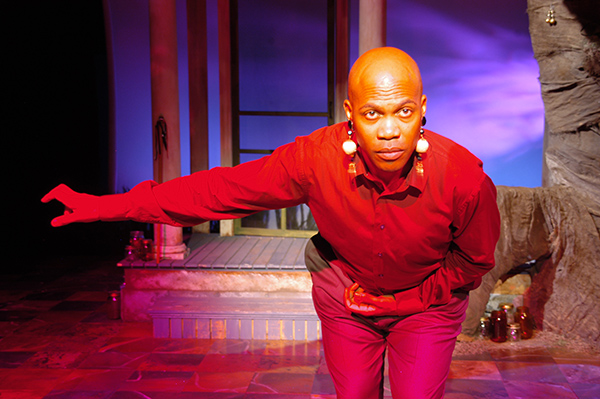
2015
-
8 December 2015 ART TALK Donna Huddleston’s The Warriors (2015) + Nina Power She’s just not that into you (2013)
Download Donna Huddleston’s The Warriors in the context of this exhibition: http://bortolozzi.com/exhibitions/interstellar/ Nina Power’s review of Tiqqun’s Preliminary Materials for a Theory of the Young-Girl (2012)
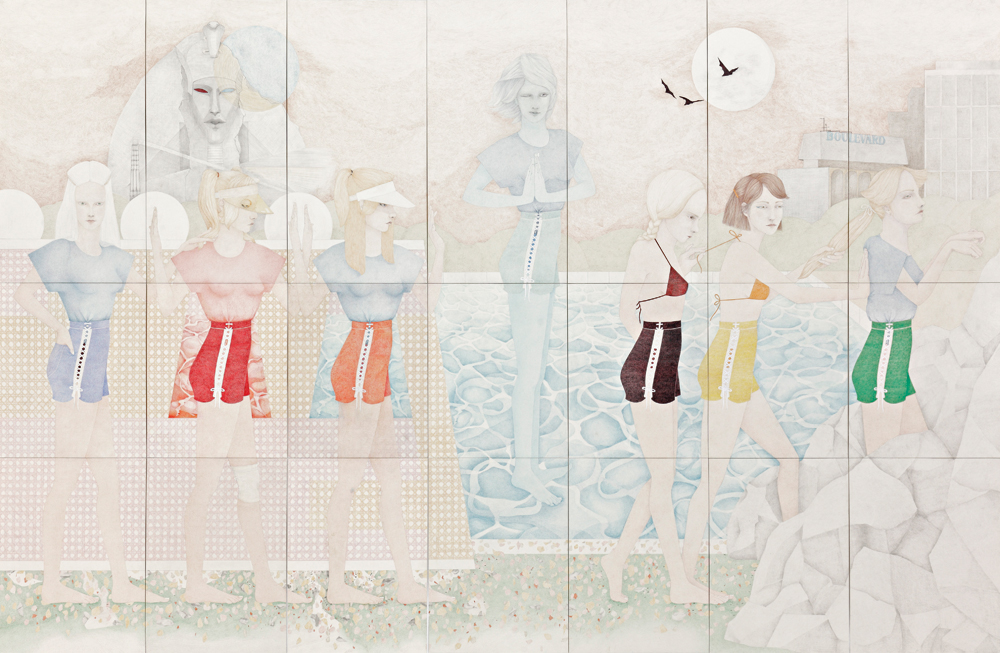
-
24 November 2015 Bobby Benedicto The Queer Afterlife of the Postcolonial City: (Trans)gender Performance and the War of Beautification (2014)
-
17 November 2015 Rosi Braidotti Posthuman, All Too Human: Towards a New Process Ontology (2006) + Rosi Braidotti and Timotheus Vermeulen Interview, Borrowed Energy, Frieze (2014)
-
3 November 2015 FIELD TRIP Jin Haritaworn Book launch: Queer Lovers, Hateful Others + Lecture: Queer Regenerations: Love, Hate and other Investments in Berlin’s Inner City @ Center for Metropolitan Studies, Berlin
On the occasion of their new book QUEER LOVERS AND HATEFUL OTHERS, Jin Haritaworn from York University is giving a public lecture titled QUEER REGENERATIONS: LOVE, HATE AND OTHER INVESTMENTS IN BERLIN’S INNER CITY Introduction by Prof. Sérgio Costa, Institute for Latin American Studies, FU Berlin. In Queer Lovers, Jin Haritaworn argues that queer subjects have become a lovely sight in the shadow of hateful Others, who are fixed as homophobic and disposable. Rather than an ‘in’ or ‘out’ sexual citizen, Haritaworn treats the queer lover as a transitional object that renders the shift between a welfare regime and a neoliberal regime palpable, and makes punishment and neglect appear as signs of care and love for diversity. Talking back at ‘invented traditions’ of women-and-gay-friendliness, and a queer nostalgia for more murderous times and places, Queer Lovers traces the making of a moral panic over ‘Muslim homophobia’. The new folk devil inherits technologies from older transnational panics over crime, violence, patriarchy, integration, and segregation. In contrast, the book foregrounds the environments in which queer bodies have become worthy of protection, the everyday erasures that shape life in the inner city, and the alternative maps that are drawn at queer of colour kitchen tables in inner-city Berlin. In the process, queer lovers, drag kings, criminalised youth, homosexuals persecuted under National Socialism, and other figures of degeneracy and regeneration appear on a shared plane, where new ways of sharing space become imaginable. Jin Haritaworn is Assistant Professor of Gender, Race and Environment at York University in Canada. This event is organized in cooperation with the Institute for Latin American Studies, FU Berlin. Accesibility of location: Building is wheelchair accesible, lift and wheelchair accesible toilet are available.
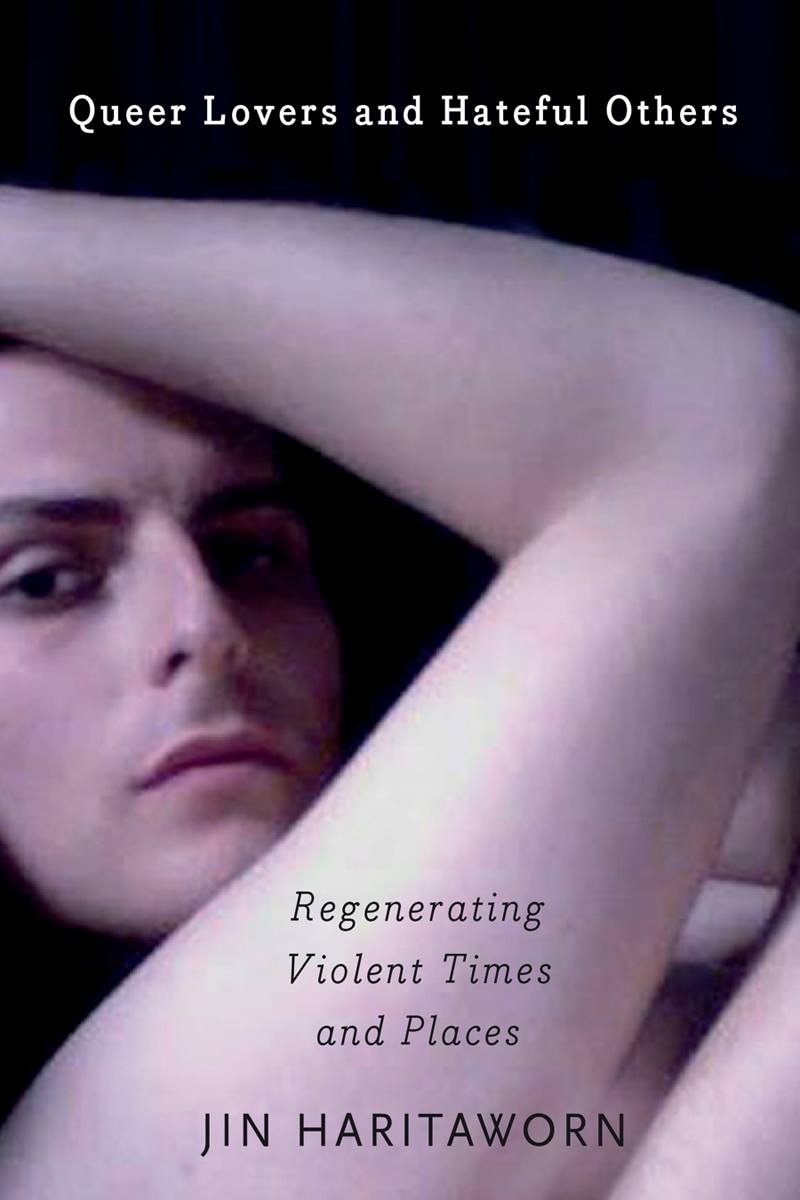
-
27 October 2015 Kathy Acker Against Ordinary Language: The Language of the Body (1992) + Maggie Nelson The Argonauts (2015) p. 10 – 30 + we will read some aloud
Download Acker Download Nelson epub Image: Kathy Acker at the Gramercy Park Hotel, 1988, by Michel Delsol
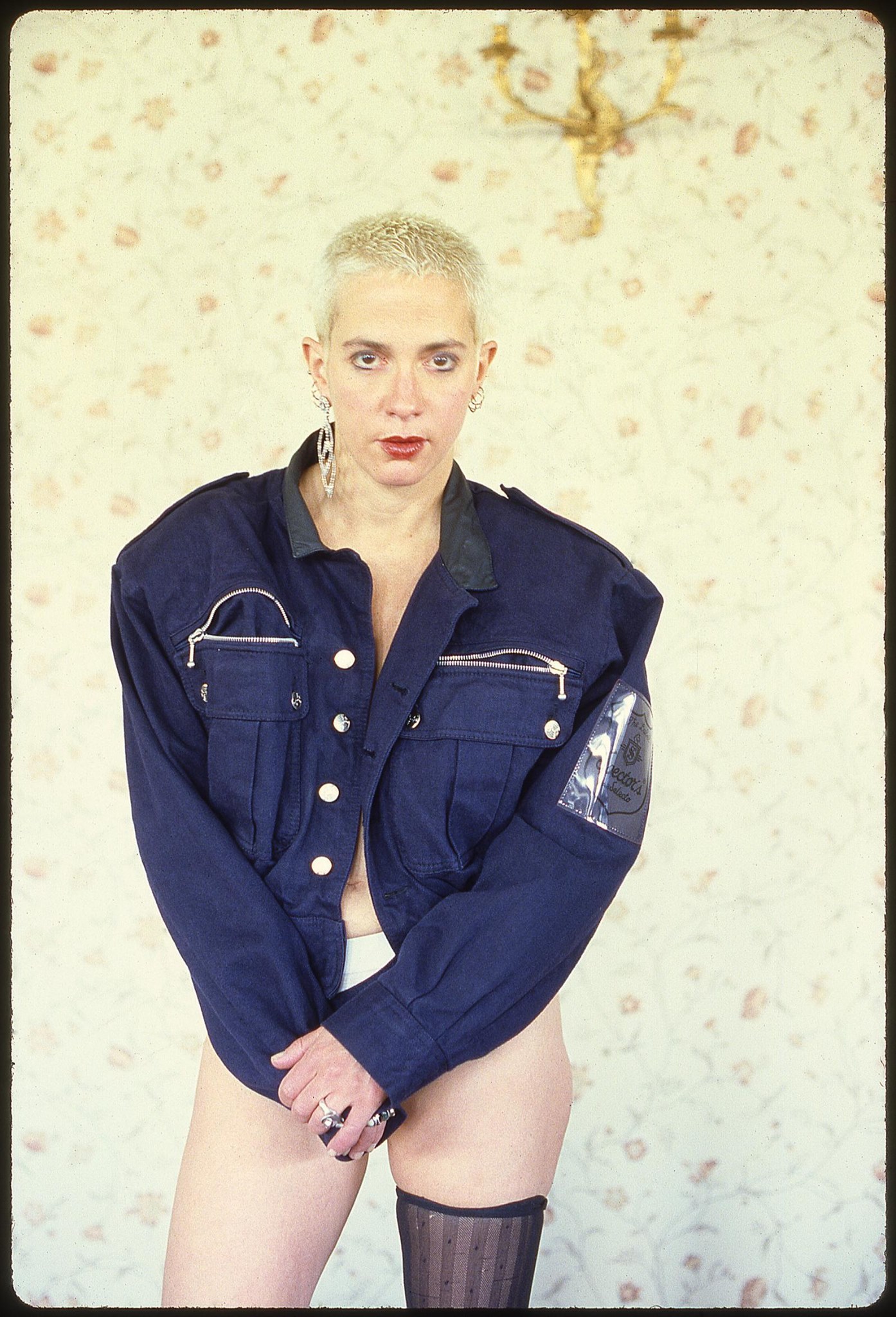
-
20 October 2015 Paul B. Preciado Testo Junkie: Sex, Drugs, and Biopolitics in the Pharmacopornographic Era (2008) Chapter 2: The Pharmacopornographic Era
-
13 October 2015 Patricia J. Williams The Elusive Variability of Race (2009)
-
1 September 2015 Teresa de Lauretis Queer Theory: Lesbian and Gay Sexualities – An Introduction (1991) + David M. Halperin The Normalization of Queer Theory (2003)
-
11 August 2015 Calvin Warren Onticide: Afropessimism, Queer Theory, & Ethics (2013)
-
28 July 2015 bell hooks Where We Stand: Class Matters (2000) Chapter 8: Class and Race: The New Black Elite + Chapter 9: Feminism and Class Power
-
7 July 2015 Finn Enke The Education of Little Cis: Cisgender and the Discipline of Opposing Bodies (2012)
Download From the book Transfeminist Perspectives in and beyond Transgender and Gender Studies (Edited by Finn Enke) (2012)

-
30 June 2015 Dean Spade & Craig Willse Marriage Will Never Set Us Free (2013) + Last paragraph of Obergefell v. Hodges (Gay marriage) United States Supreme Court ruling (2015)
Download From Against Equality: Queer Critiques of Gay Marriage. Further chapters here: http://www.againstequality.org/about/marriage/ Last paragraph of Supreme Court ruling: No union is more profound than marriage, for it embodies the highest ideals of love, fidelity, devotion, sacrifice, and family. In forming a marital union, two people become something greater than once they were. As some of the petitioners in these cases demonstrate, marriage embodies a love that may endure even past death. It would misunderstand these men and women to say they disrespect the idea of marriage. Their plea is that they do respect it, respect it so deeply that they seek to find its fulfillment for themselves. Their hope is not to be condemned to live in loneliness, excluded from one of civilization’s oldest institutions. They ask for equal dignity in the eyes of the law. The Constitution grants them that right. The judgment of the Court of Appeals for the Sixth Circuit is reversed. It is so ordered.
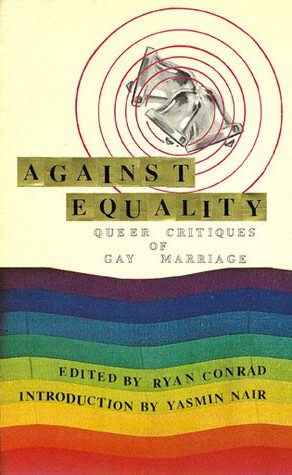
-
16 June 2015 Richard Juang Transgendering the Politics of Recognition (2006)
Download From The Transgender Studies Reader (2006)
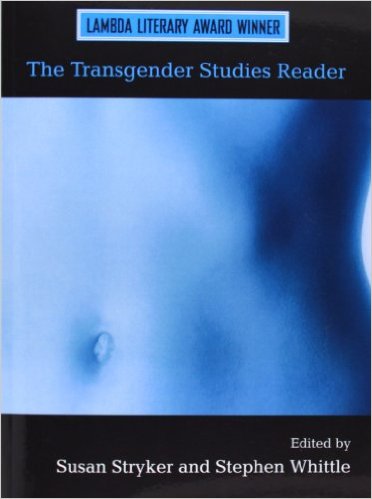
-
9 June 2015 Eve Kosofsky Sedgwick How to Bring Your Kids Up Gay (1989)
Download Image: Nina, Leon, and Eve with her panda, Dayton, c. 1954 http://evekosofskysedgwick.net/biography/biography.html
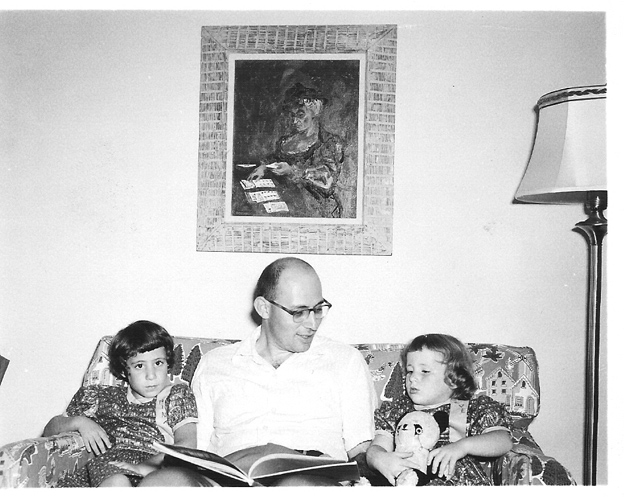
-
2 June 2015 Susan Sontag Notes on “Camp” (1964)
Download Image: Susan Sontag by Annie Leibovitz

-
27 May 2015 FIELD TRIP Jack Halberstam Zombie Humanism at the End of the World @ ICI Berlin
-
5 May 2015 Donna Haraway Situated Knowledges: The Science Question in Feminism and the Privilege of Partial Perspective (1988)
Download Image: Donna Haraway Reads The National Geographic on Primates https://www.youtube.com/watch?v=eLN2ToEIlwM
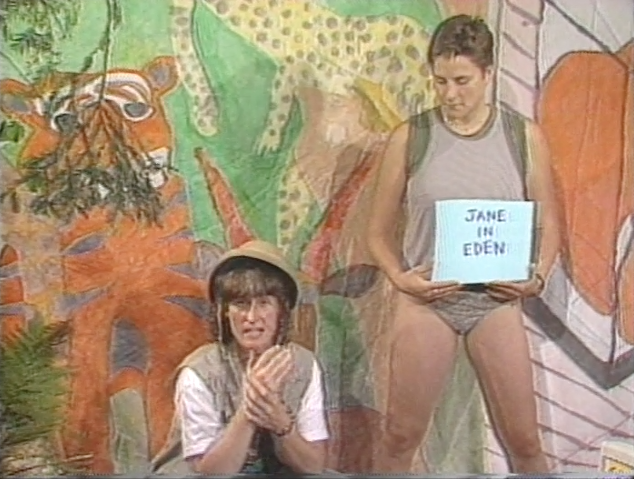
-
28 April 2015 FIELD TRIP Jelisaveta Blagojević Politics of Unthinkable Desire: On Love, Jealousy, and the Telephone @ ICI Berlin
-
21 April 2015 Judith Butler Gender is Burning: Questions of Appropriation and Subversion (1993)
Download Butler’s analysis of Jennie Livingston’s film Paris is Burning (1990). Recommended: Watch Paris is Burning (77 minutes) https://youtu.be/hedJer7I1vI Image: Still from Paris is Burning (1990)
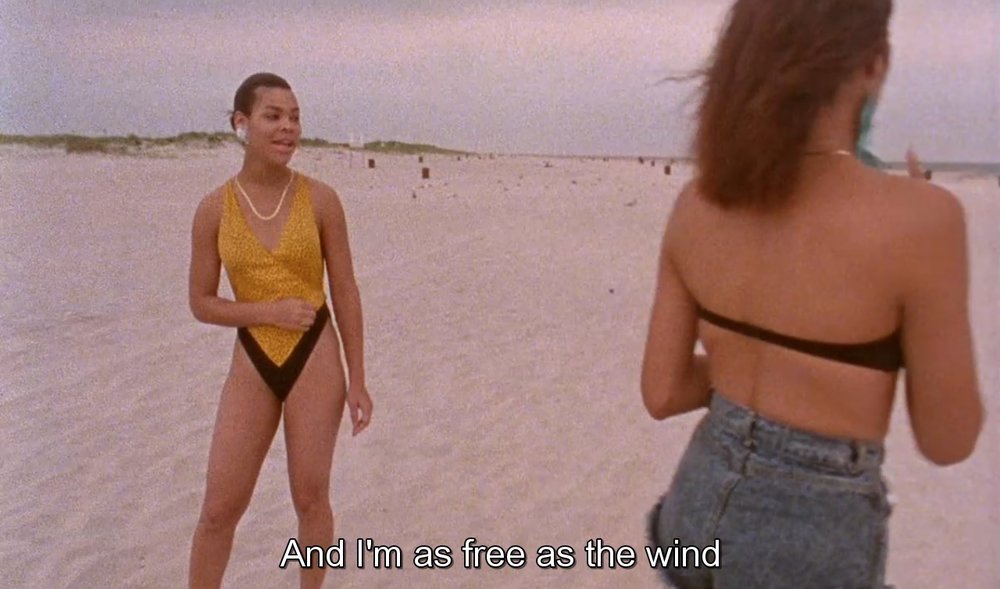
-
24 March 2015 Adi Kuntsman & Esperanza Miyake Introduction + Jin Haritaworn, with Tamsila Tauqir and Esra Erdem Chapter 2: Gay Imperialism: Gender and Sexuality Discourse in the ‘War on Terror’ From Out of Place: Interrogating Silences in Queerness/Raciality (2008)
-
17 March 2015 Susan Stryker Transgender Studies: Queer Theory’s Evil Twin (2004) + Anne Fausto-Sterling The Five Sexes: Why Male and Female Are Not Enough (1993) + Anne Fausto-Sterling The Five Sexes, Revisited (2000)
Download Stryker Download Fausto-Sterling 1 Download Fausto-Sterling 2 Image: Del LaGrace Volcano, Jack Unveiled (1994)
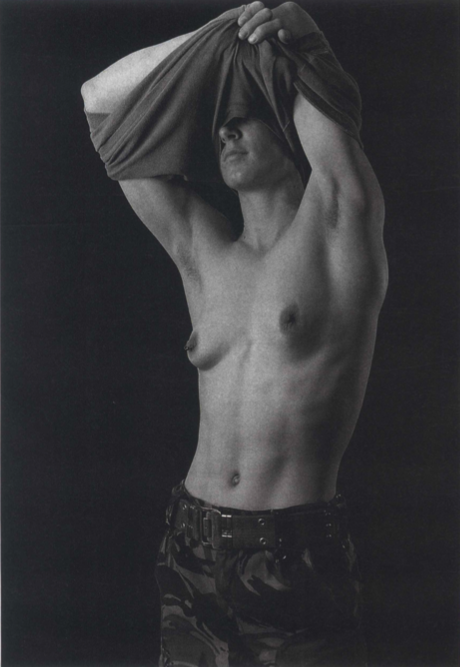
-
11 March 2015 FIELD TRIP Dagmar Herzog Perversion and Love in Postwar Psychoanalysis Or: Why We Should Reread Robert Stoller @ ICI Berlin
-
3 March 2015 This Bridge Called My Back: Writings by Radical Women of Color (originally published in 1981)
Download Selected readings: 1. Preface by Cherrie Moraga 2. Introduction by Cherrie Moraga and Gloria Anzaldua 3. The Bridge Poem by Donna Kate Rushin 4. He Saw by Chrystos 5. Gee You Don’t Seem Like an Indian from the Reservation by Barbara Cameron 6. The Master’s Tools Will Never Dismantle the Master’s House by Audre Lorde 7. I Paid Very Hard for My Immigrant Ignorance by Mirtha Quintanales 8. La Prieta by Glorida Anzaldua 9. A Black Feminist Statement from the Combahee River Collective 10. The Welder by Cherrie Moraga
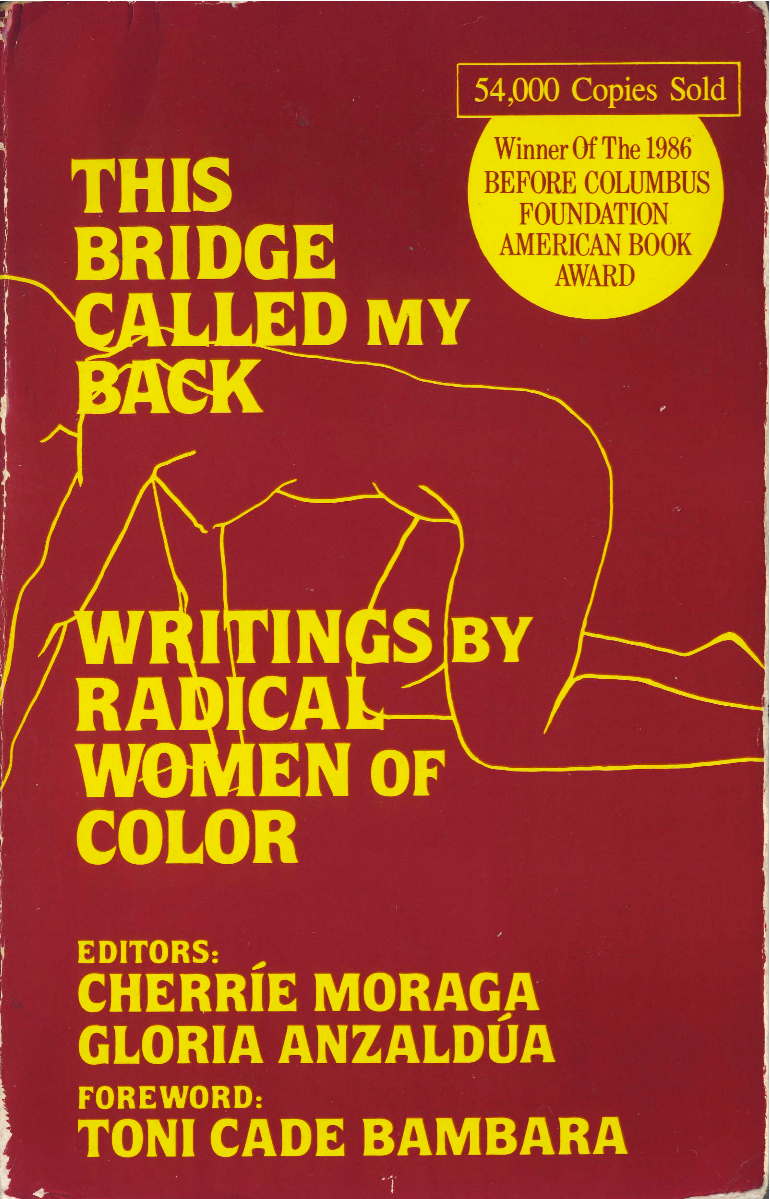
-
24 February 2015 Paula A. Treichler AIDS, Homophobia, and Biomedical Discourse: An Epidemic of Signification (1987)
Download Image: Dykes Act Up at the second annual International Dyke March in New York, 25 June 1994.
